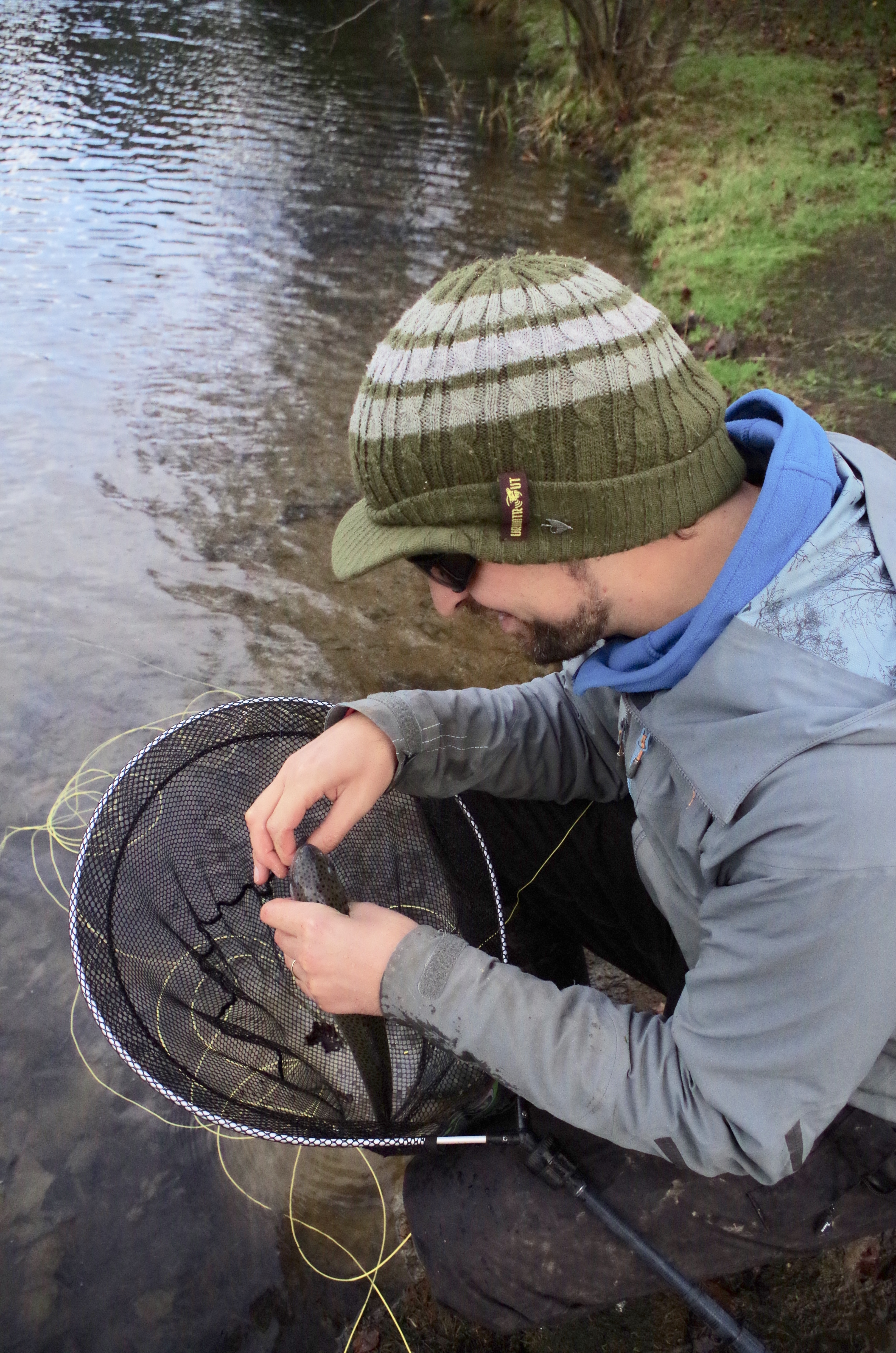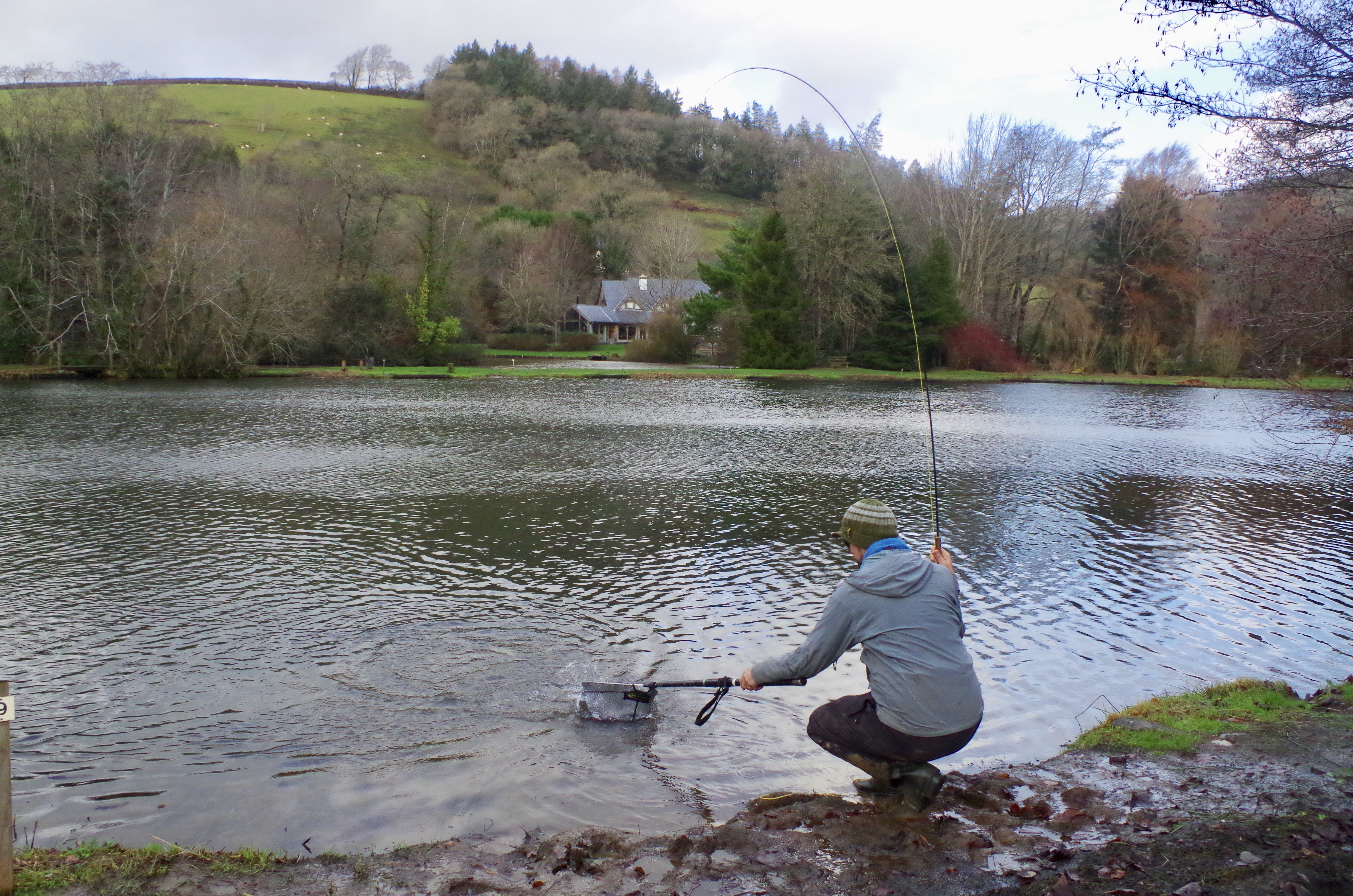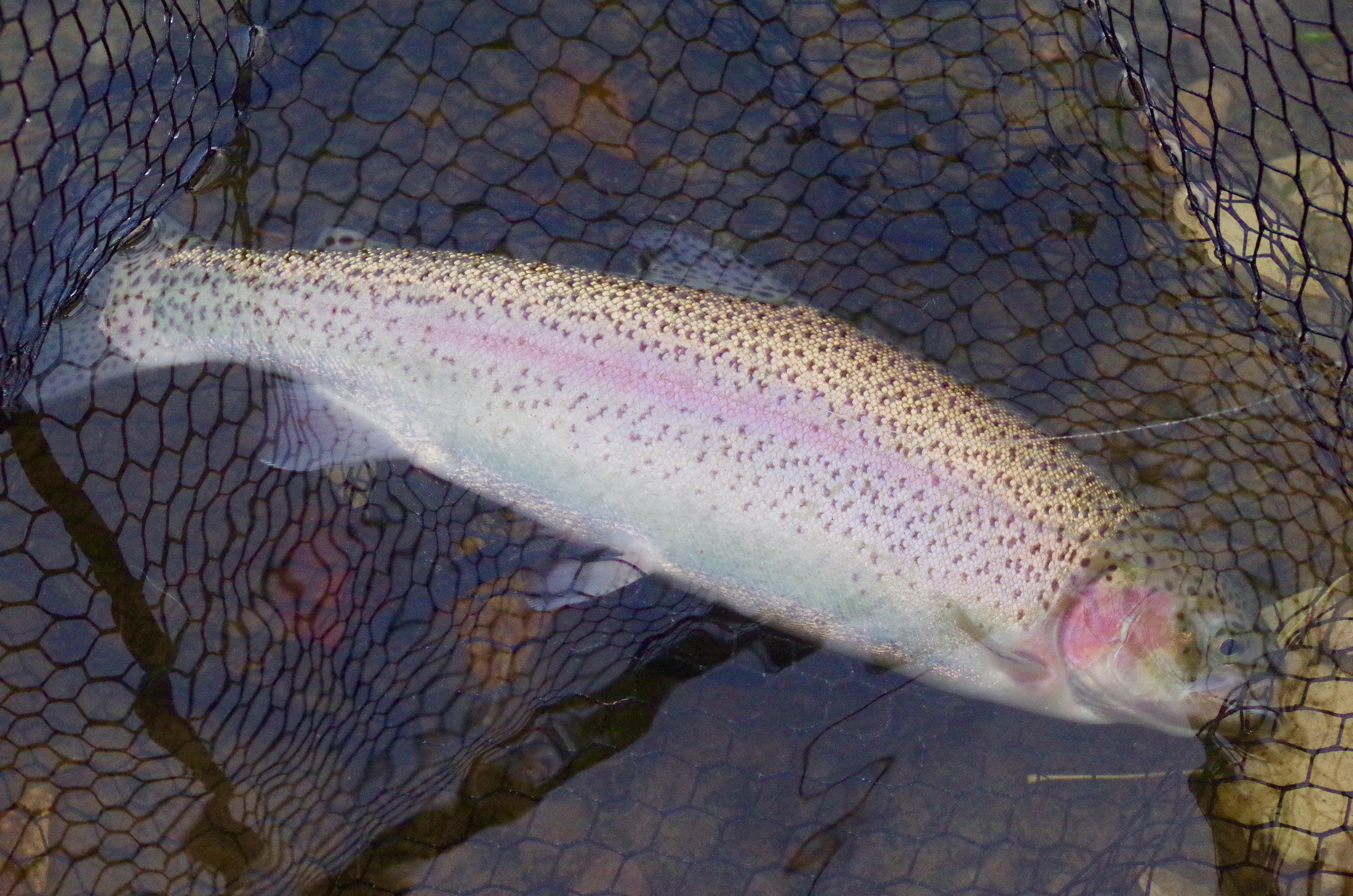The Angling Trust and the Environment Agency are working with local angling clubs to combat poaching and fish theft.
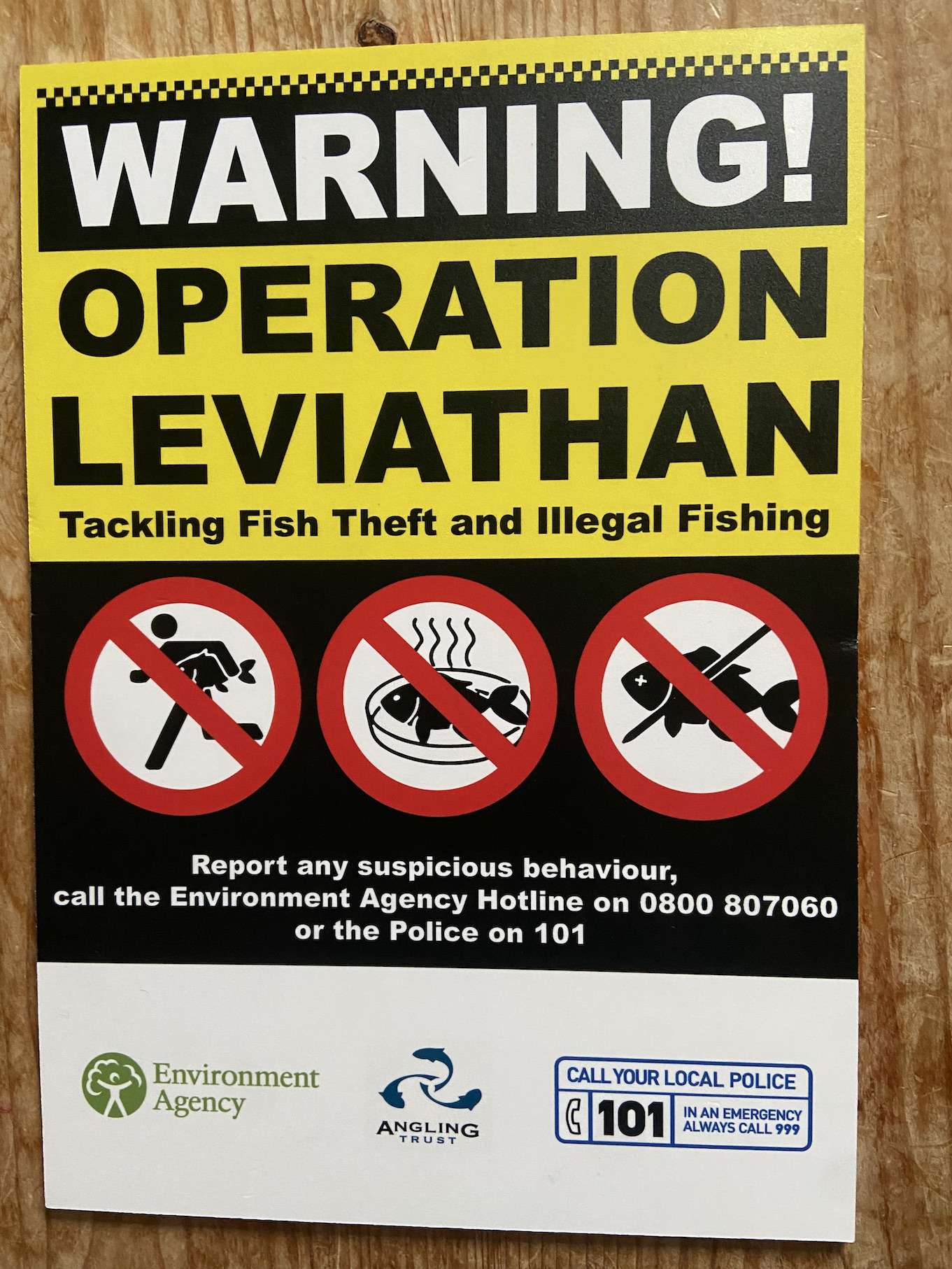
The Angling Trust and the Environment Agency are working with local angling clubs to combat poaching and fish theft.

The South West’s first major event in 2025 attracted 104 anglers, along with 20 teams to the South Hams to fish the annual Angling Trust Wyvern Open Festival, with some competitors traveling from South Wales, Hastings & Bradford the weather conditions on the day saw a Strong to almost gale South Westerly with heavy rain, Small Eyed Ray, Bull Huss, Pouting, Whiting & Lesser spotted Dogfish were caught during the event, 56 competitors returned to the scales with fish to record. The results were announced within half an hour of the close of scales at the Festival Headquarters at the Stokeley Farm Shop.
The main sponsor was Julian Shambrook of Anyfish Anywhere Ltd, a major fishing tackle manufacturer, based in Torquay. All of the sponsors for the day were thanked for their continuing support each year, also a big thank you to Stokeley for their hospitality & providing an excellent venue.
The worthy winner, of the event was Ben Bradstock from Honiton SAC, he recorded a L.S.D. of 2.095lb & a Whiting of 1.175lb giving him a total of (162.13%), he was presented with the top prize of £200 cash and the Brixham Bowl, other tackle prizes were awarded down to 13th place, these were announced by the Chairman of the Wyvern Region Alex Parker and presented by Julian Shambrook.
The Region promotes the Angling Trust “Take Five” anti litter campaign and encourages all anglers to leave the beaches cleaner than they found them.
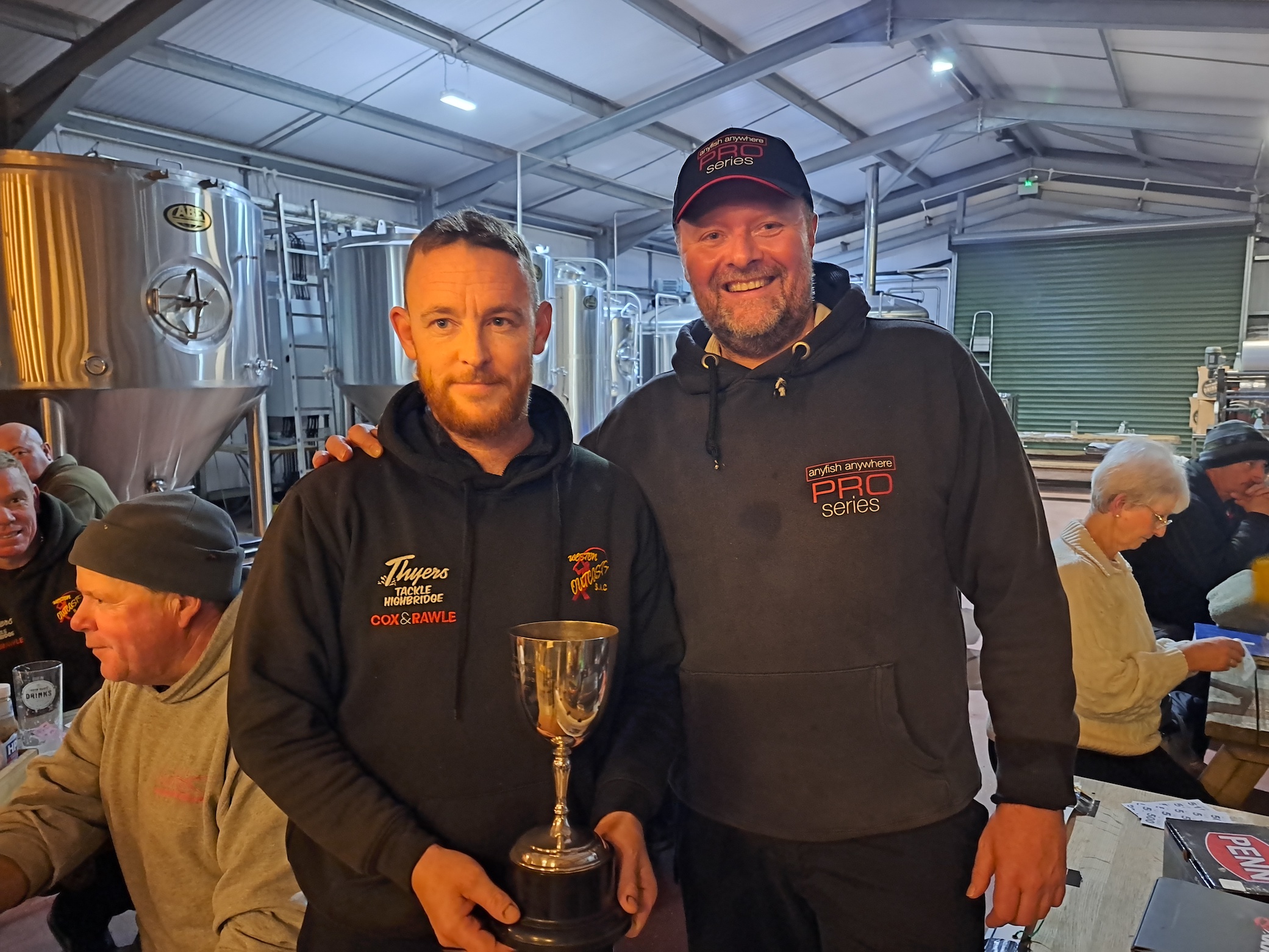
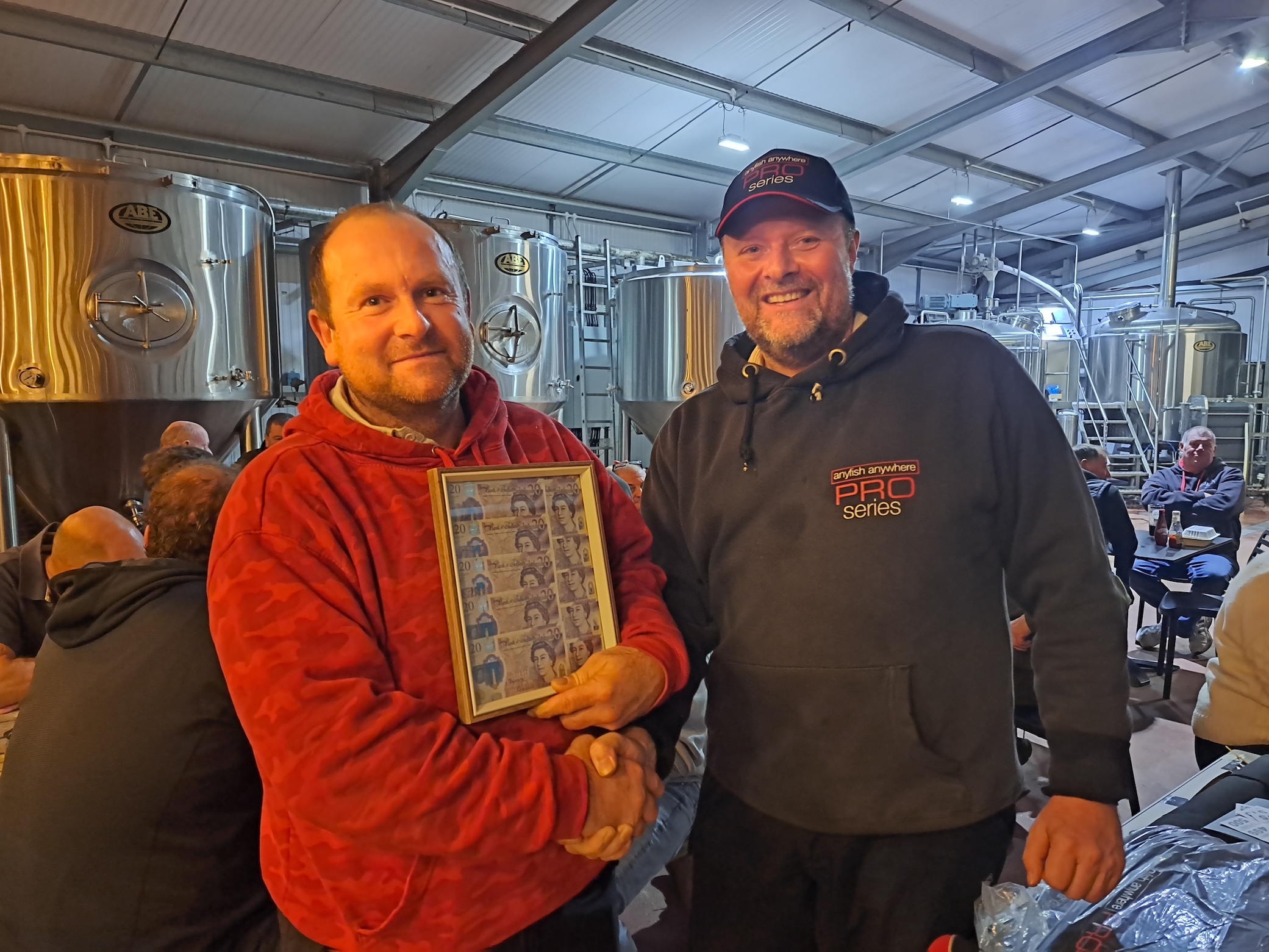
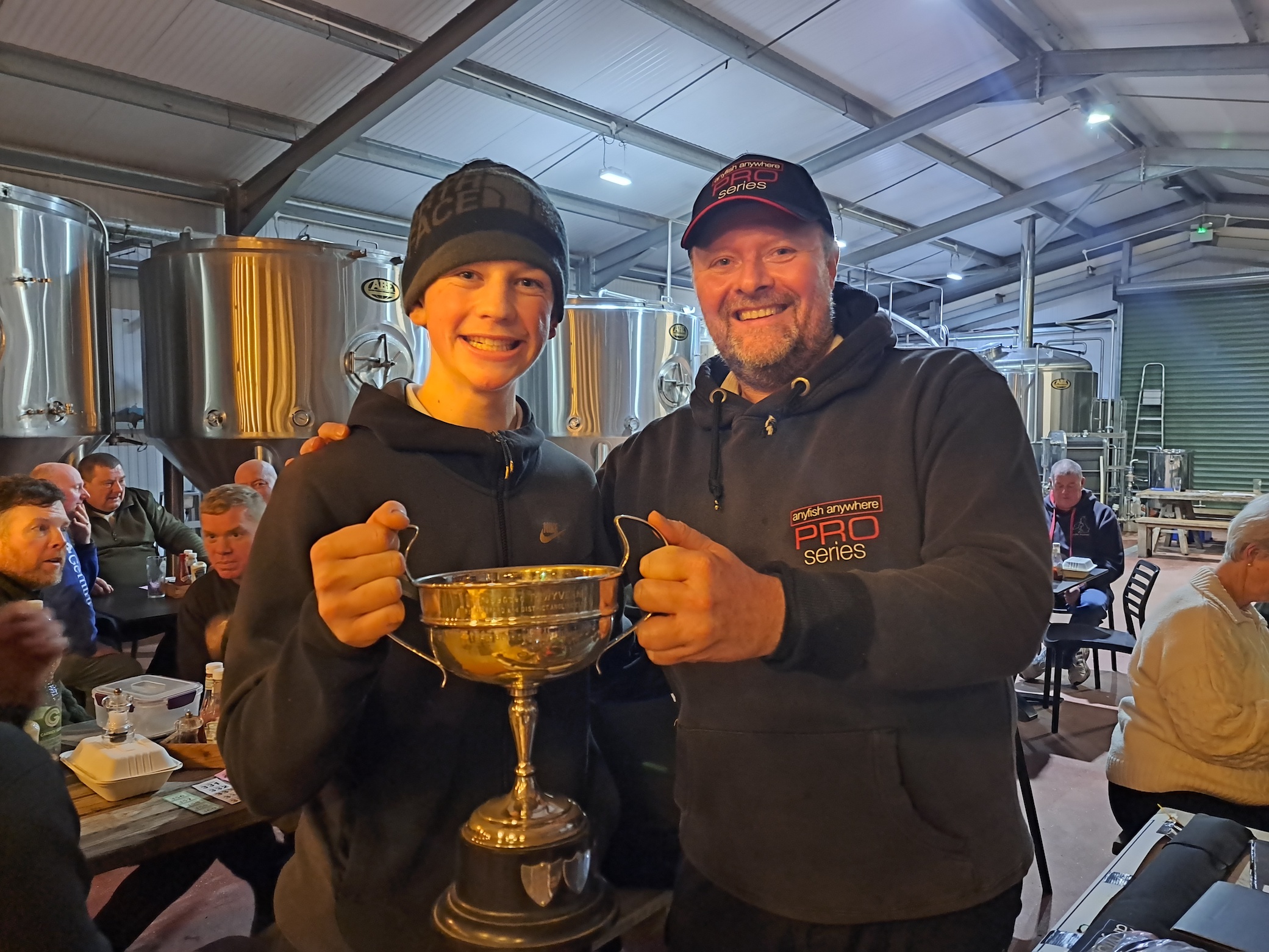
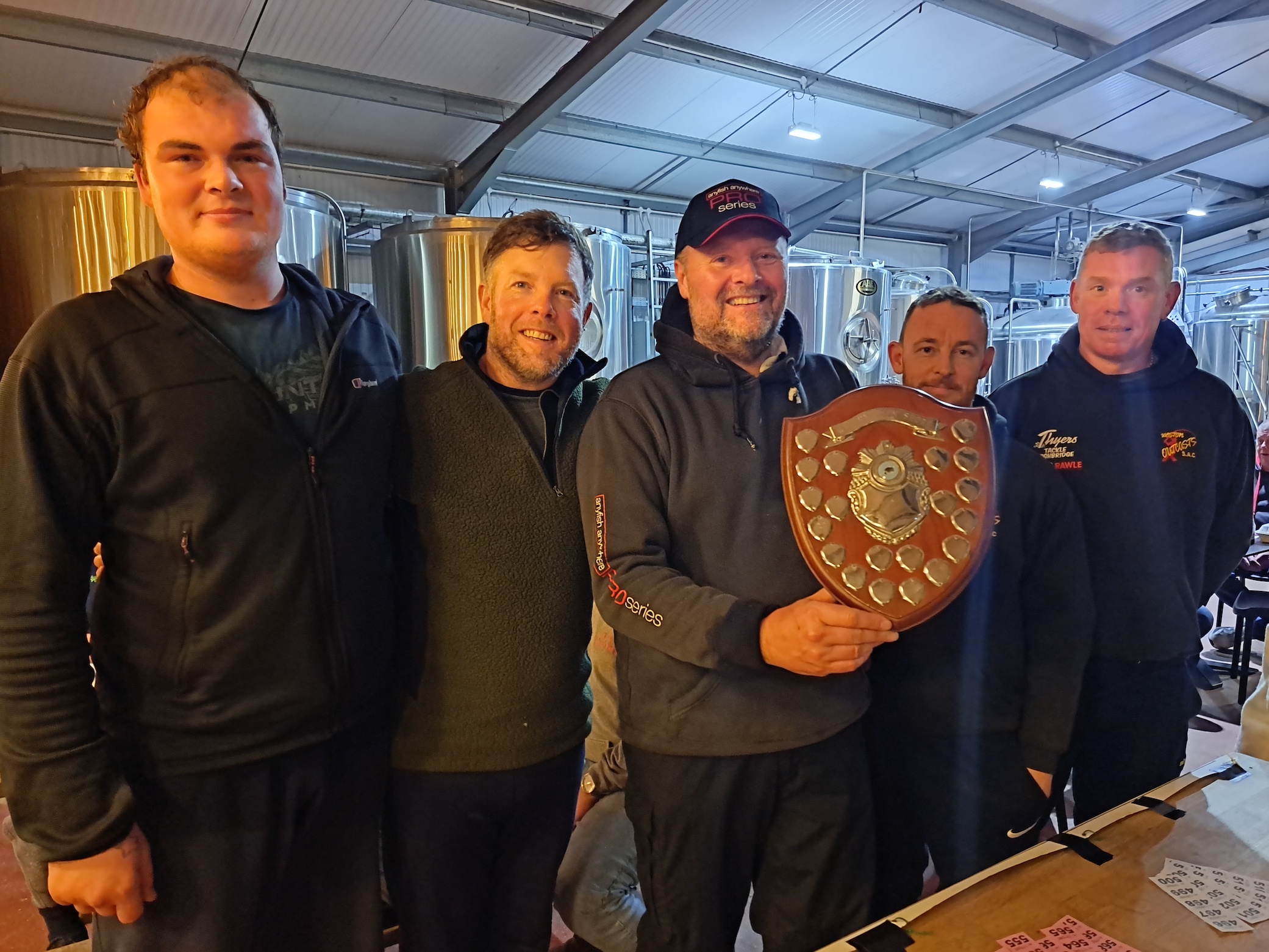
The first Thirteen Places are as follows:-
First : £200 Brixham Bowl
Ben Bradstock Honiton SAC Whiting 1.175 lb
L.S.D. 2.095 lb Total: 162.13%
Second: Pick of the Prize table & Bideford Cup Cup
Archie Sweetland Honiton SAC L.S.D. 2.135 lb
Whiting 1.13 lb“ Total: 160.73 %
Third Pick of the Prize table & Appledore Cup
Damien Close Outcasts L.S.D. 1.98 lb
Whiting 1.16 lb
Total: 156.53 %
Fourth Pick of the Prize table & Sidmouth Cup
James Madsen Outcasts L.S.D. 1.665 lb
Bull Huss 7.875 lb
Total: 145.35 %
Fifth Pick of the Prize table
Lee Hemmings T.S.A.S.
Whiting 0.940 lb
S.E. Ray 7.3125. lb Total: 143.92 %
Sixth Pick of the Prize table
Tom Stebbens Kingsbridge
Whiting 0.960 lb
L.S.D. 1.830. lb Total: 137.20 %
Seventh Pick of the Prize table
Dave Bowering Caerau Whiting 1.180 lb
L.S.D. 1.445 lb Total: 136.47 %
Eighth Pick of the Prize table
Till Hall Outcast Whiting 1.075 lb
L.S.D. 1.585 lb Total: 135.07 %
Ninth Pick of the Prize table
Jeff Fisk Wareham Whiting 0.860 lb
L.S.D. 1.900 lb
Total: 133.33 %
Tenth Pick of the Prize table
Dave Nicholls Blackdown
Whiting 0.755 lb
L.S.D. 2.070 lb Total: 133.13 %
Eleventh: Pick of the Prize table
Joe Walton T.S.A.S.
Whiting 0.895 lb
L.S.D. 1.650. lb Total: 125.67 %
Twelfth Pick of the Prize table
Andy Kershaw Bradford
Whiting 0.715 lb
L.S.D. 1.795. lb Total: 119.47 %
Thirteenth Pick of the Prize table
Joe Plumstead Hastings
Whiting 1.005 lb
L.S.D. 1.275. lb Total: 118.00 %
Best Team Team Shield: ( Team of four anglers, Best fish by each angler)
Team: Weston Outcast 1
James Madsen
Jason Brown
Damien Close
Till Hall
Total 290.22%.
Kindly donated by Steve Puckey from Plymouth, an additional 2 prizes were awarded for best Junior & second best junior.
These were awarded as follows:
Harvey Plumstead, Hastings, Whiting 49.07%
Chris Stokes, Weston Outcasts Whiting 43.33%
Ends:- Press Officer : Mike Spiller [email protected]
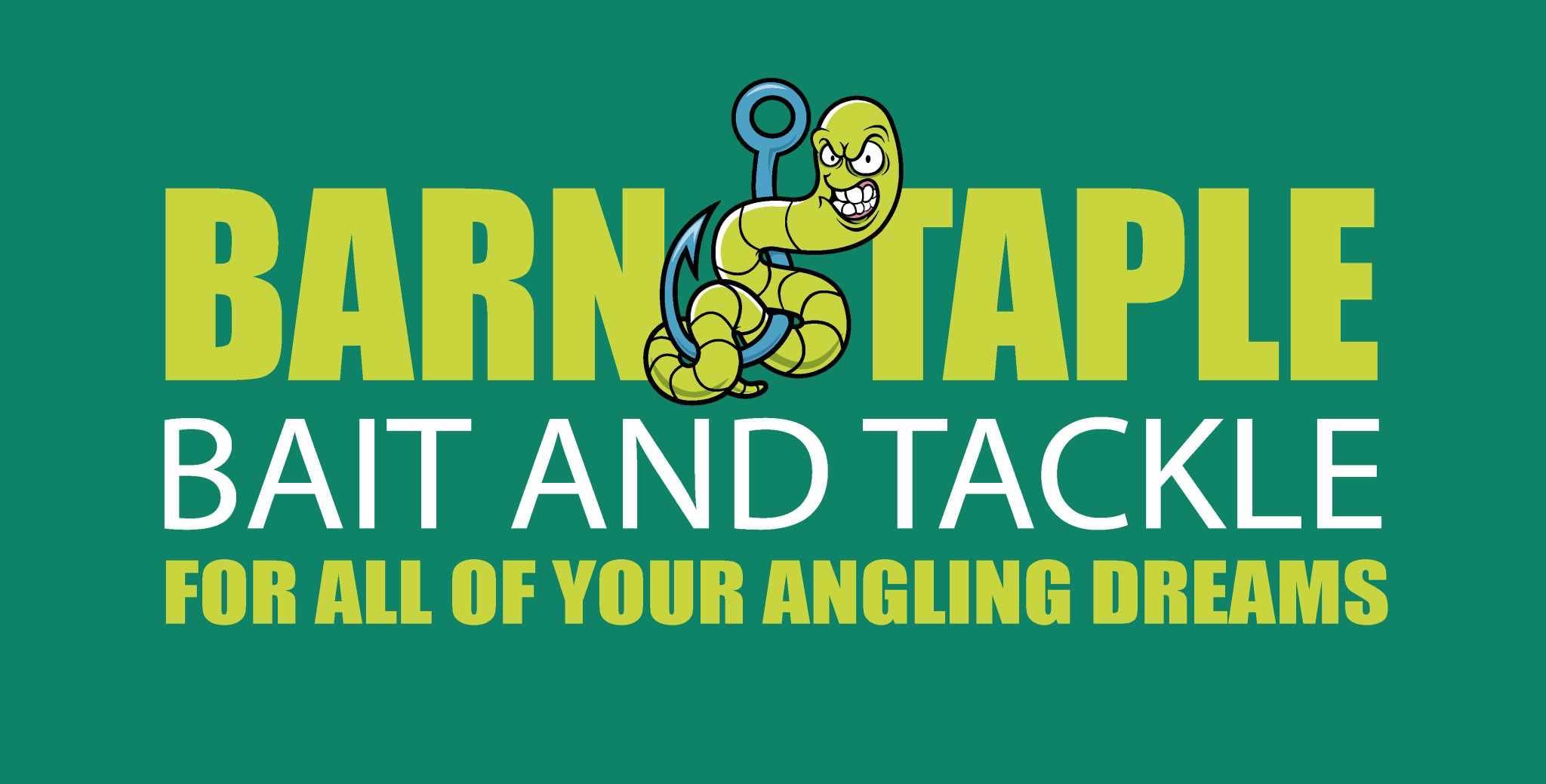

Dear Angling Trust Members & Supporters,
We are calling on you to join us at the upcoming March for Clean Water on Sunday, November 3rd in London. This is a great opportunity for anglers to make their voices heard on the urgent need for clean, healthy rivers and waterways, and we need as many of you as possible to join us.
We’ve already shared a video featuring our ambassador, Paul Whitehouse, alongside Bob Mortimer, encouraging support, now we’re asking you to be there with us in person. This march is about showing the strength of the angling community and the passion we have for protecting our waters.
Event details:
We’re asking everyone to wear blue as a show of solidarity, if you want to carry an old rod, or make up your own Anglers Against Pollution placard to show that the angling community stands united in the fight for cleaner, healthier waters. Your presence at the march will send a powerful message.
If you can’t attend, you can still support by sharing our social media posts to help spread the word.
This is our chance to make a difference, and we need you with us. We hope to see you there!
For updates see here.
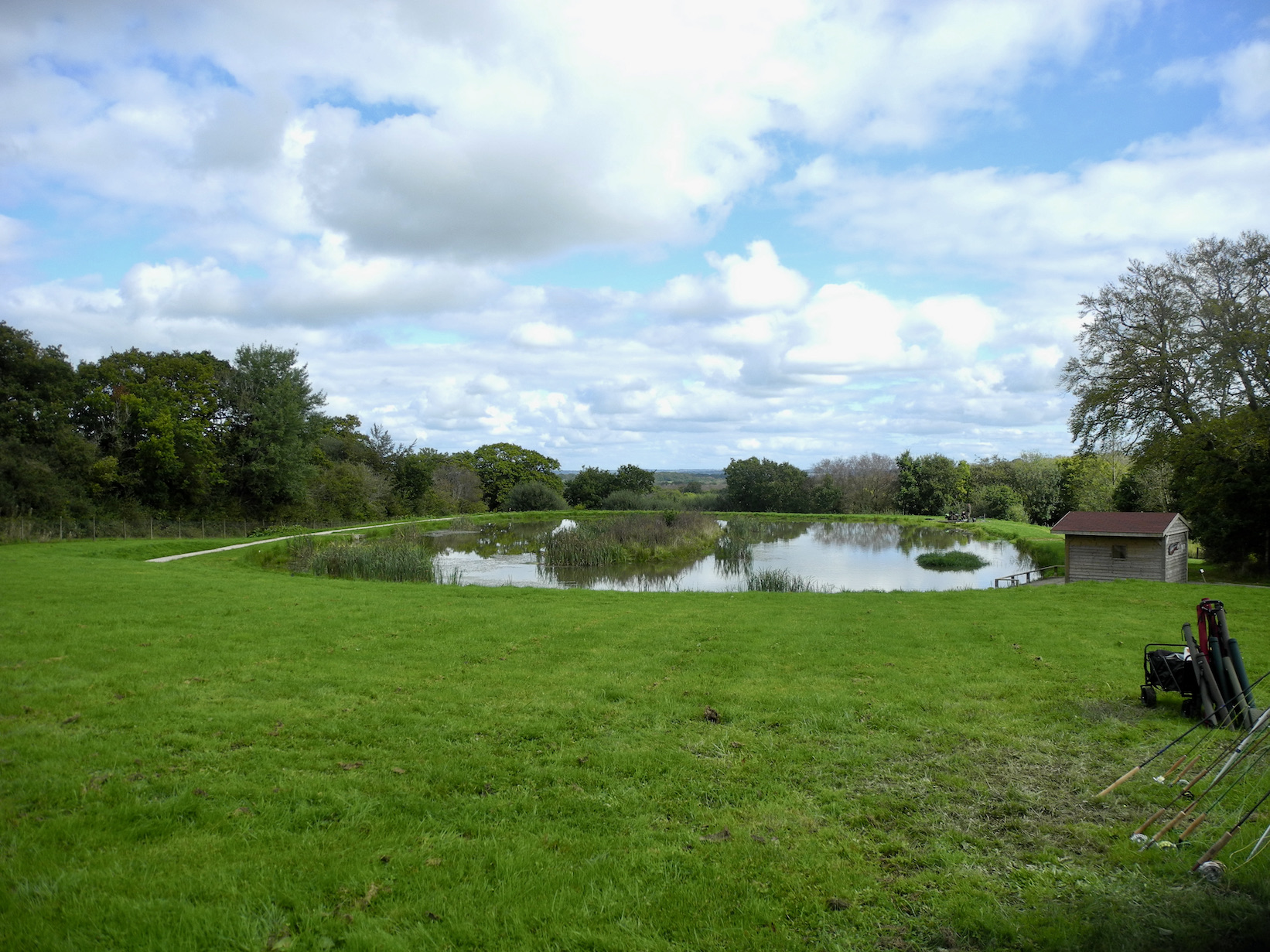
Pauline and I attended the Get Fishing Day at Anglers Paradise where over fifty keen newcomers to the angling world attended to receive invaluable advice and tuition from a team of Angling Trust accredited coaches. The day was divided into two half’s and participants rotated between three lakes including the Float Fishing lake, New Easy Cat lake and beginners carp lake.
( Below) Martyn Green delivered Fly casting tuition.
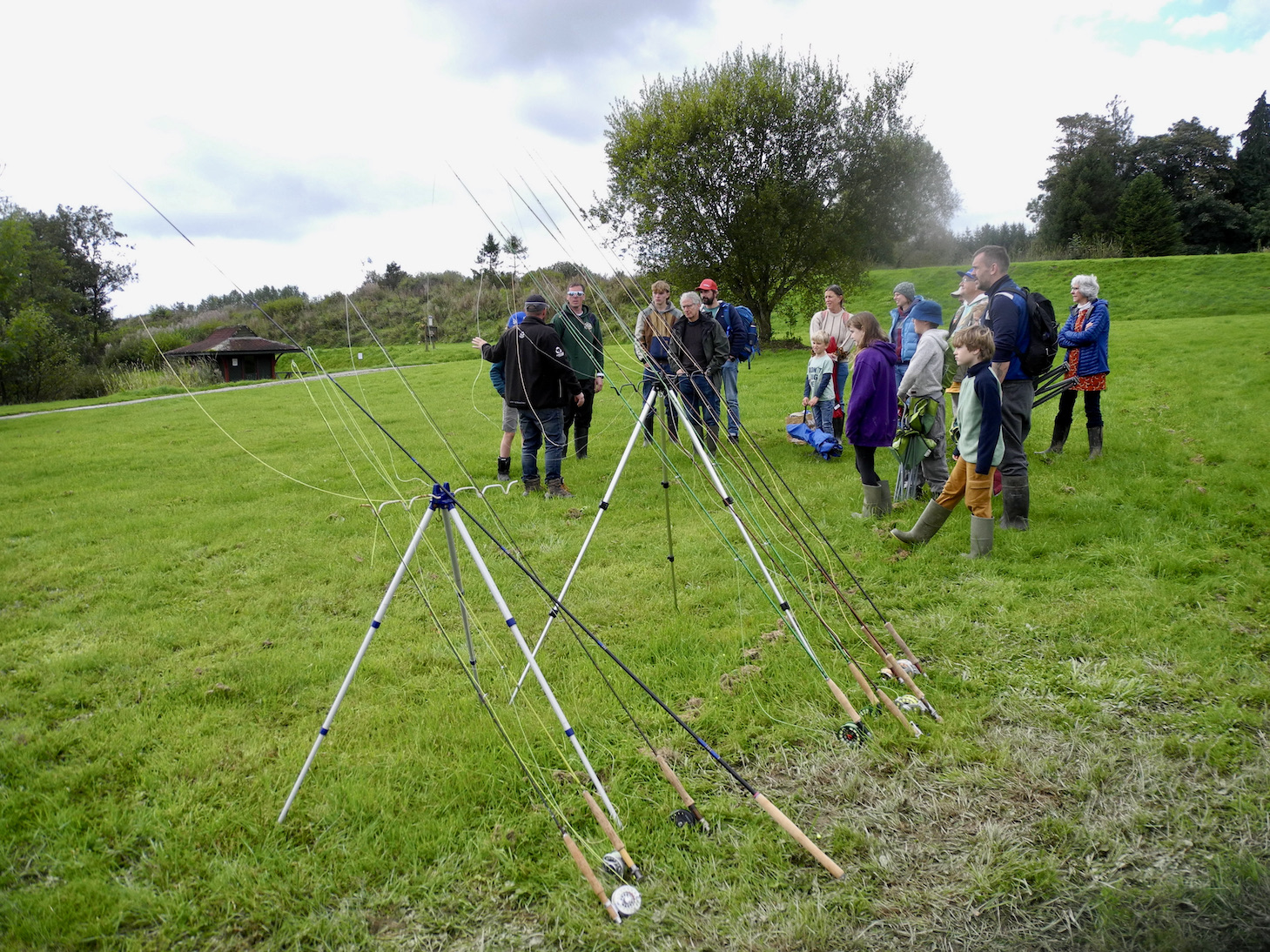
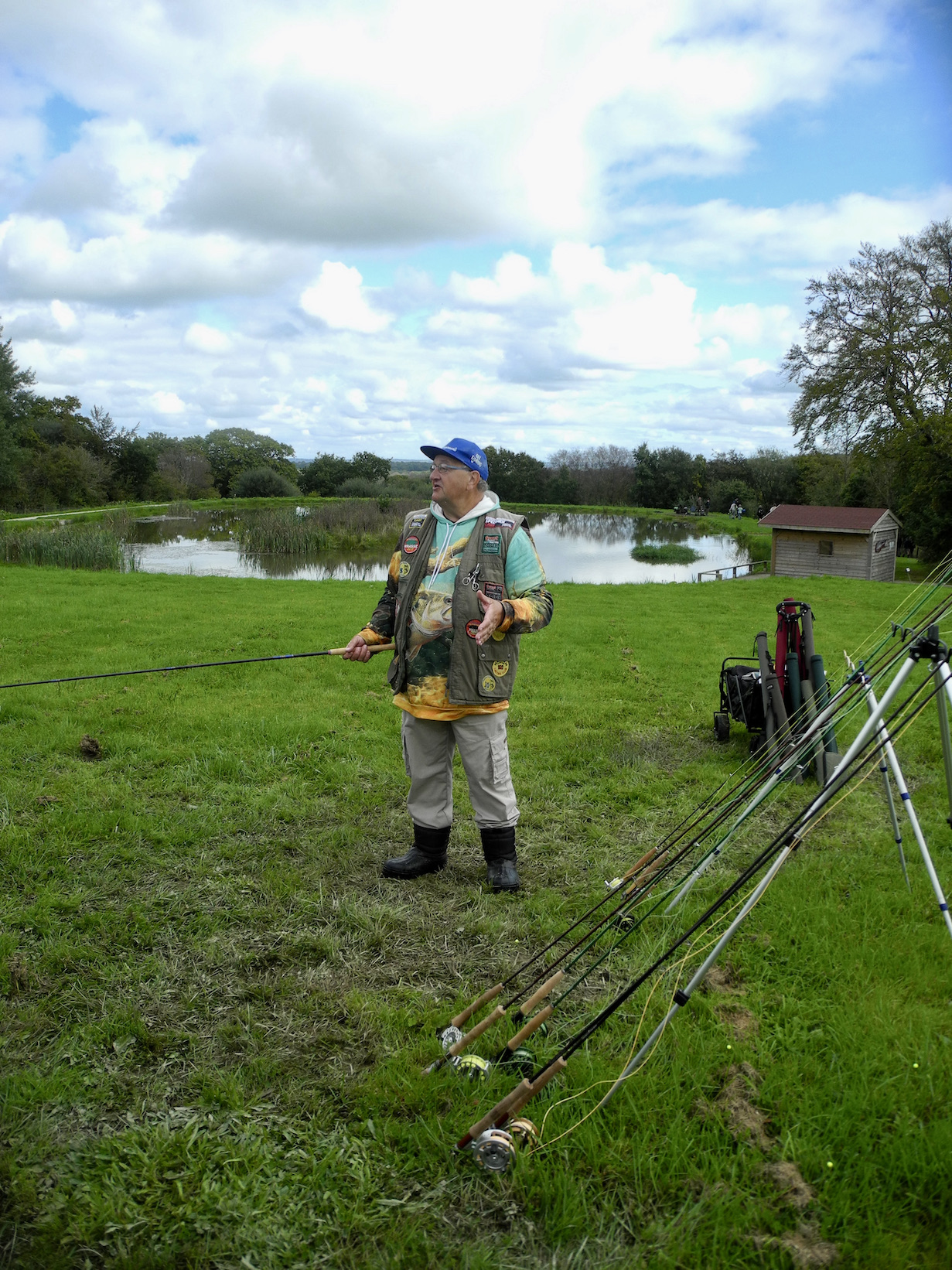
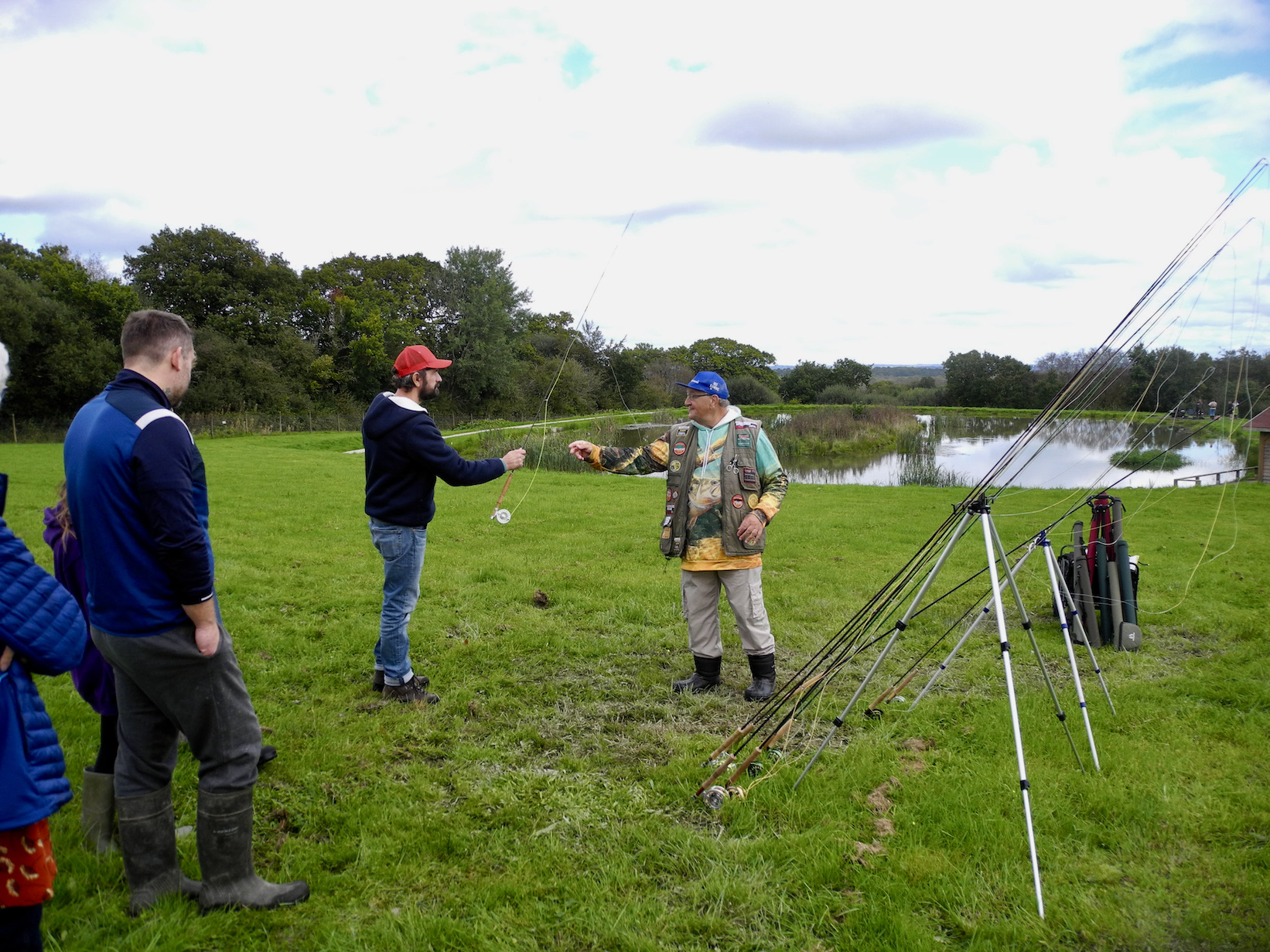
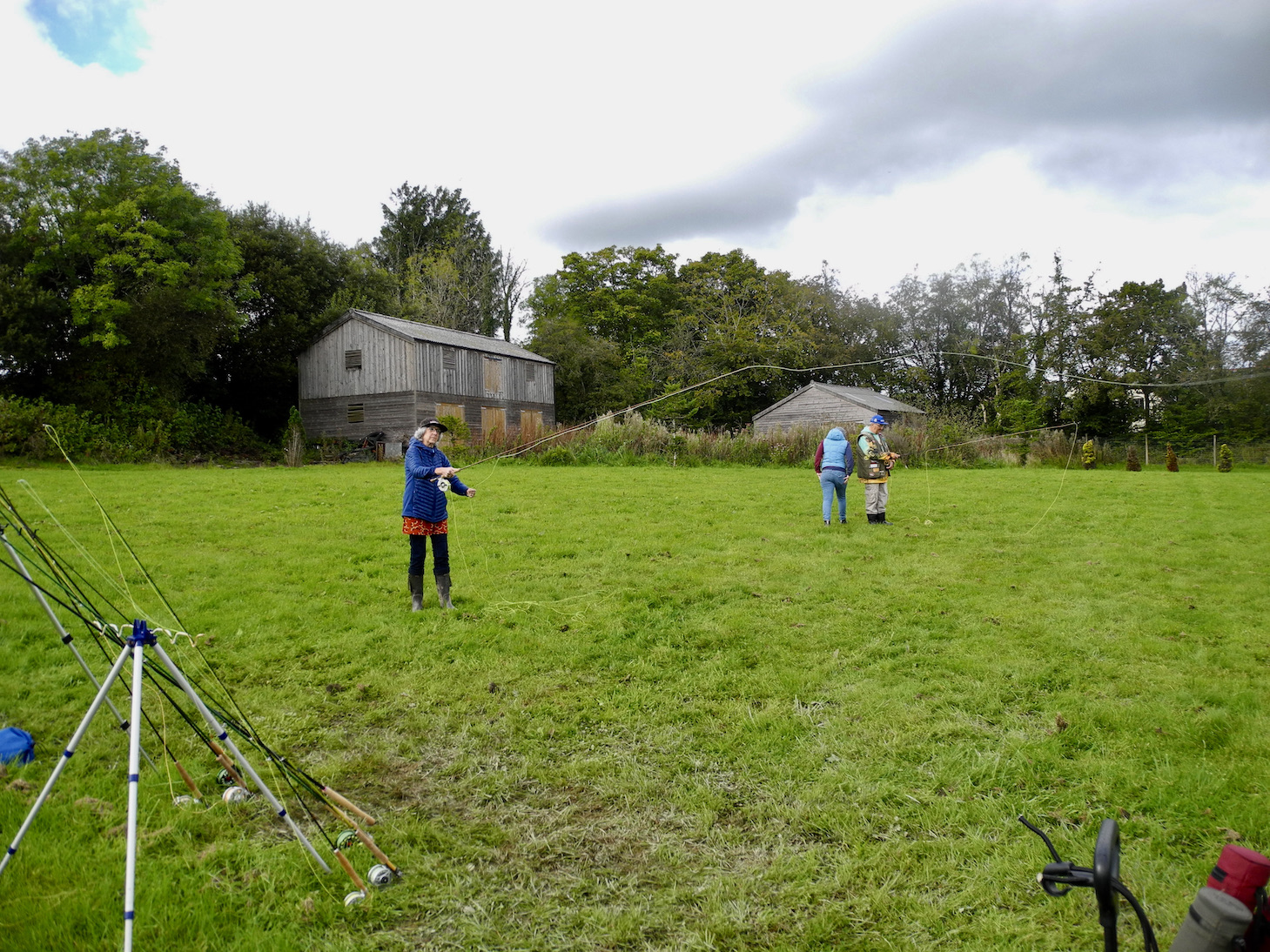
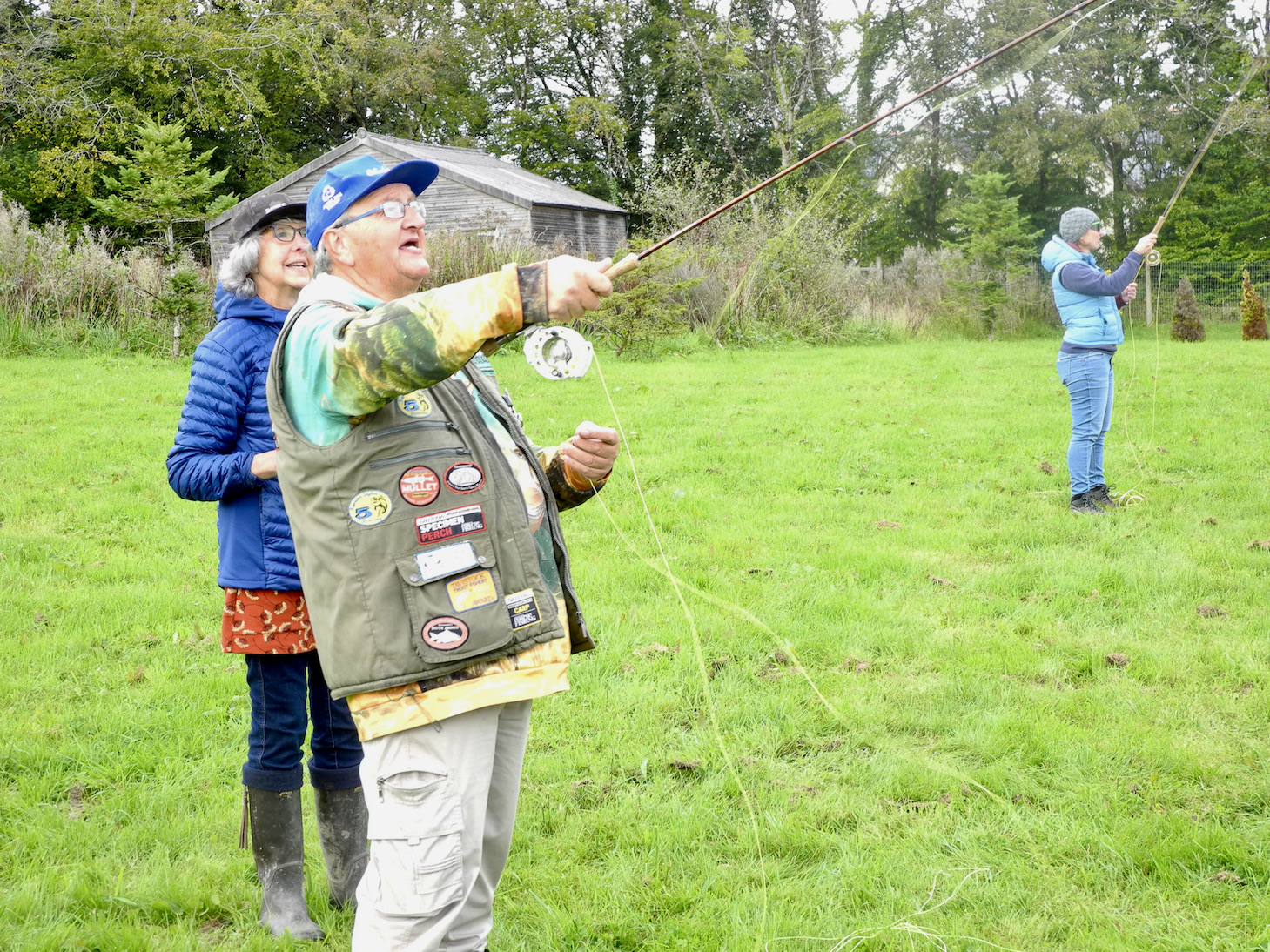
I feel sure that all who took part found the day invaluable in providing an introduction to the fundamentals of angling and the various set ups and tactics.
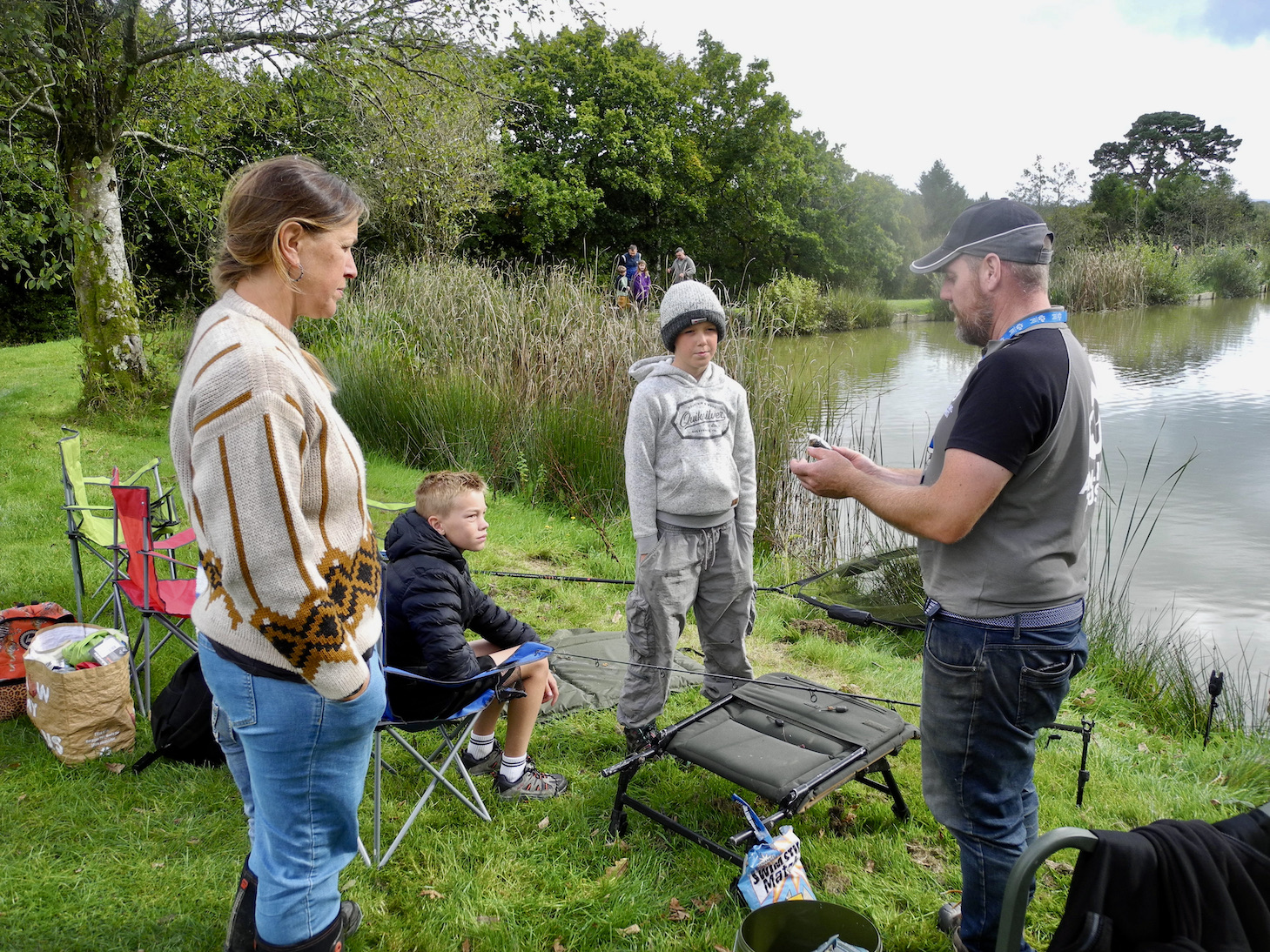
It was fascinating to watch the various coaches at work demonstrating the many varied methods used to tempt carp and other coarse fish.
A large number of small fish were tempted on the float lake ensuring that all had the chance to catch their first fish. Fish care was one of the main focus areas of the day with good principles highlighted throughout the sessions.
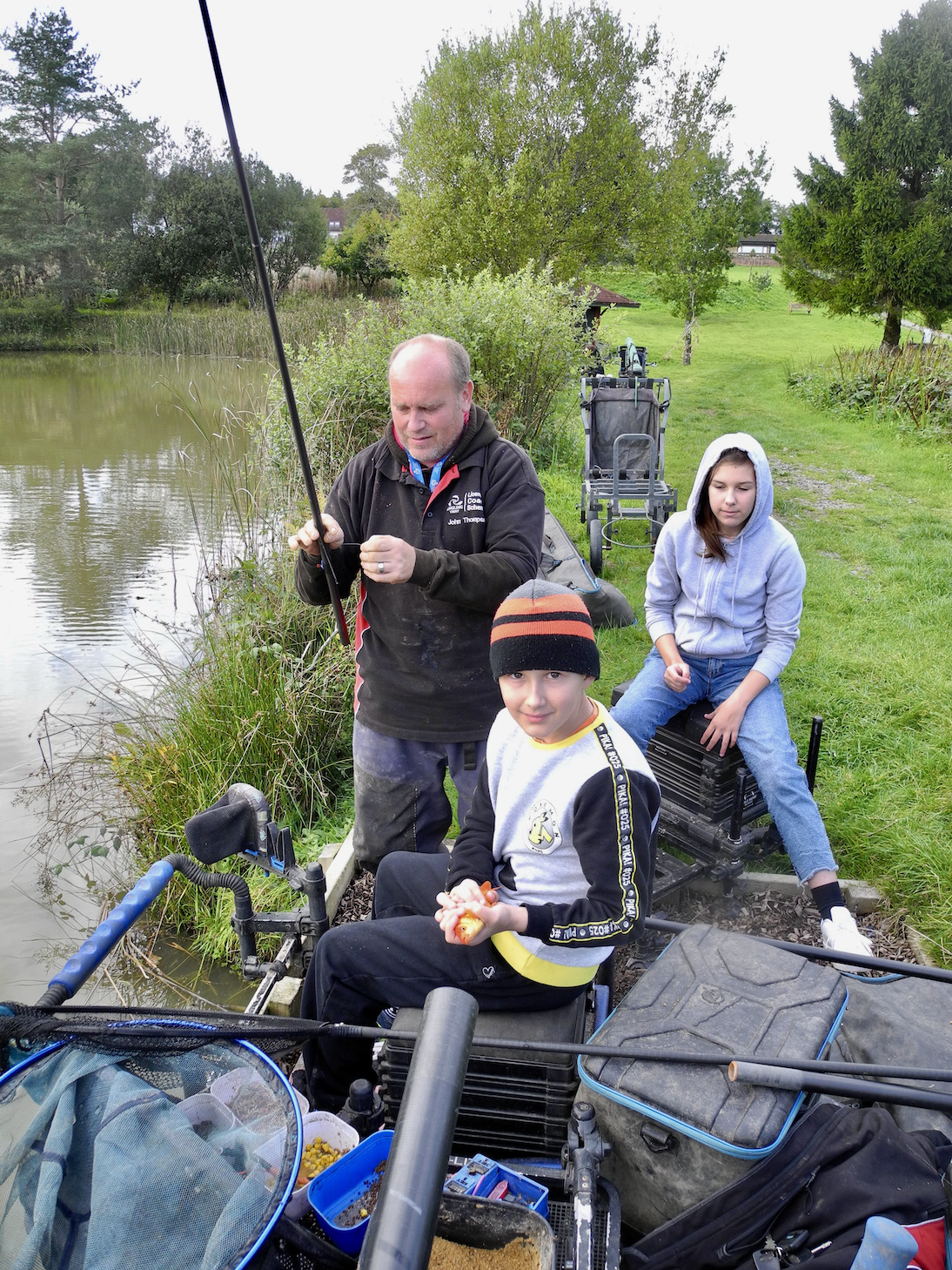
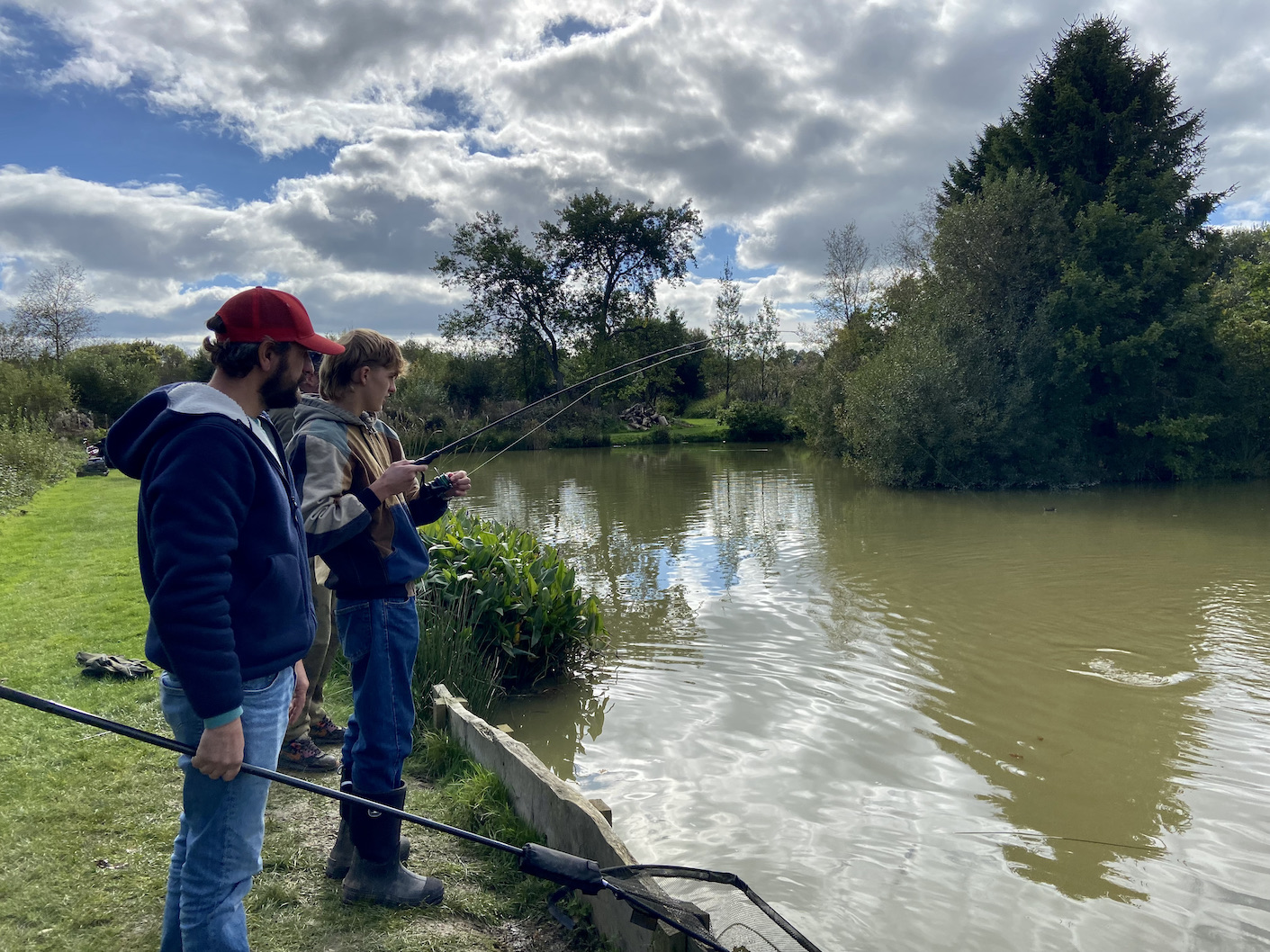
The day was sponsored by the Environment Agency, Angling Trust, Angling Direct, Shakespeare, Anglers Paradise and Dynamite Baits.
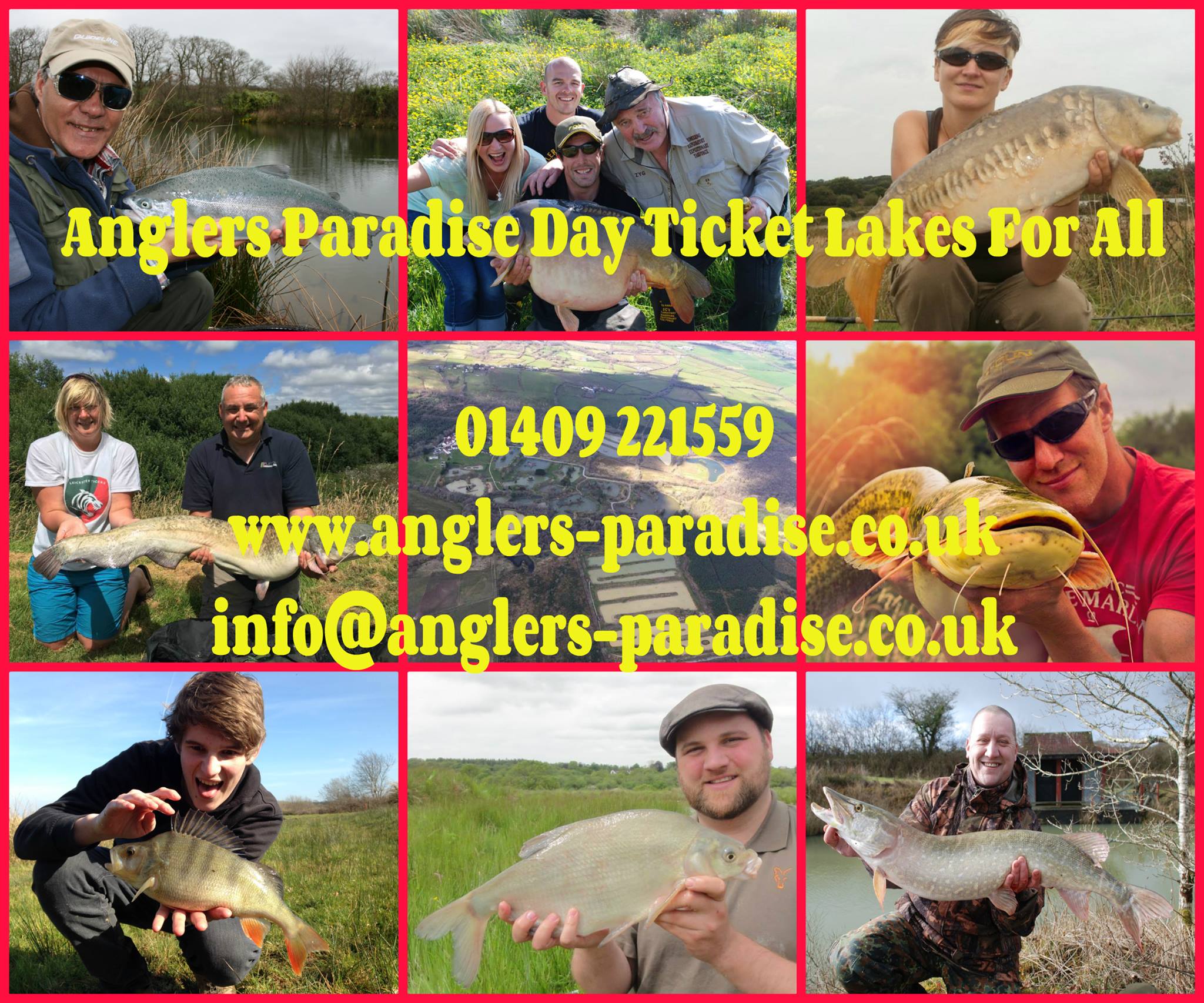

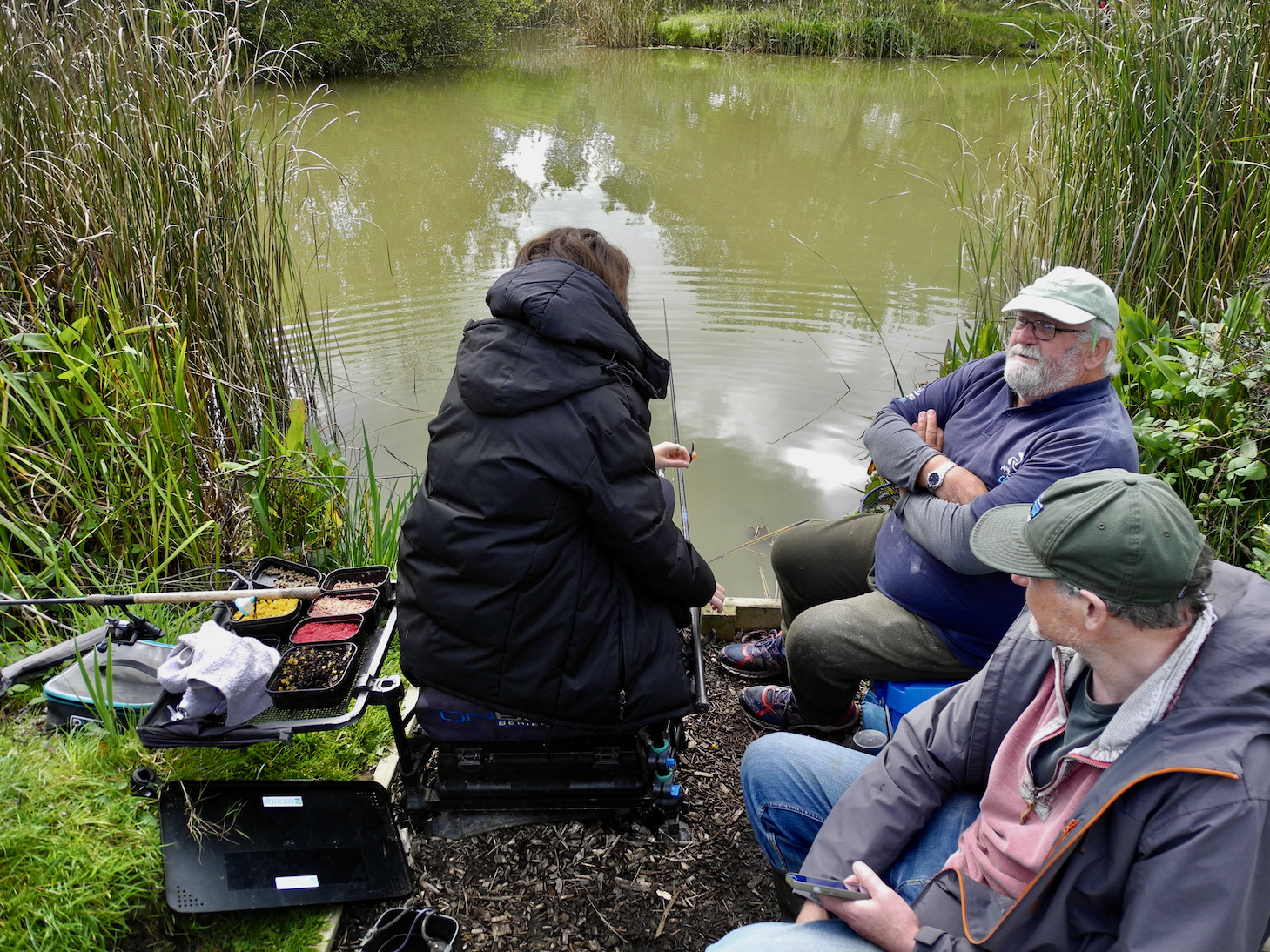
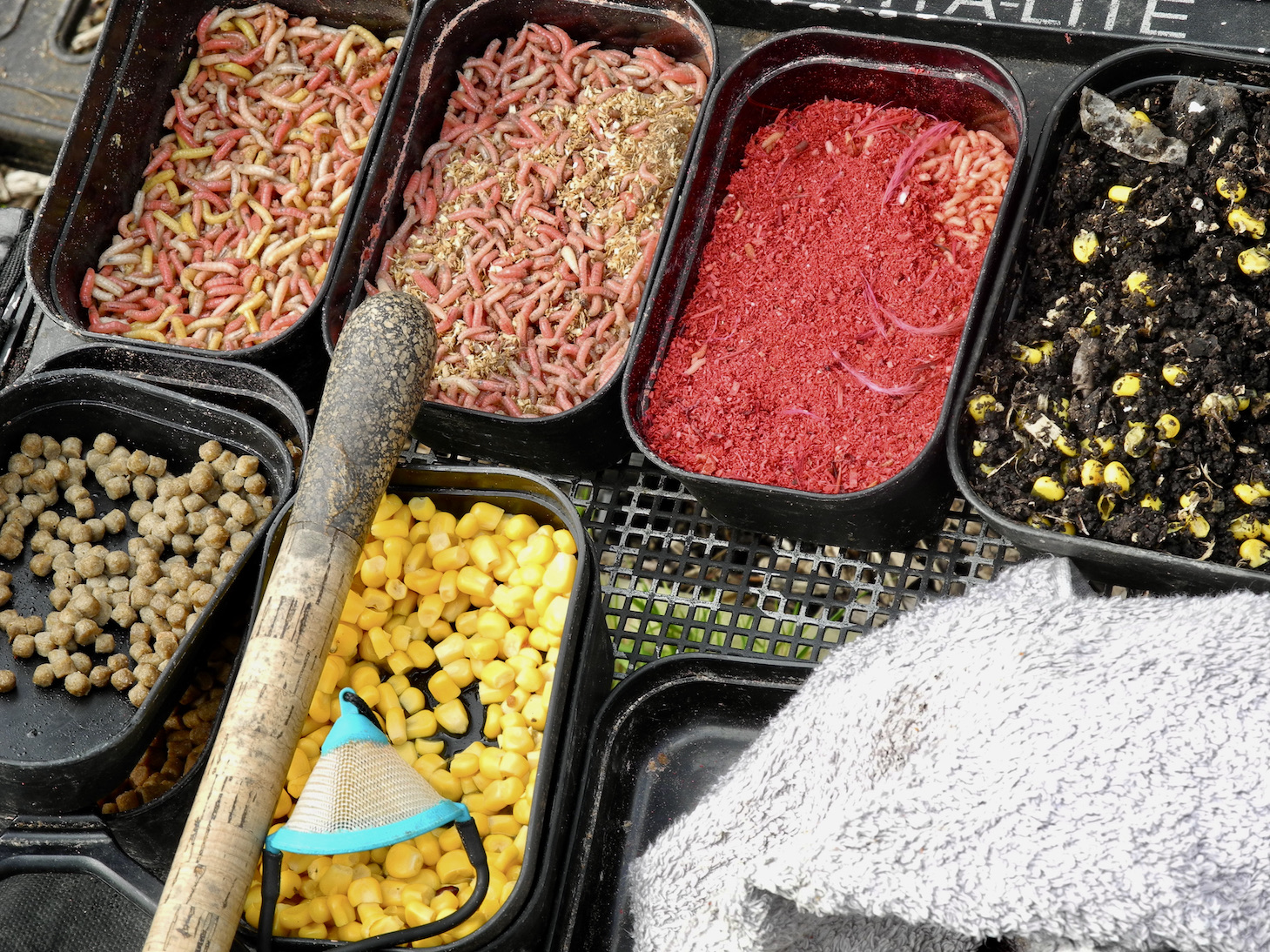
The event was very family oriented with every generation represented and the values to mental well-being and a valuable connection with nature very apparent.
Dean Asplin of the Angling Trust and Zenia Drury Gregorek did a Stirling job of organising the event at this extensive and popular angling venue.
(Below) Olivia Diebney enjoys catching a common carp
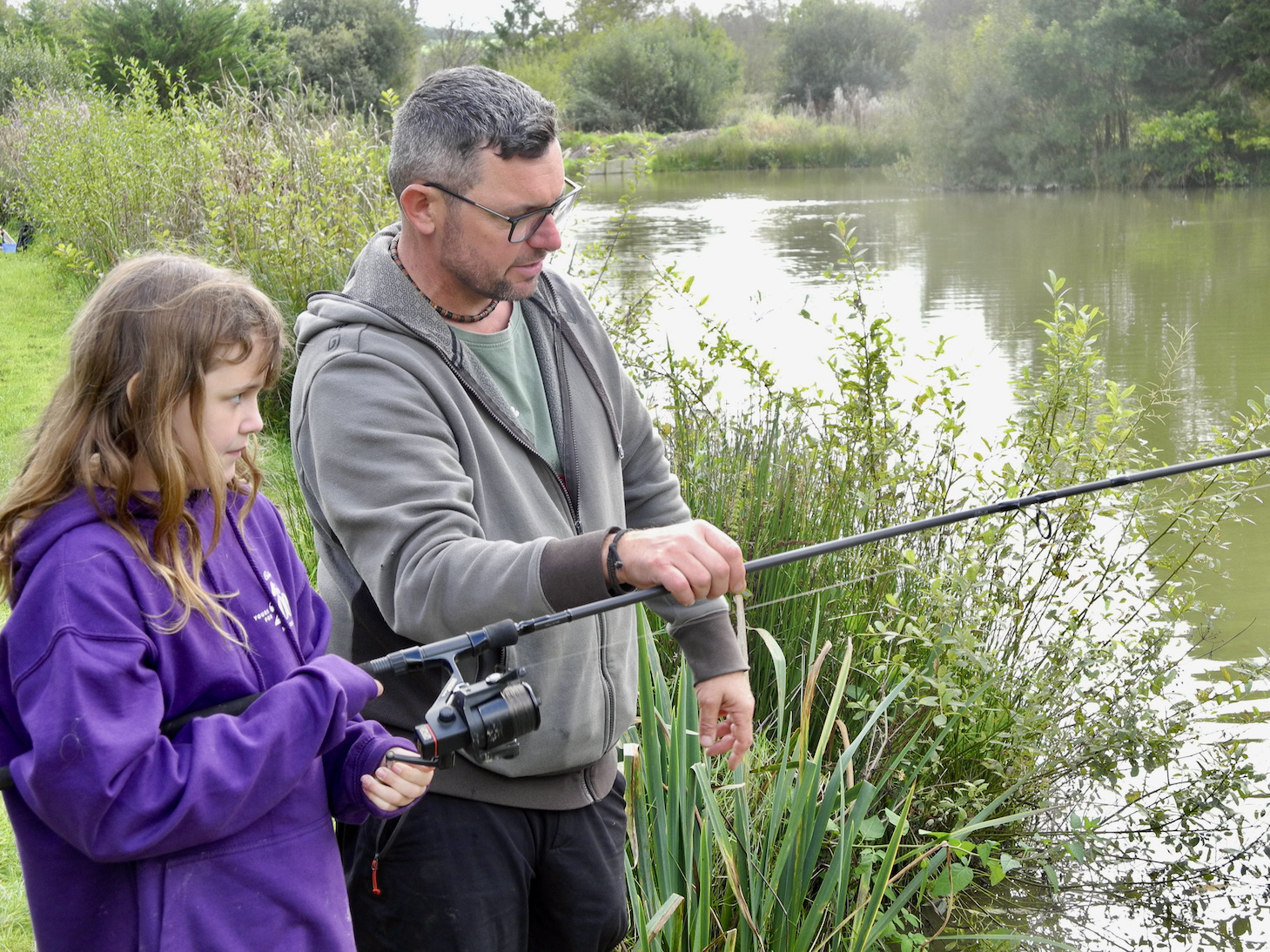
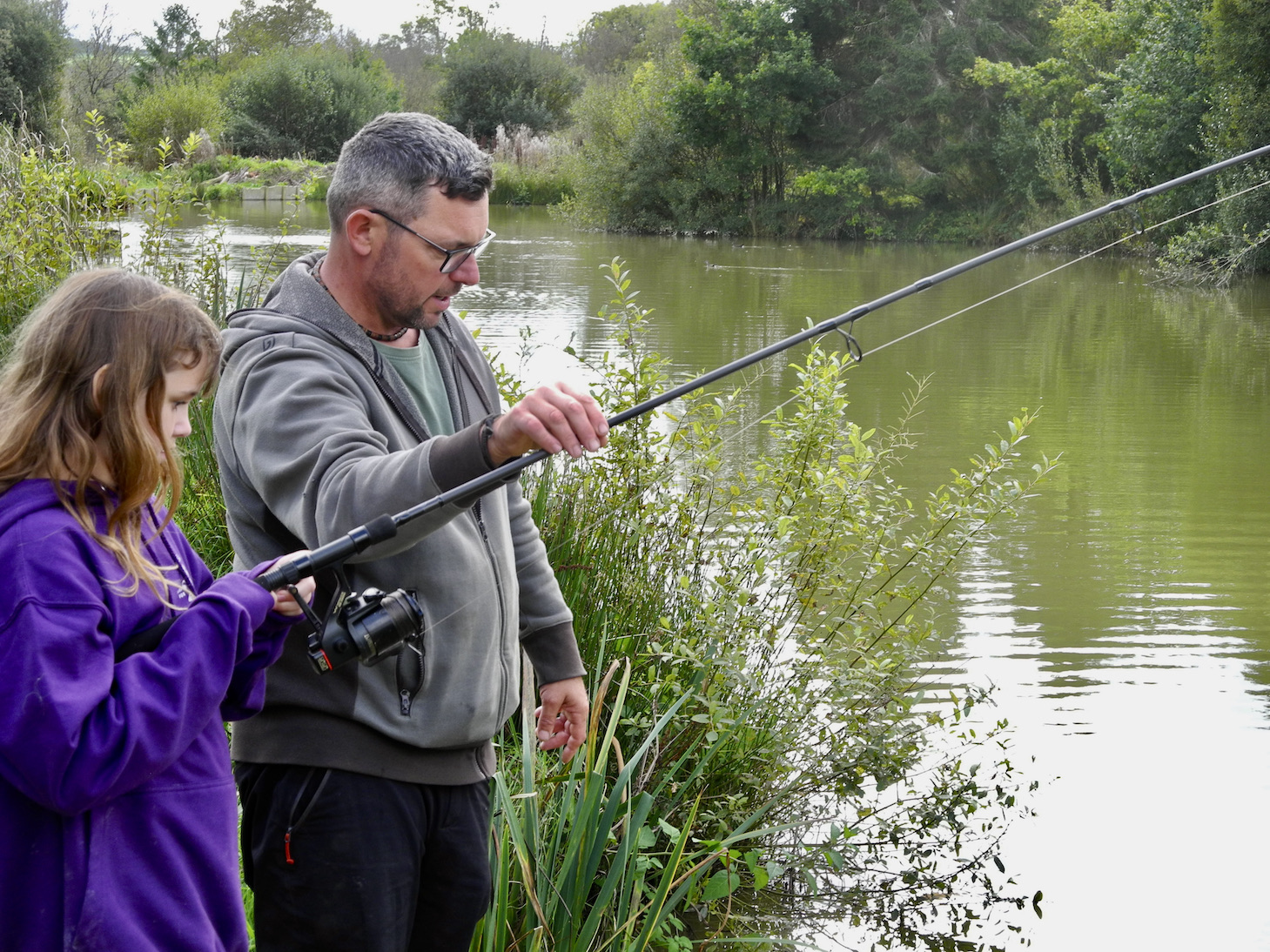
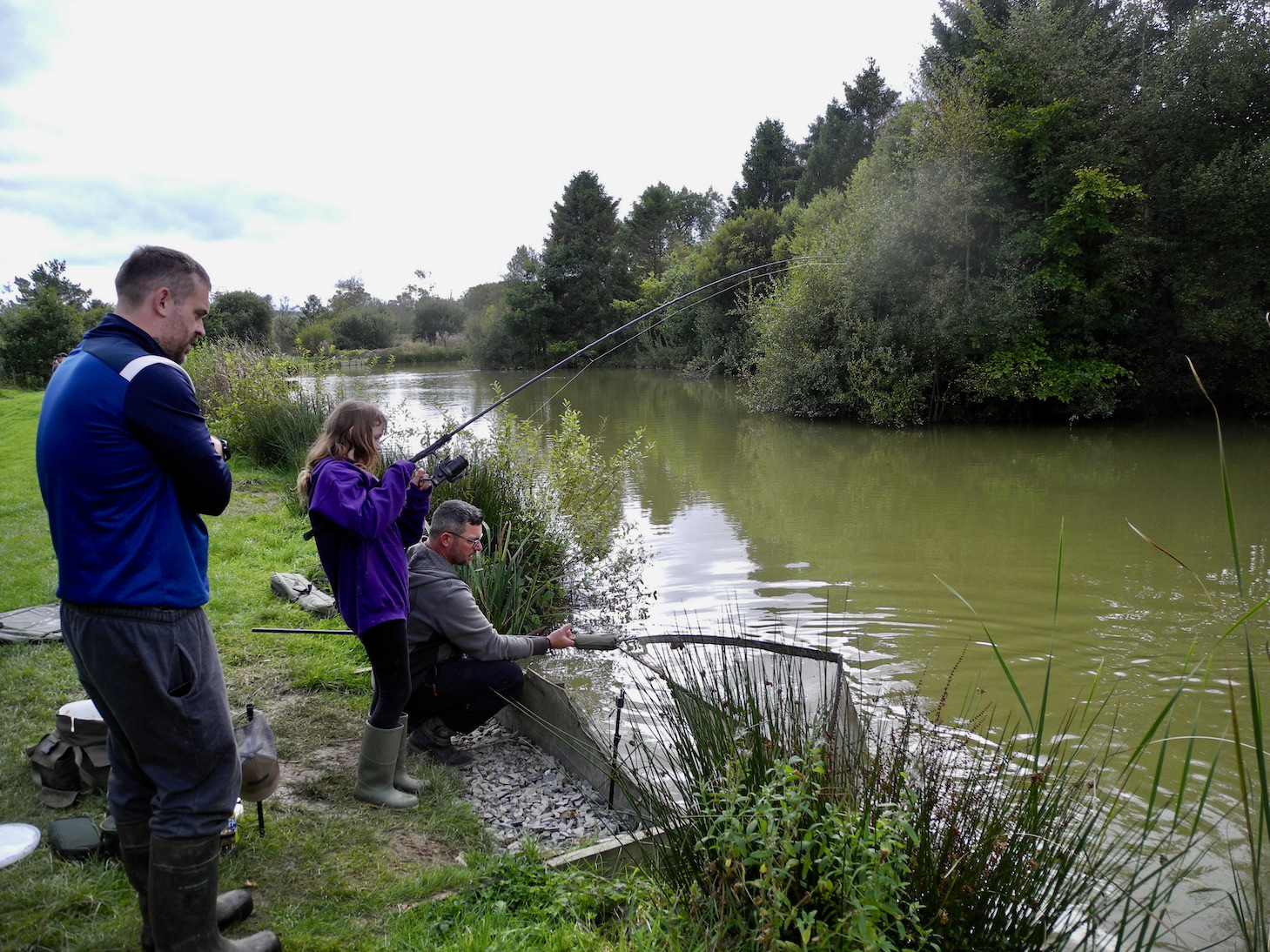
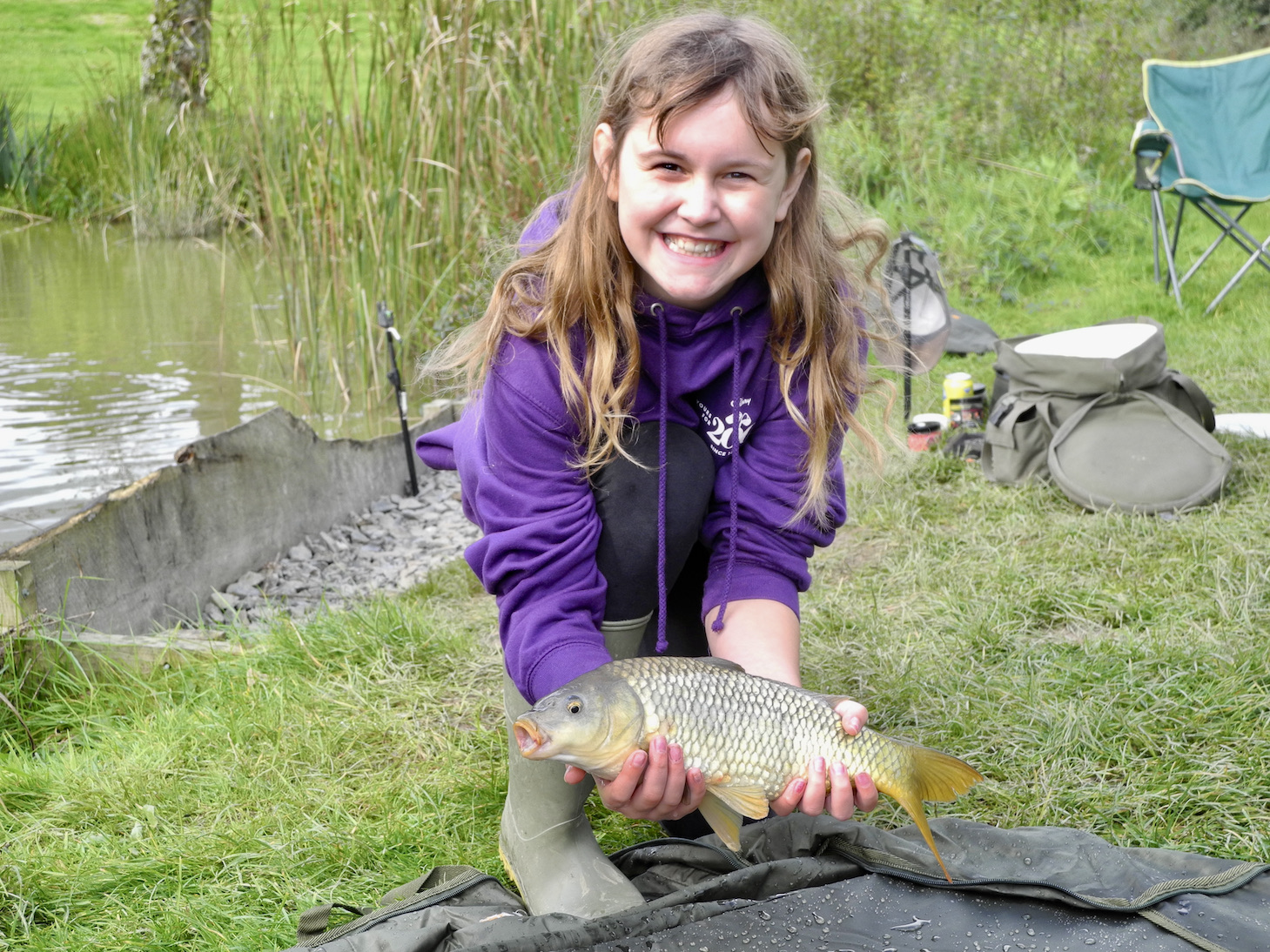
Eleven year old Bobby Lean certainly had a weekend to remember fishing with his father who was coaching on the New Easy Cat lake. During the afternoon session he banked a catfish in front of an appreciative audience. Then staying on overnight with his dad Gary Lean they fished the Nirvana Specimen catfish Lake banking huge catfish of 84lb and 72lb!
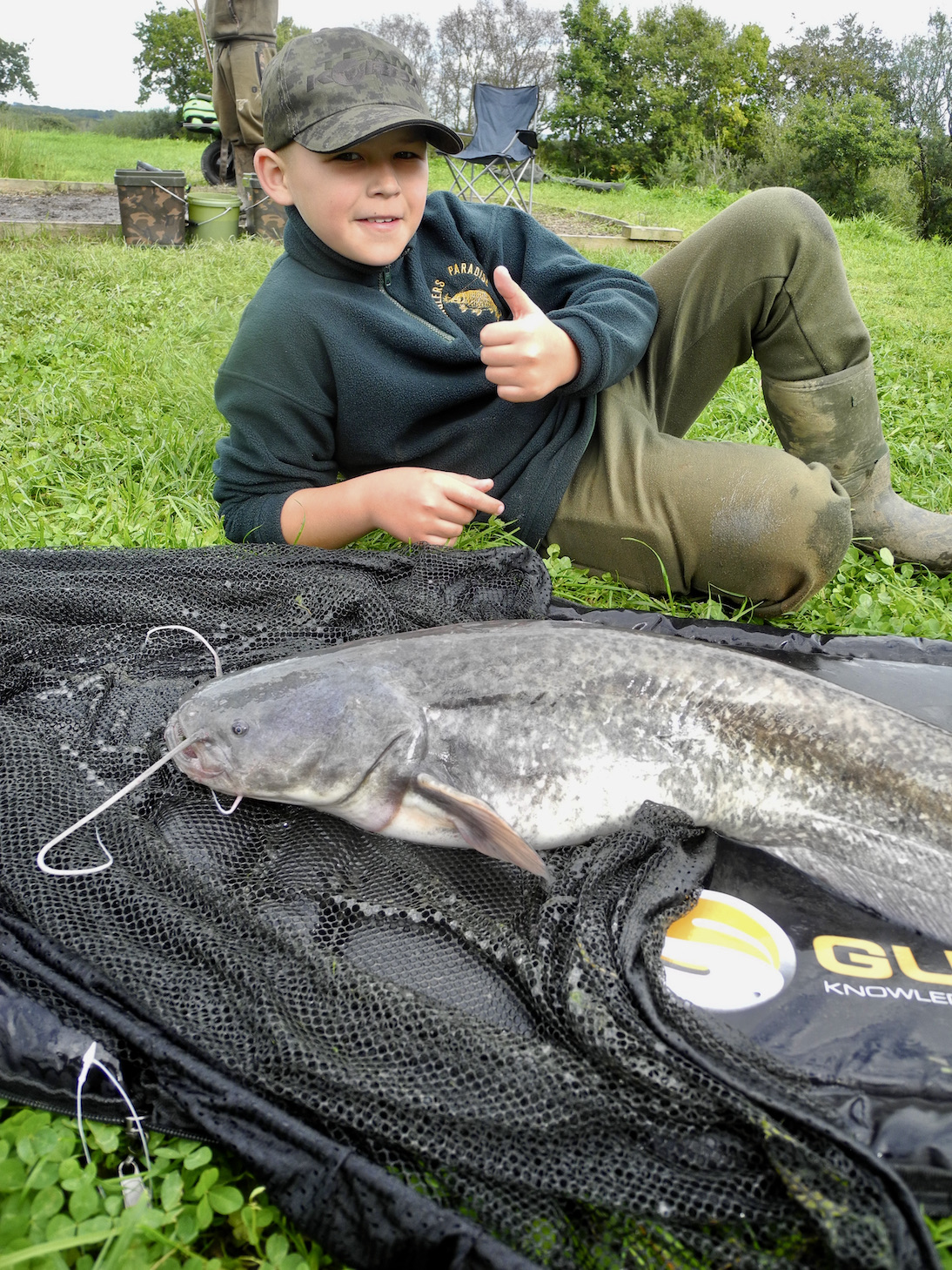
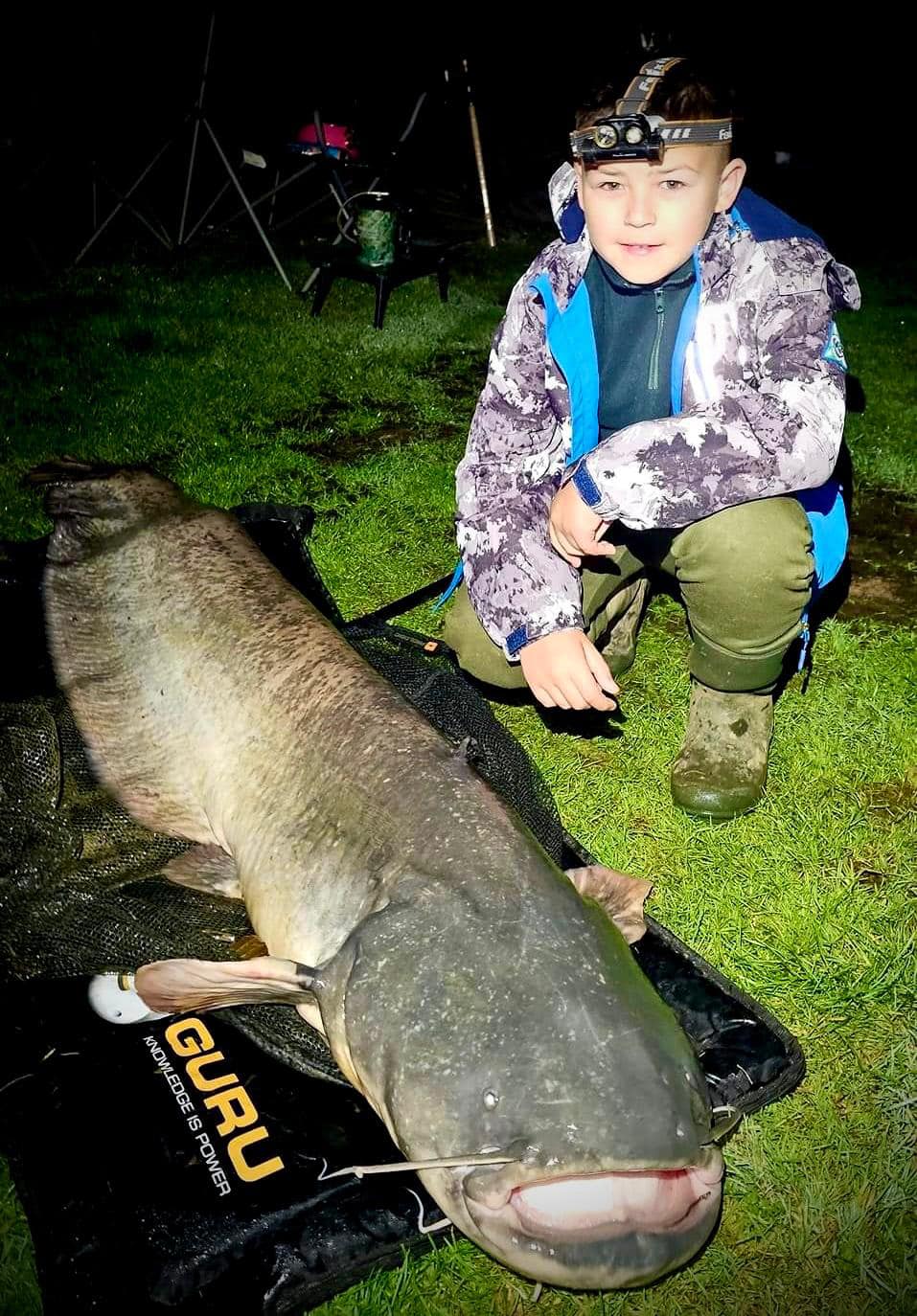
Below are several images from the day that was blessed with sunshine and light winds.
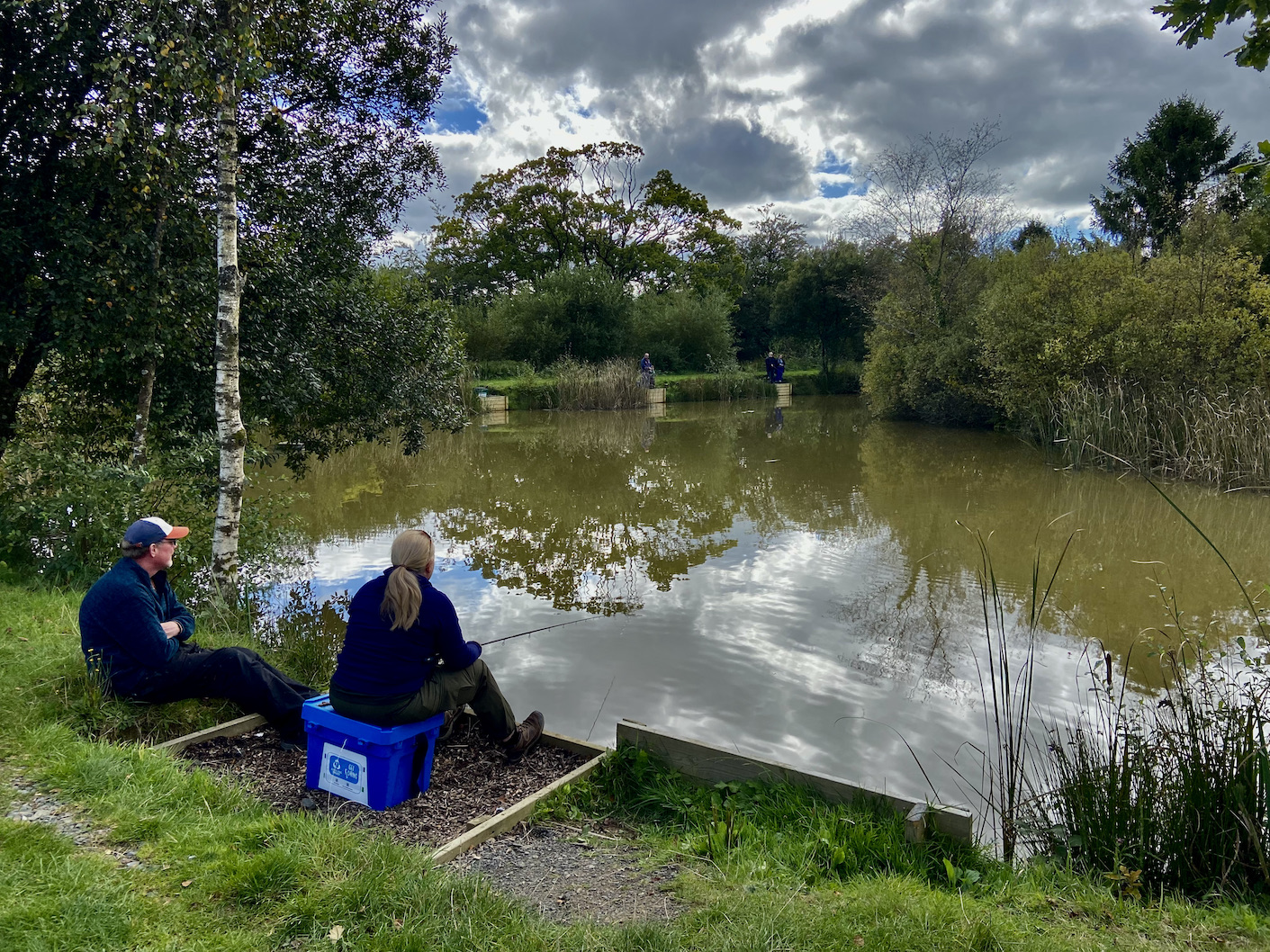
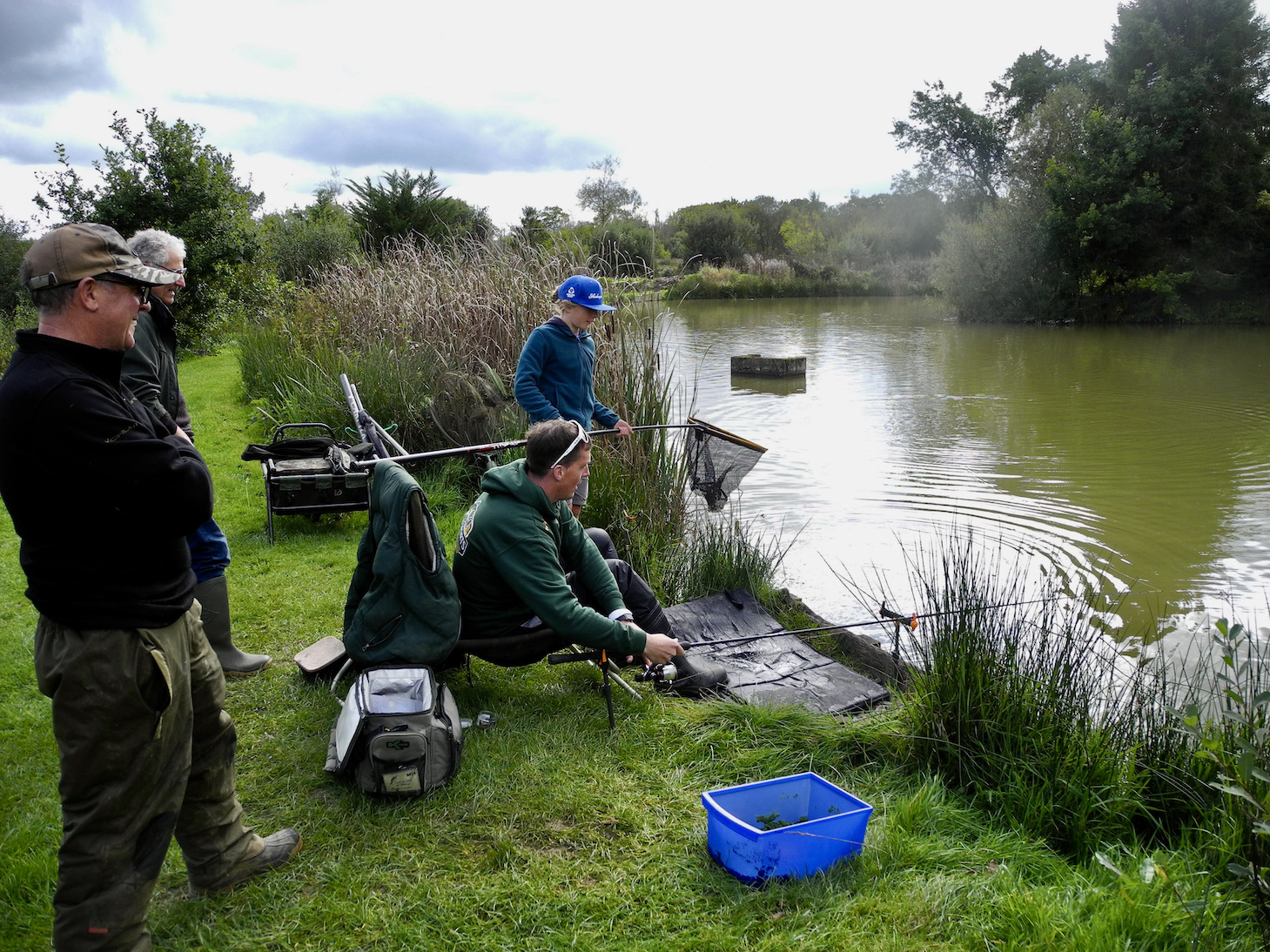
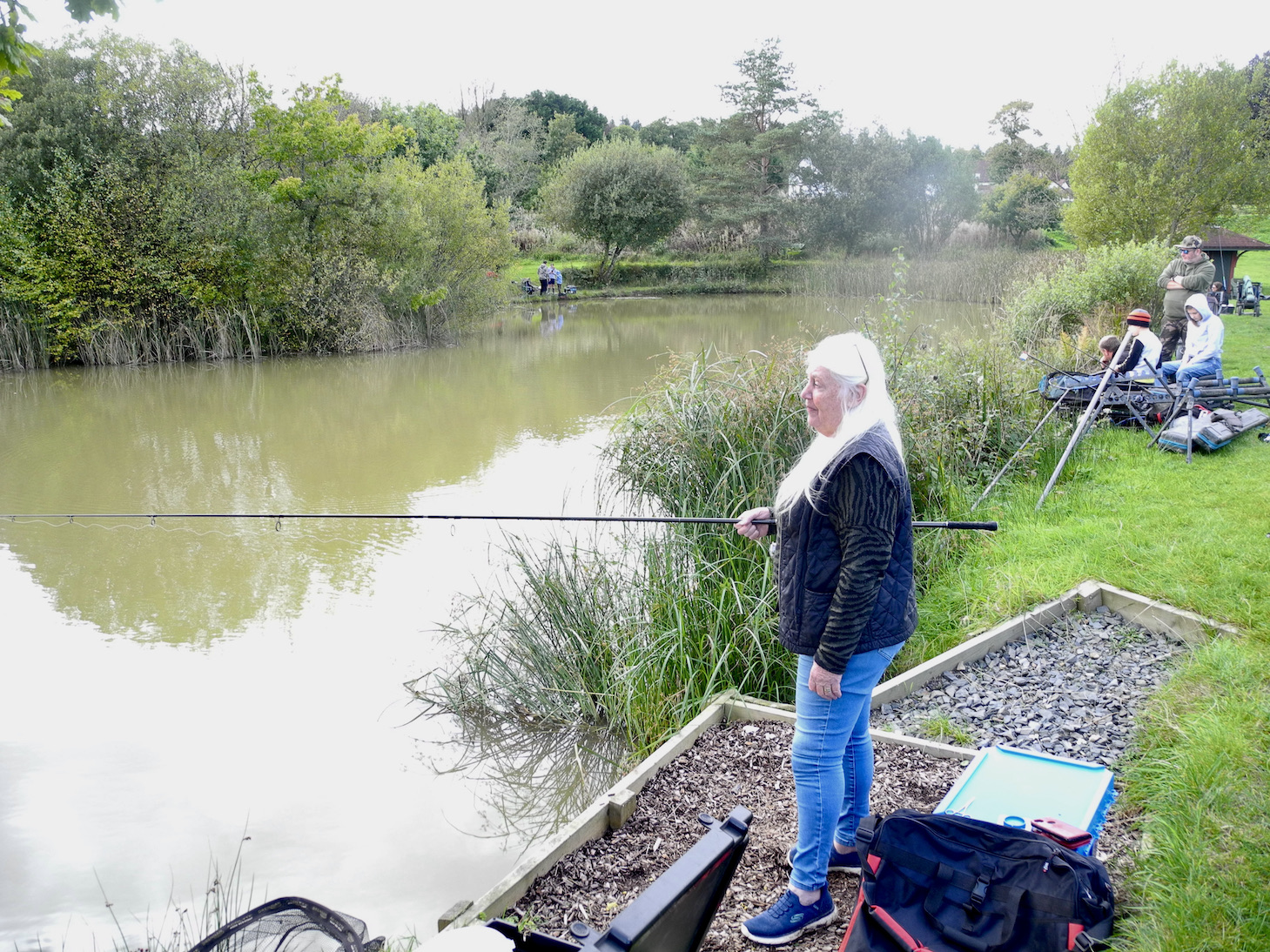
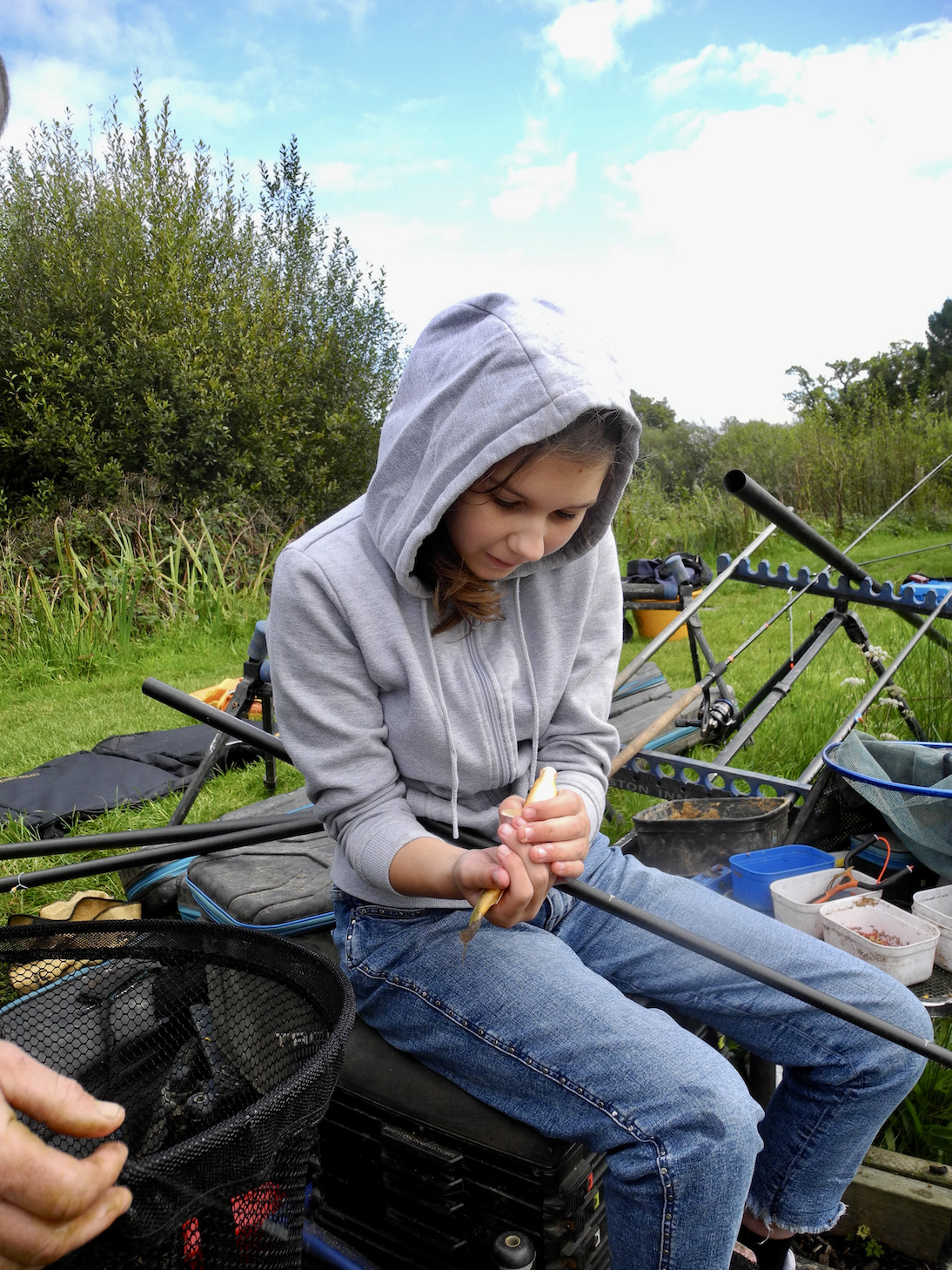

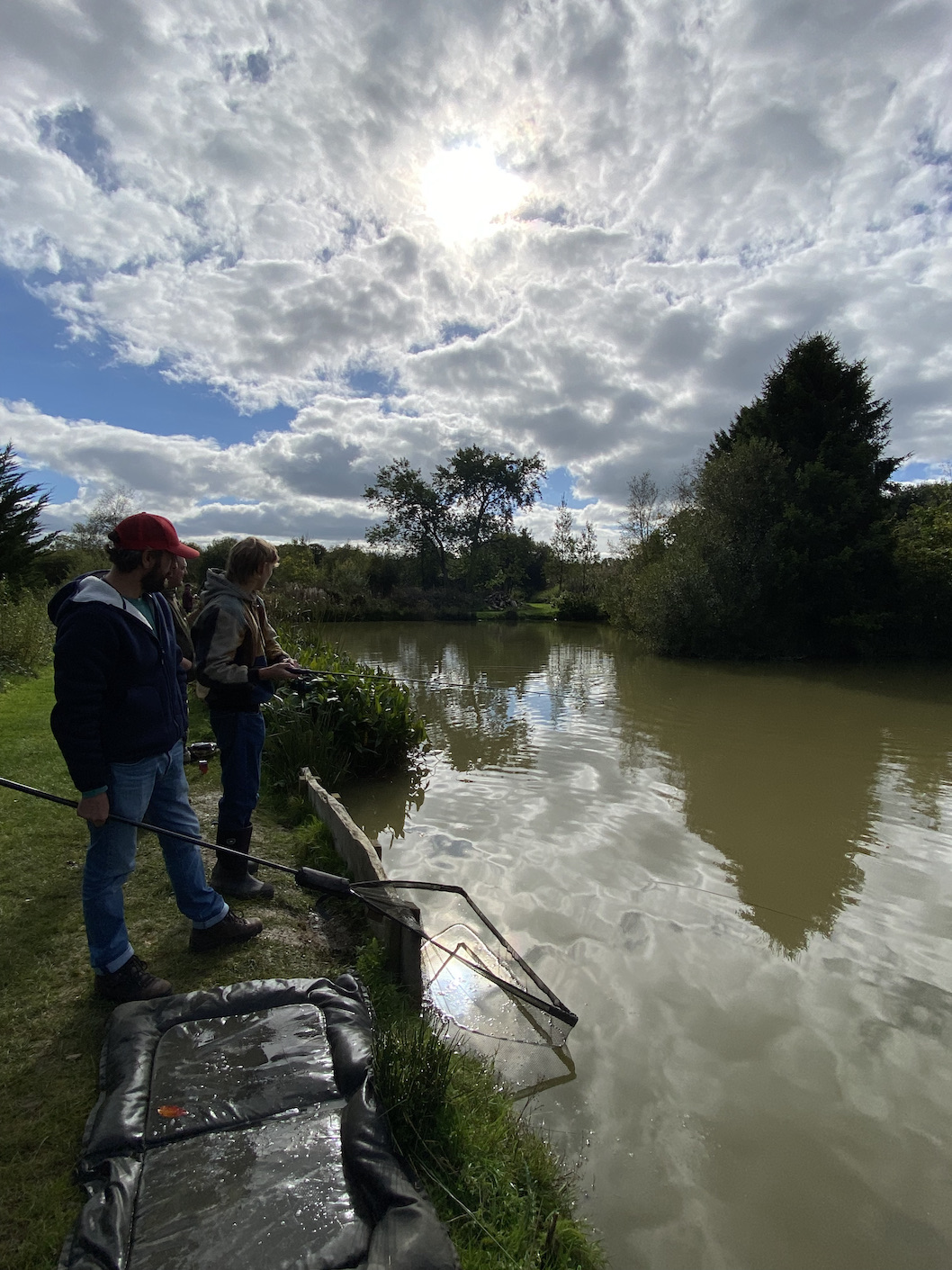
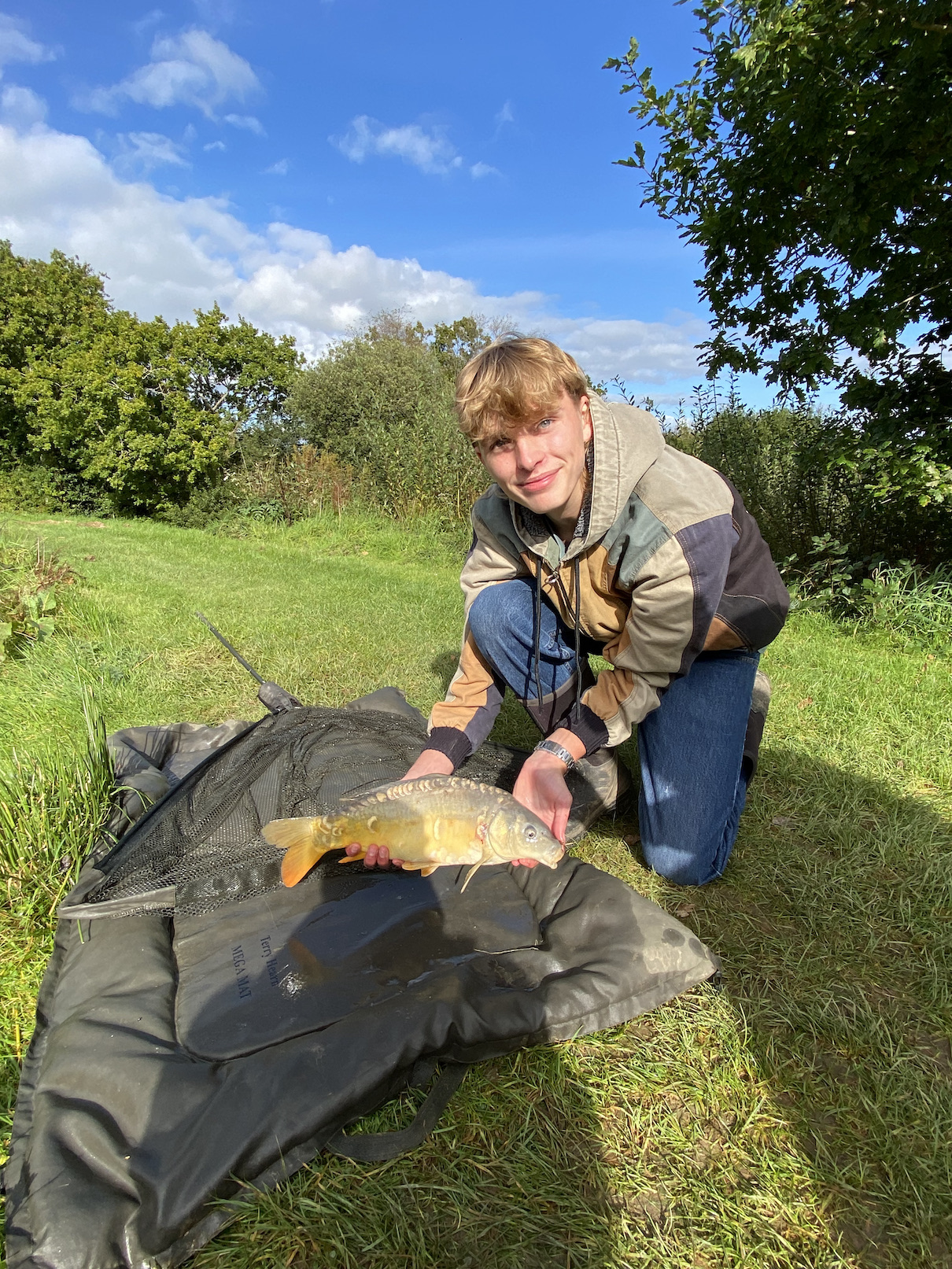
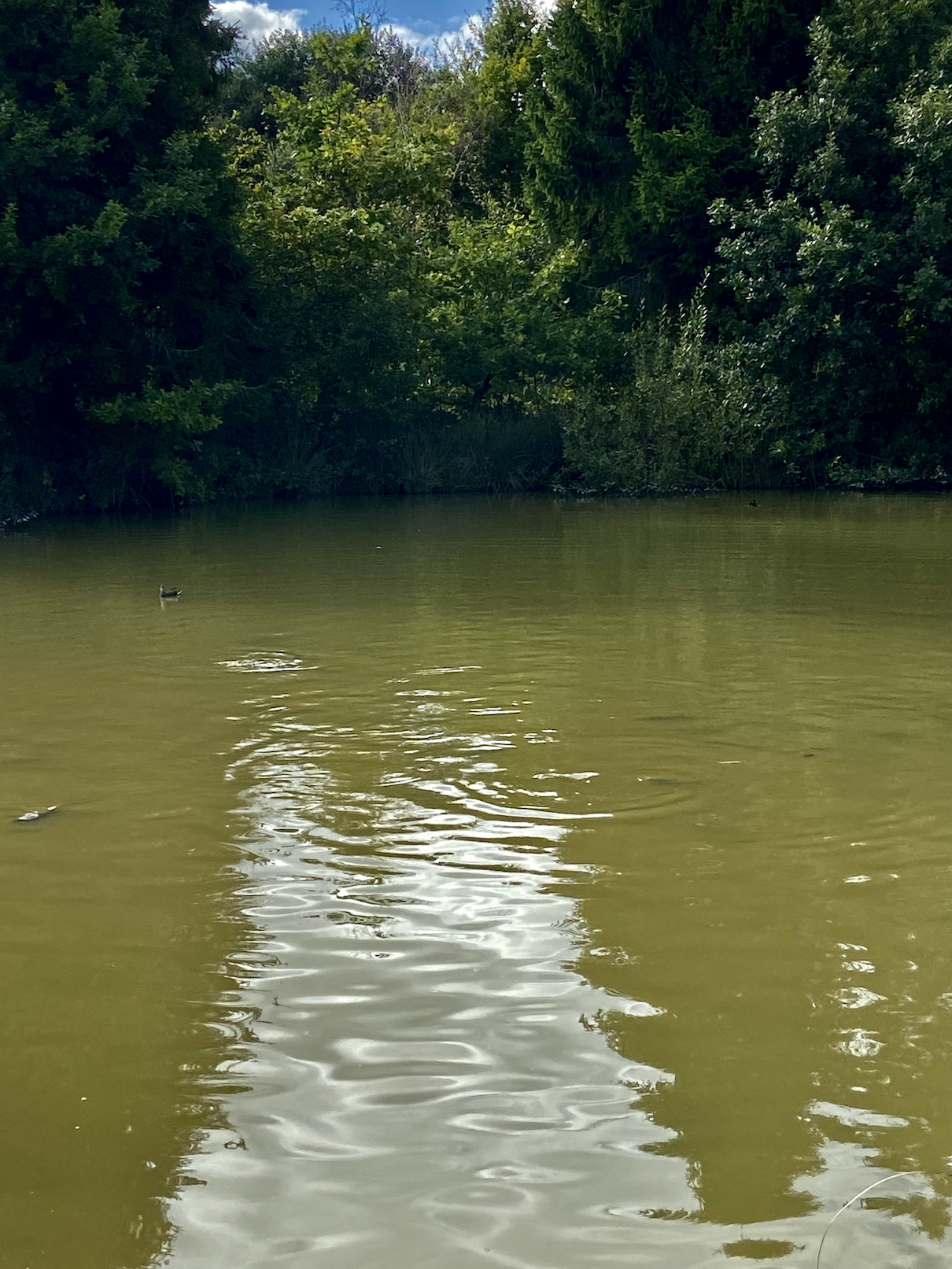
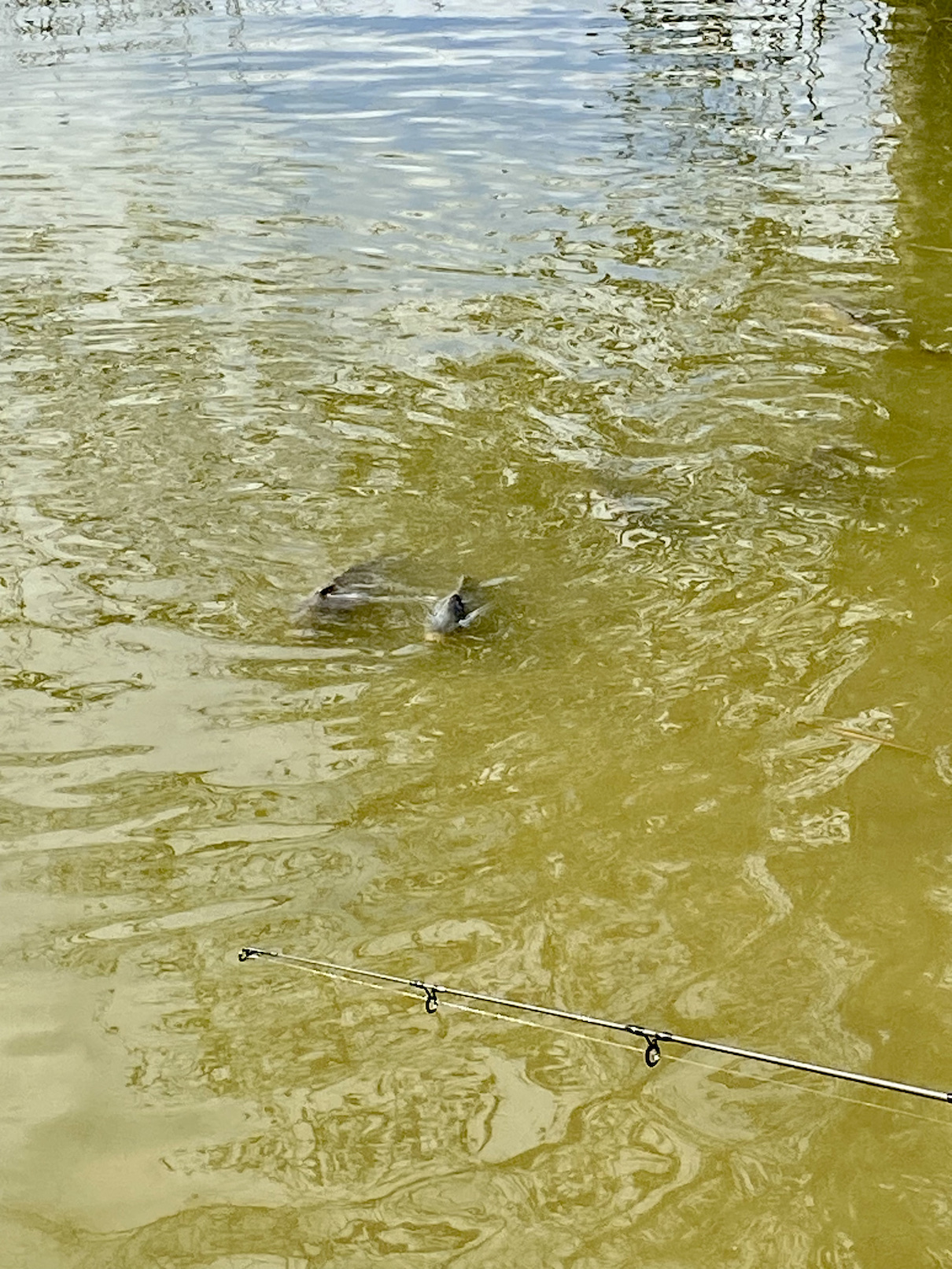
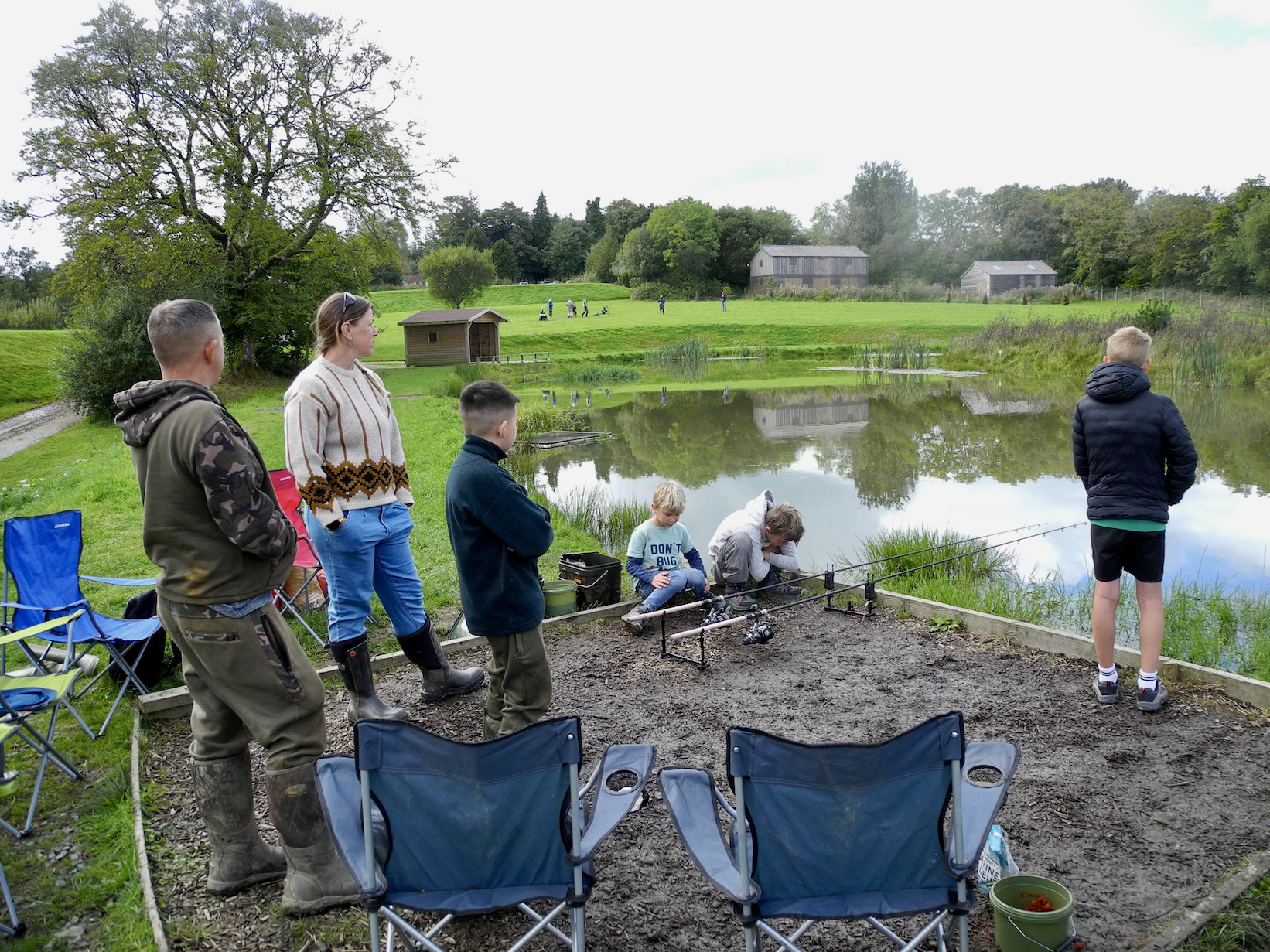
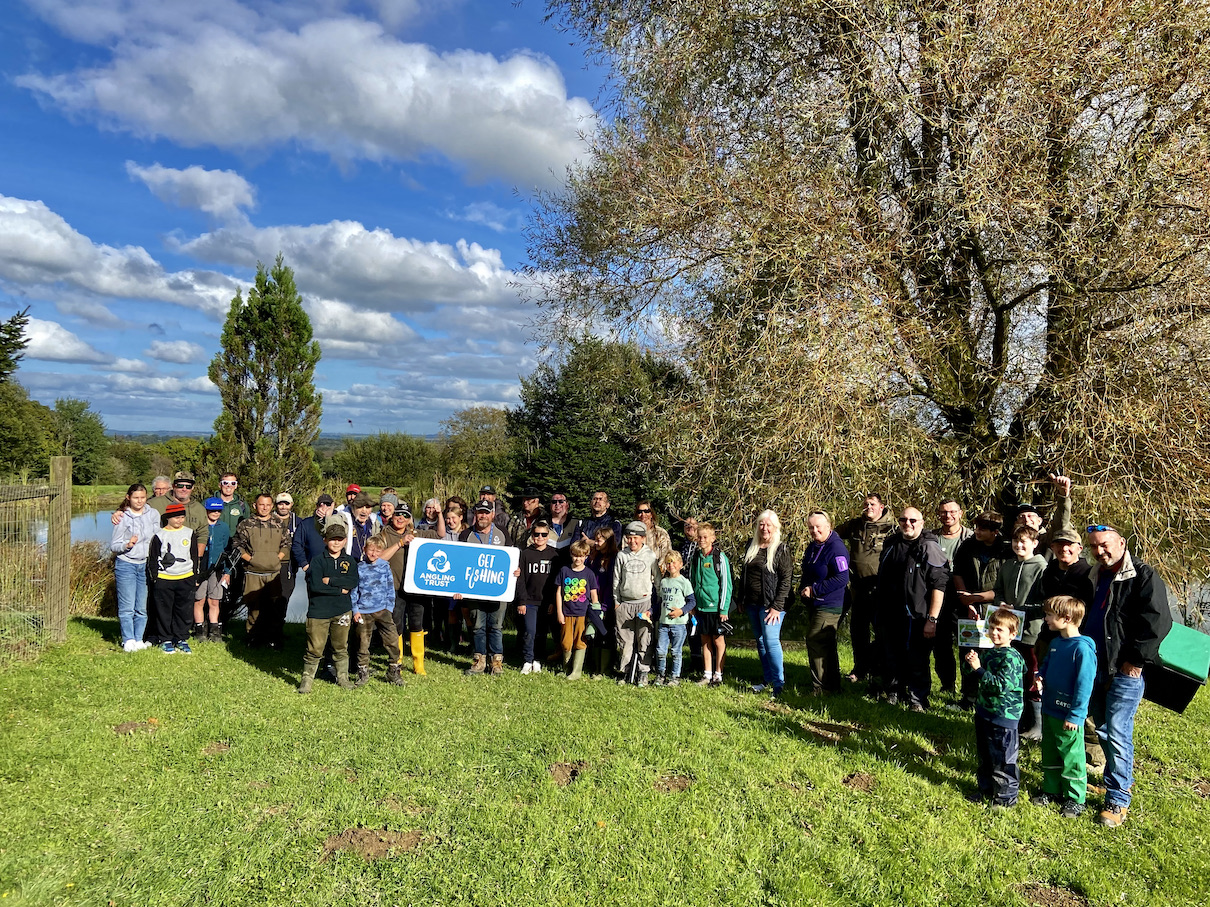


The Angling Trust are offering posts for paid surveyors for the Catchwise project if interested please click the link
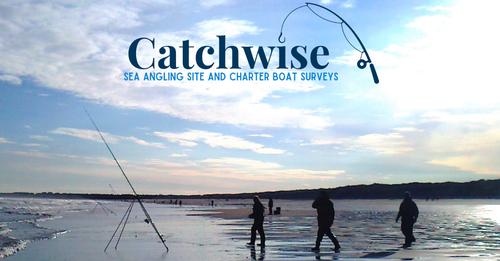
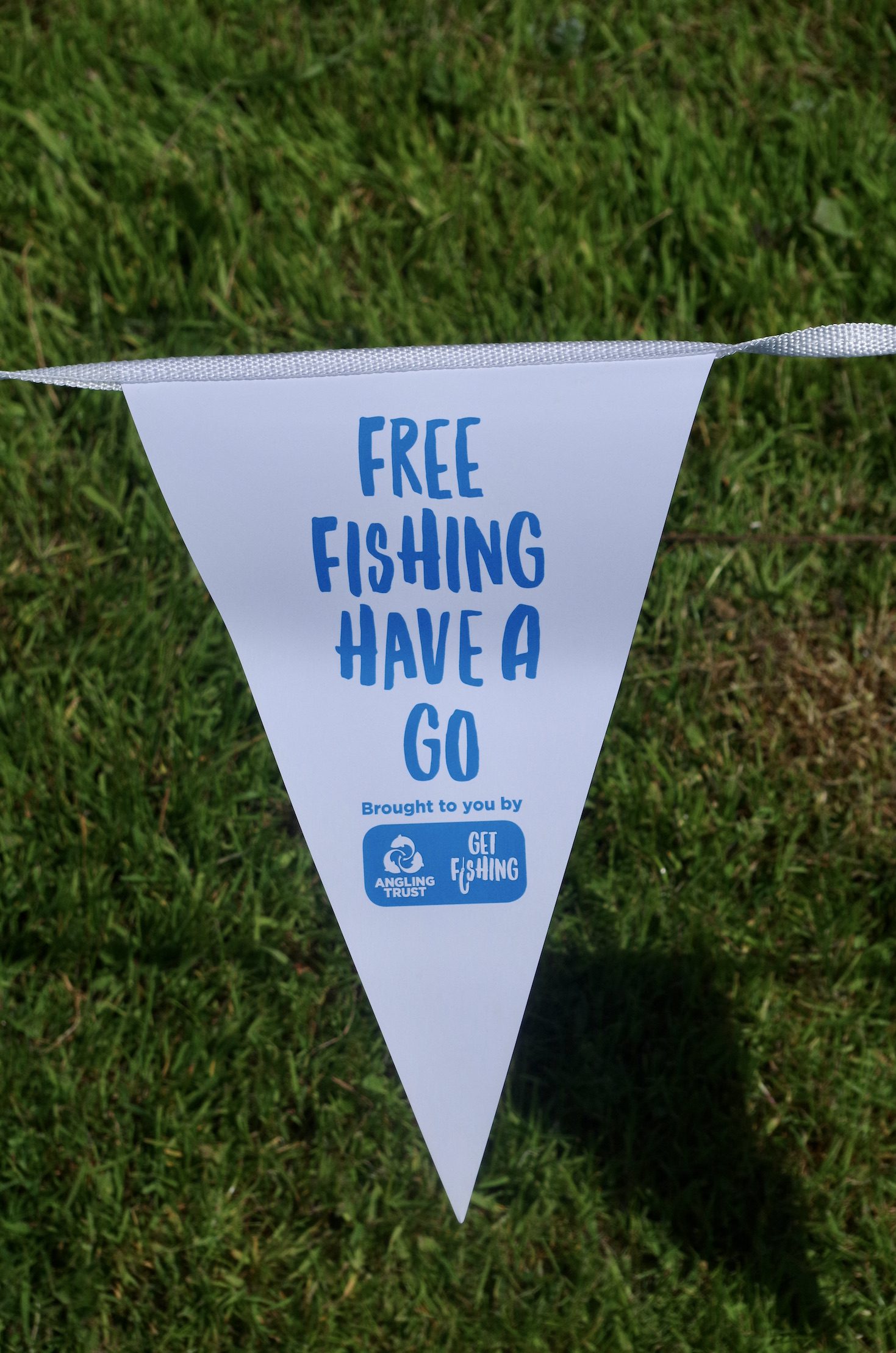
Spring into Fishing – Get into fishing this April, May and June with FREE fishing from the Angling Trust
The Angling Trust’s Spring into Fishing campaign returns for a fourth year with FREE fishing sessions to re-awaken your love of the outdoors
Come and Spring into Fishing at free, fun, outdoor activity events for families around the country that are the perfect way to discover the wonderful world of angling. Everybody is welcome, to come and try fishing – whatever your age, ability or experience level.
Never been fishing before? No problem – tackle, bait, instruction and info on fishing clubs and places to go are all included for everyone at Spring into Fishing events.
Already a beginner? Great – come back and continue your introduction to angling, refresh your basic fishing skills this spring and discover some new fishing tips to help progress your angling to the next-level!
Spring into Fishing beginner sessions are quality assured by the Angling Trust to give the best possible experience of fishing to children, families and anybody who wants to find out what you need and where to go fishing. Funded by the Environment Agency and Sport England, Spring into Fishing gives everyone the chance to get outside, try fishing and learn new skills.
Free fishing events like this let you experience first-hand how fun, inexpensive and accessible fishing is, and how it’s good for your wellbeing to get outside next to water and simply tune-in to the peace and quiet of nature.
Spring into Fishing events are happening all over the country from April right through to June at fishing clubs and venues in partnership with friendly, helpful coaches and volunteers who will show you and your children what fishing is all about.
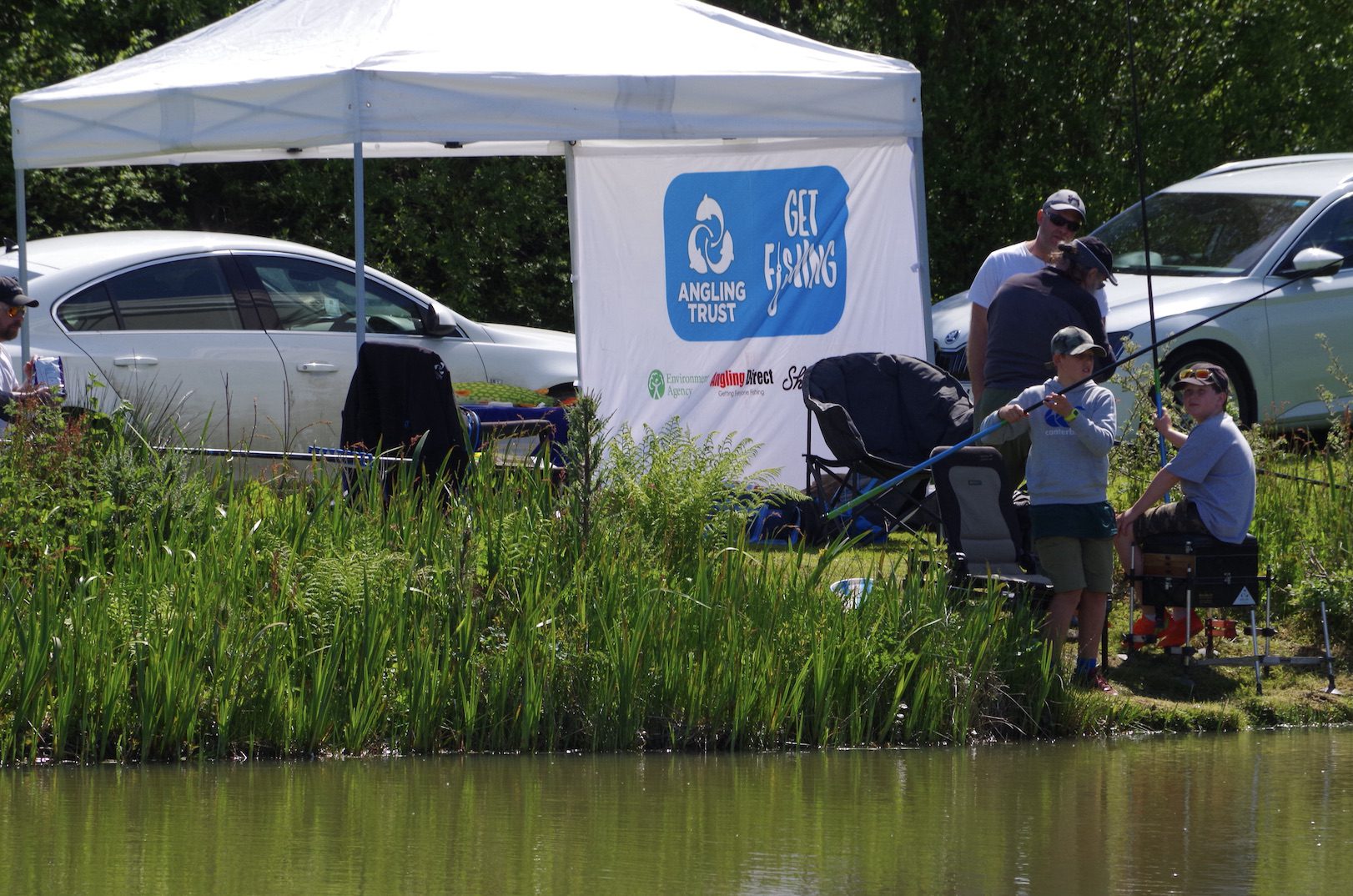
I arrived at Anglers Paradise’s Eldorado Day Ticket complex shortly after the start of the morning session of the 2023 Spring into fishing event. It was a perfect late Spring morning with warm sunshine and a gentle breeze. Wispy white high clouds drifted across the blue sky with the water of the mixed general lake reflecting the lush green surrounds of the flag Iris and bankside trees.
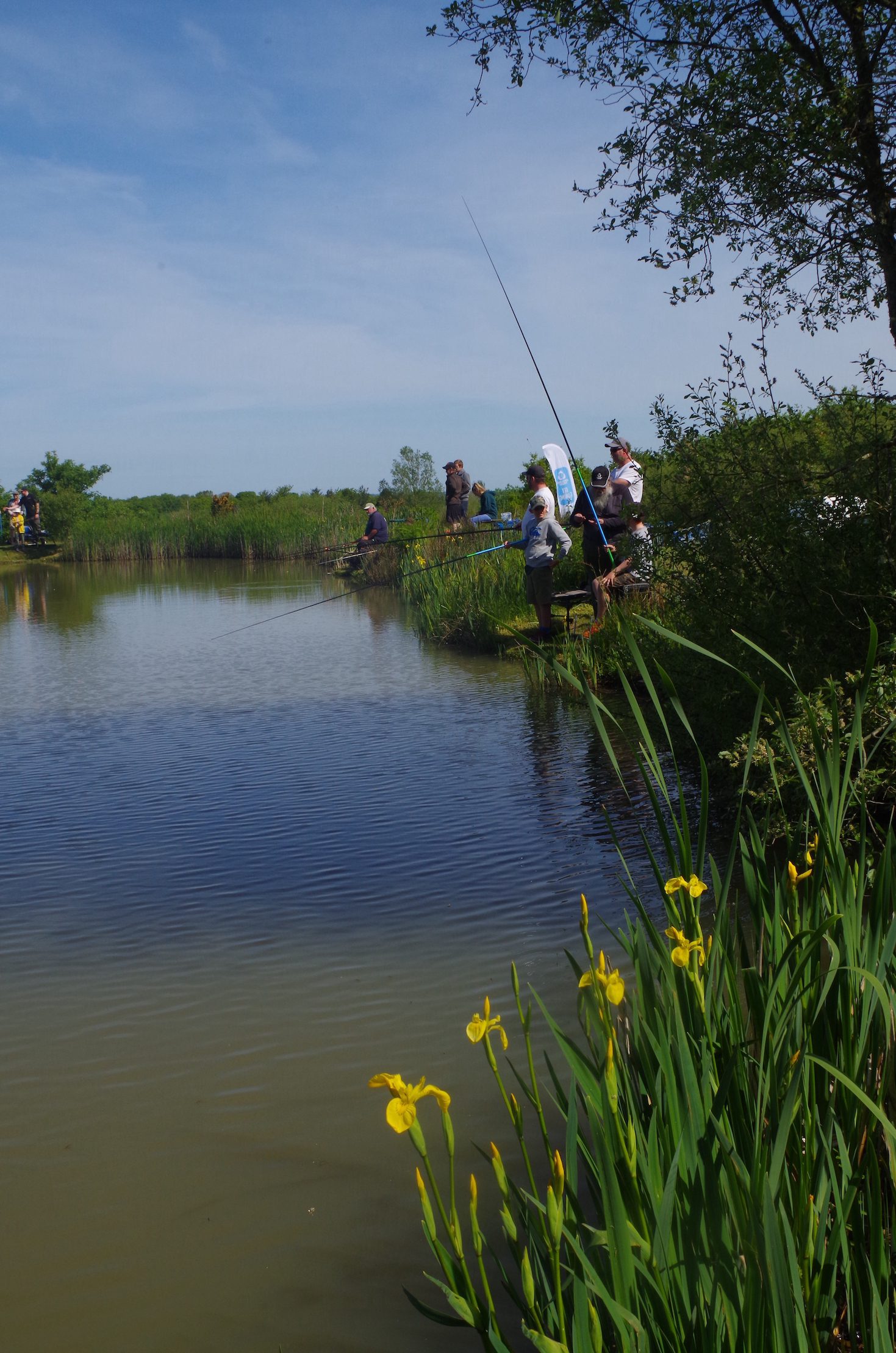
The vibrancy of the Devon countryside in late May and early June is certainly to be savoured. The lake was surrounded by families sharing in an introduction to the joys and tribulations of fishing. The coaches were certainly in for a busy day as they explained the setting up of tackle to the eager pupils. The brightly coloured wriggling maggots always fascinate children who are often eager to touch and feel the writhing mass within the bait tub.
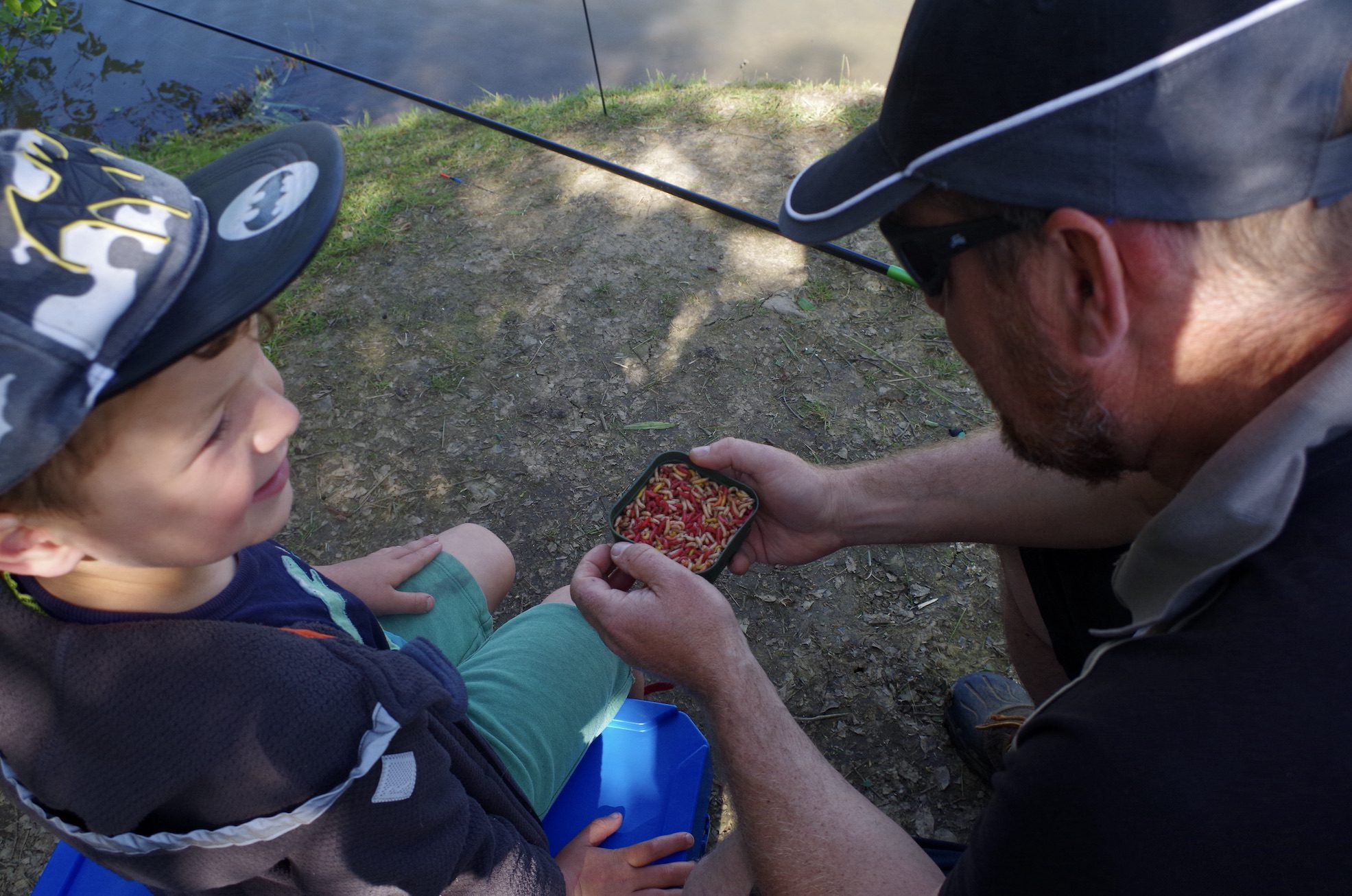
The coaches set up a selection of tackles some putting out self-hooking leger rigs whilst most opted for the simplicity of pole tackles and float. I always think that the simplicity of float fishing is perfect for beginners. A float offers a point of focus; giving delight in its disappearance and buoyant optimism whilst watched.
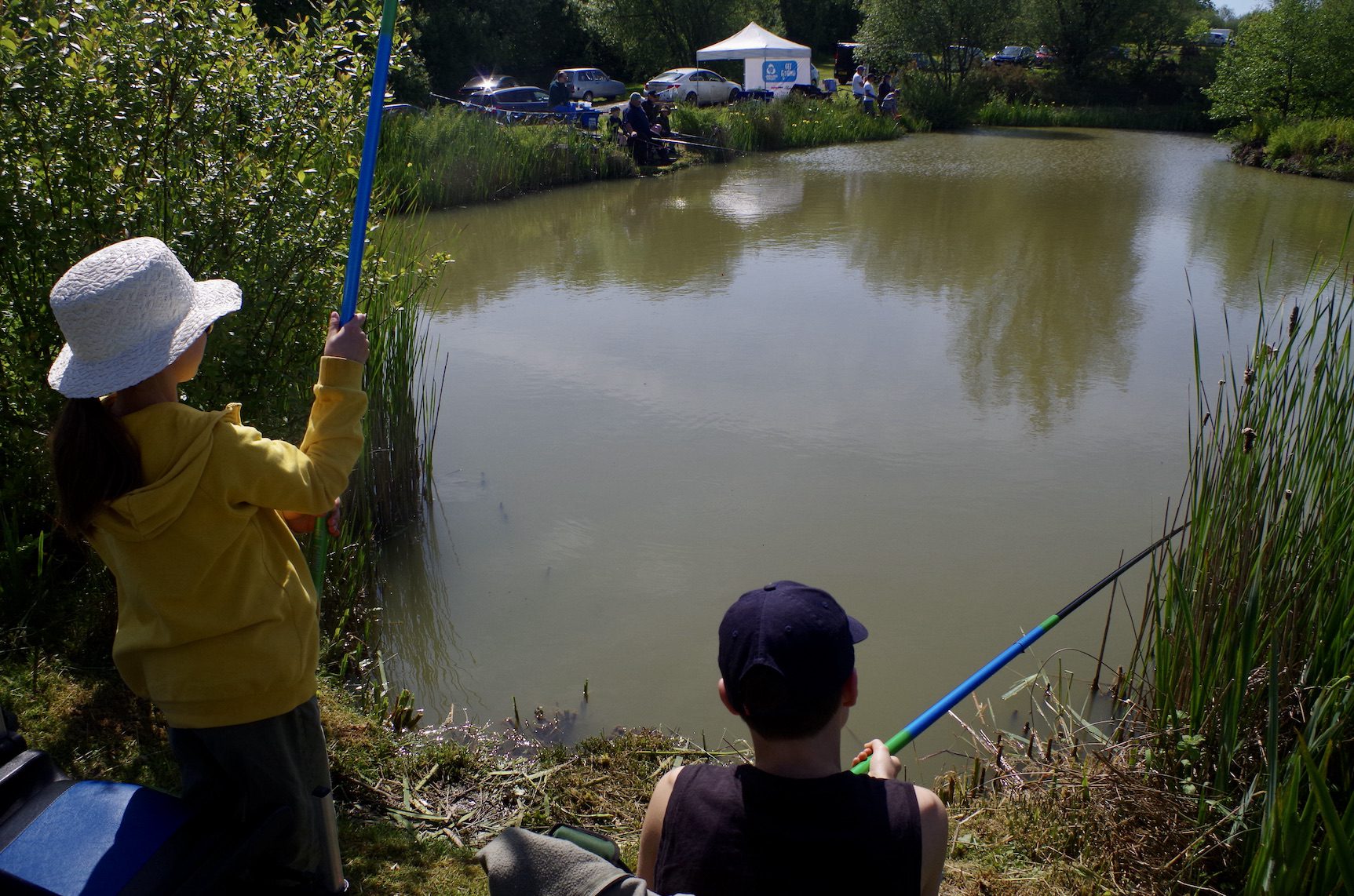
I wandered around the lake with my camera chatting with coaches and pupils whilst trying to capture the essence of the day. It is always a joy to witness success as the fish were lifted from the water their jewelled flanks glistening in the sunshine. Beaming smiles abounded as floats dipped frequently during the morning session.
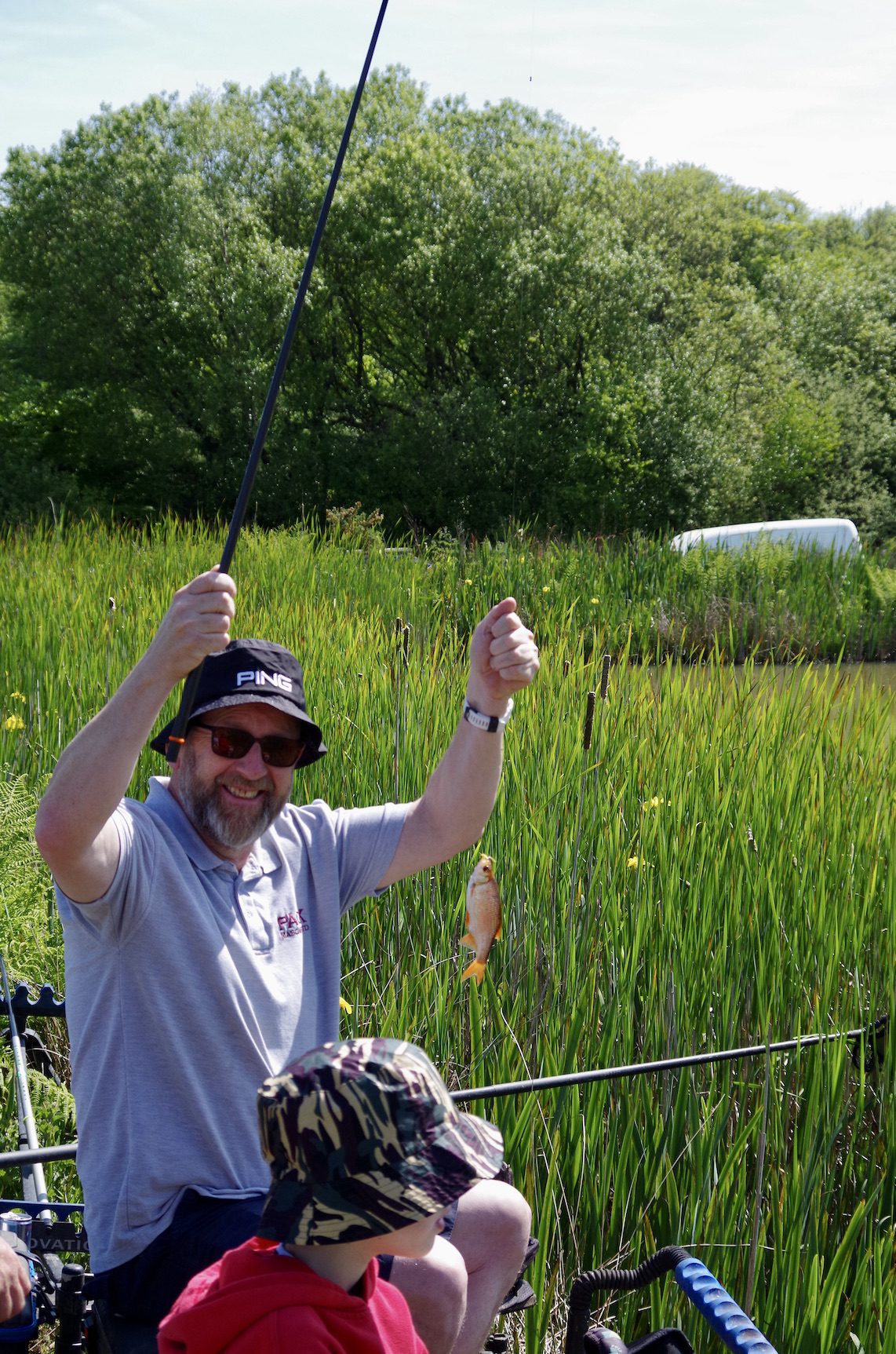
The coaches were kept busy carefully unhooking the fish and explaining the importance of correct handling procedures. The use of unhooking matts, wet hands and correct unhooking tools was explained.
A variety of species were caught including golden rudd, perch, carp and a stunning koi carp of close to 10lb caught by Lewis Jones.
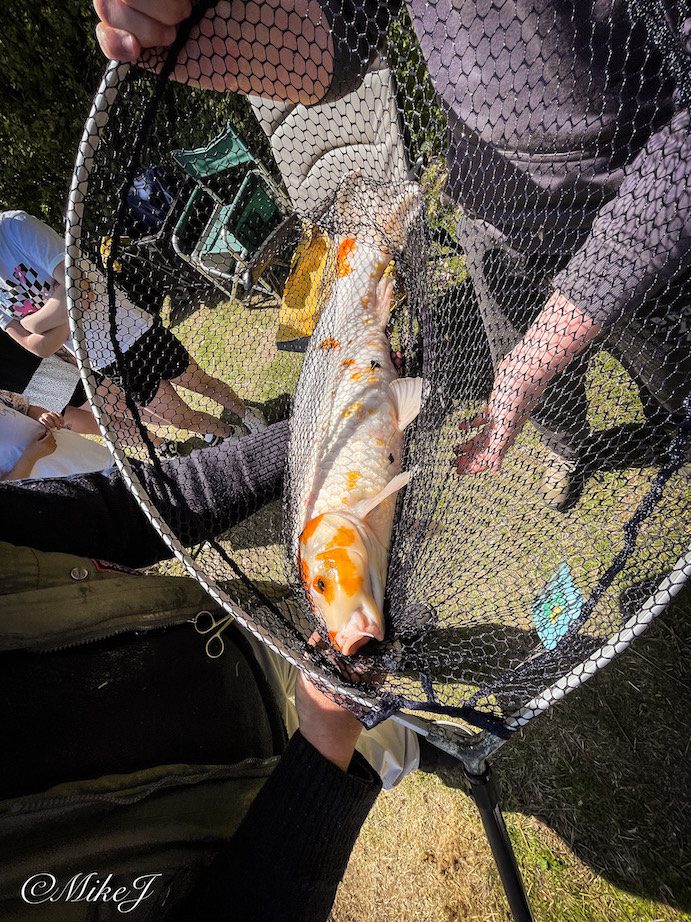
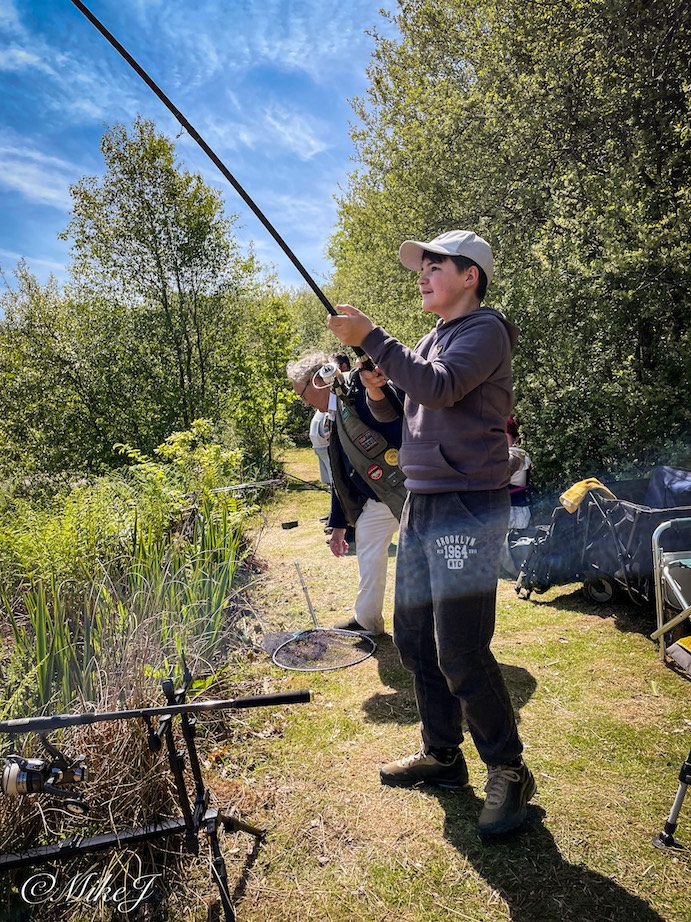
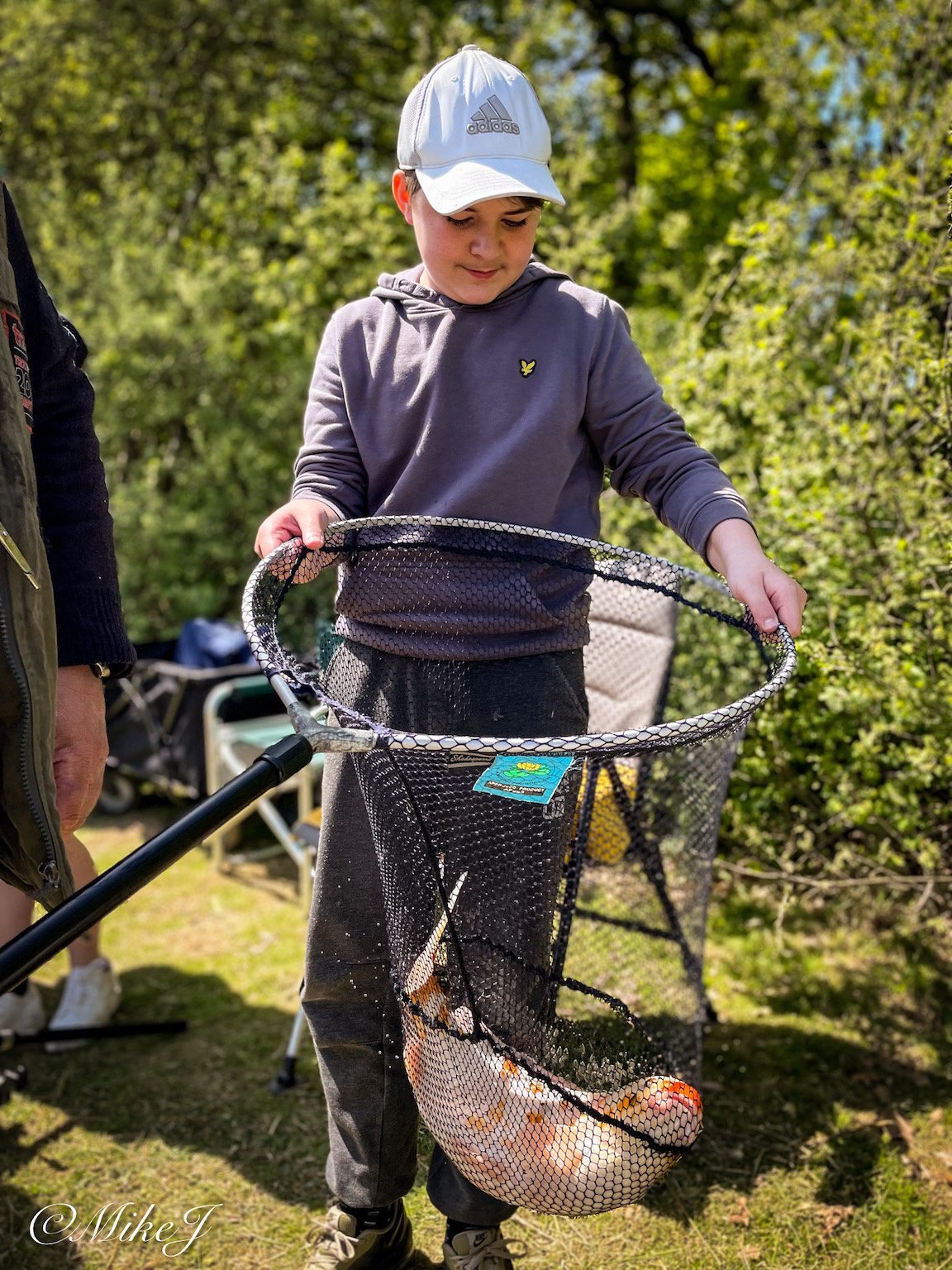
The coaches talked about each fish and pointed out its characteristics, the golden flanks of rudd with scarlet fins, the stripy flanks of perch with their spiky bristling fins and the bronze chain mail flanks of carp.
During my walks around the Lake I caught sight of a bent rod on the cat and carp lake below. I dashed down to witness Paul Hockam land a pleasing catfish. Later in the day his fishing partner Tasha Caunter banked a stunning common carp of 17lb.
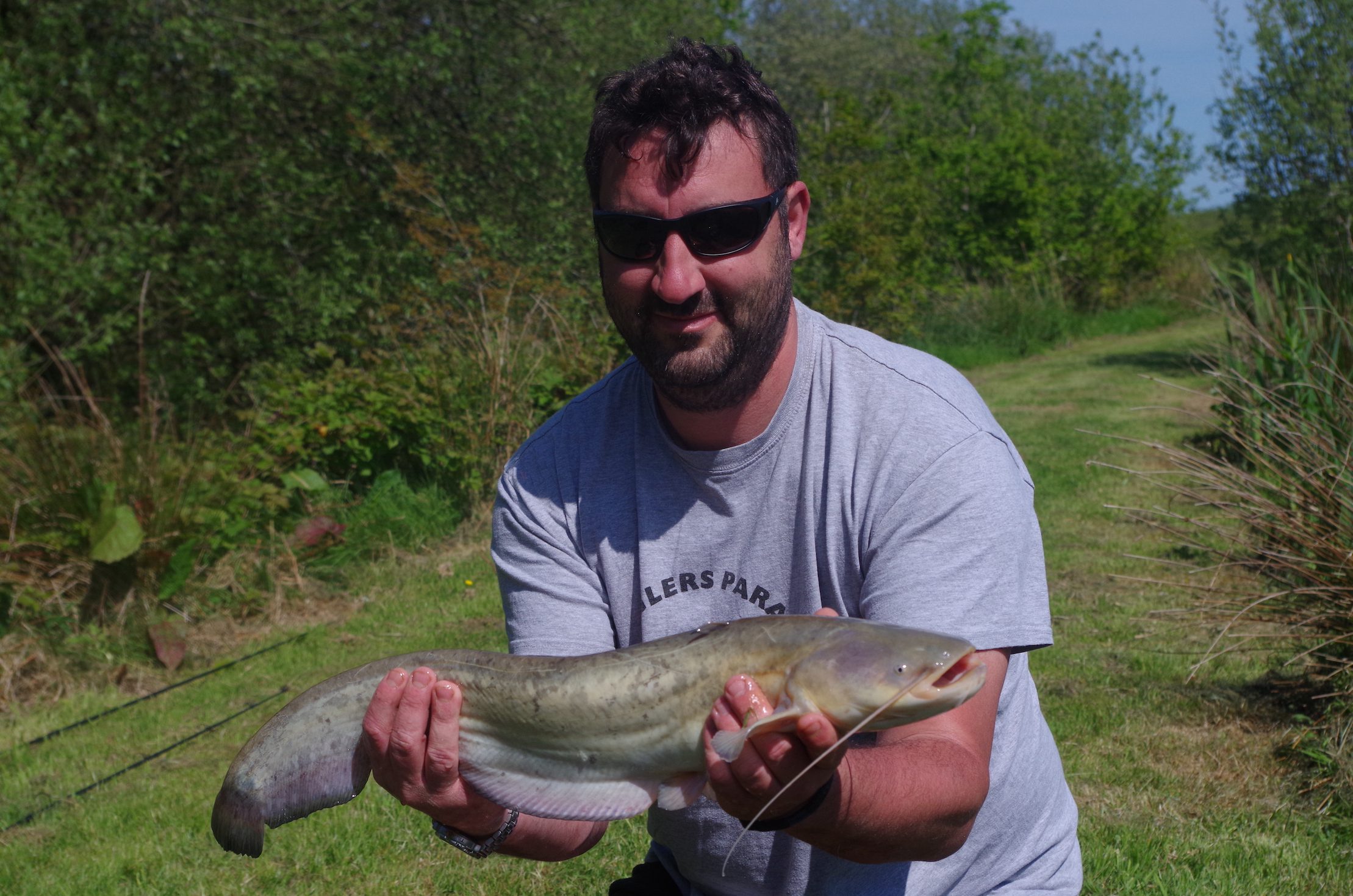
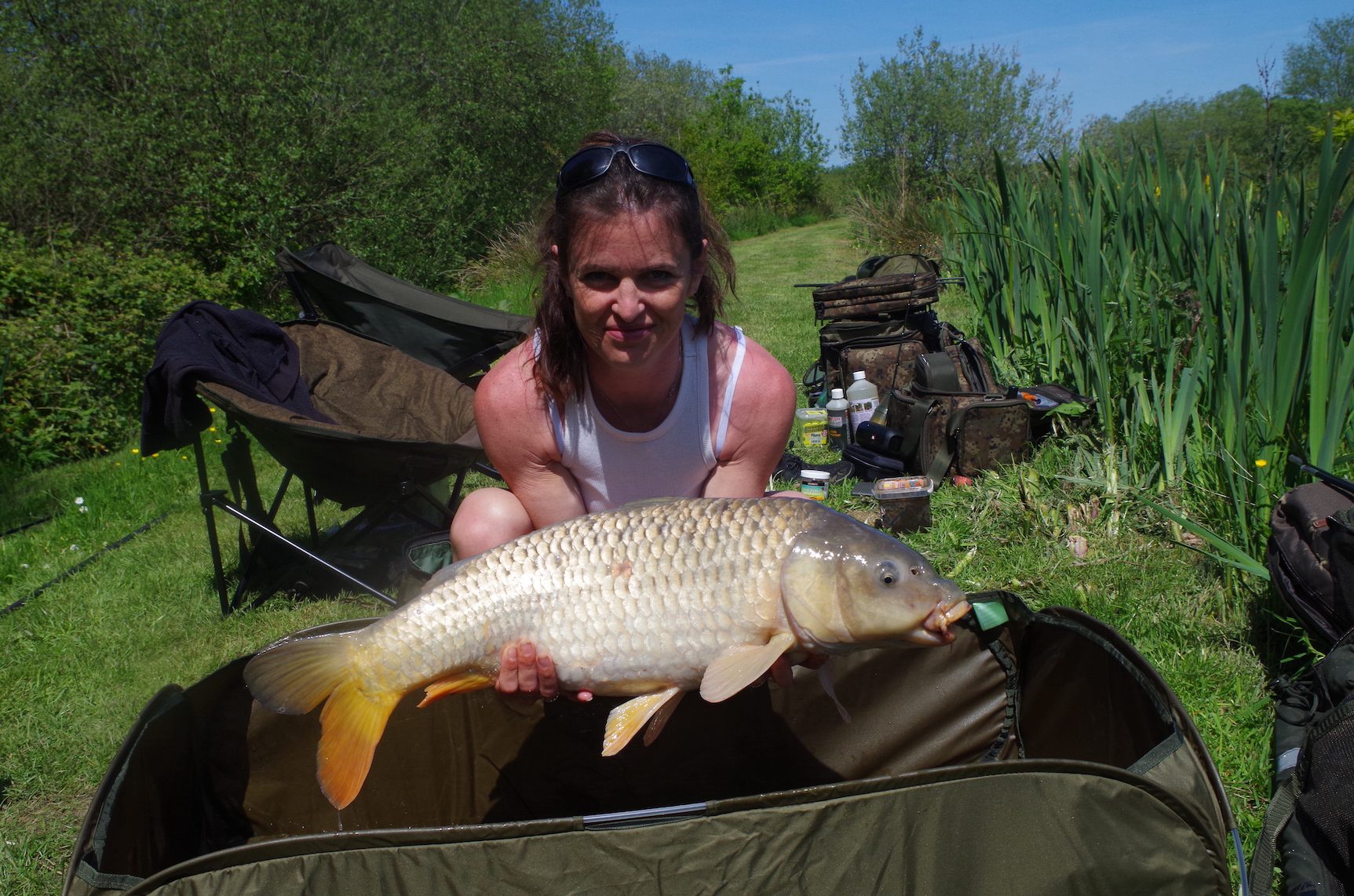
The pupils ranged from families who travelled from across the South West to individual anglers rediscovering the joys of angling. I hoped that some of the young would become hooked by the fascination of angling and follow a journey through life enhanced by days in nature that can nurture mental health. It was also good to share the rediscovery of angling with a man who recalled fishing with his Grandad as a child.
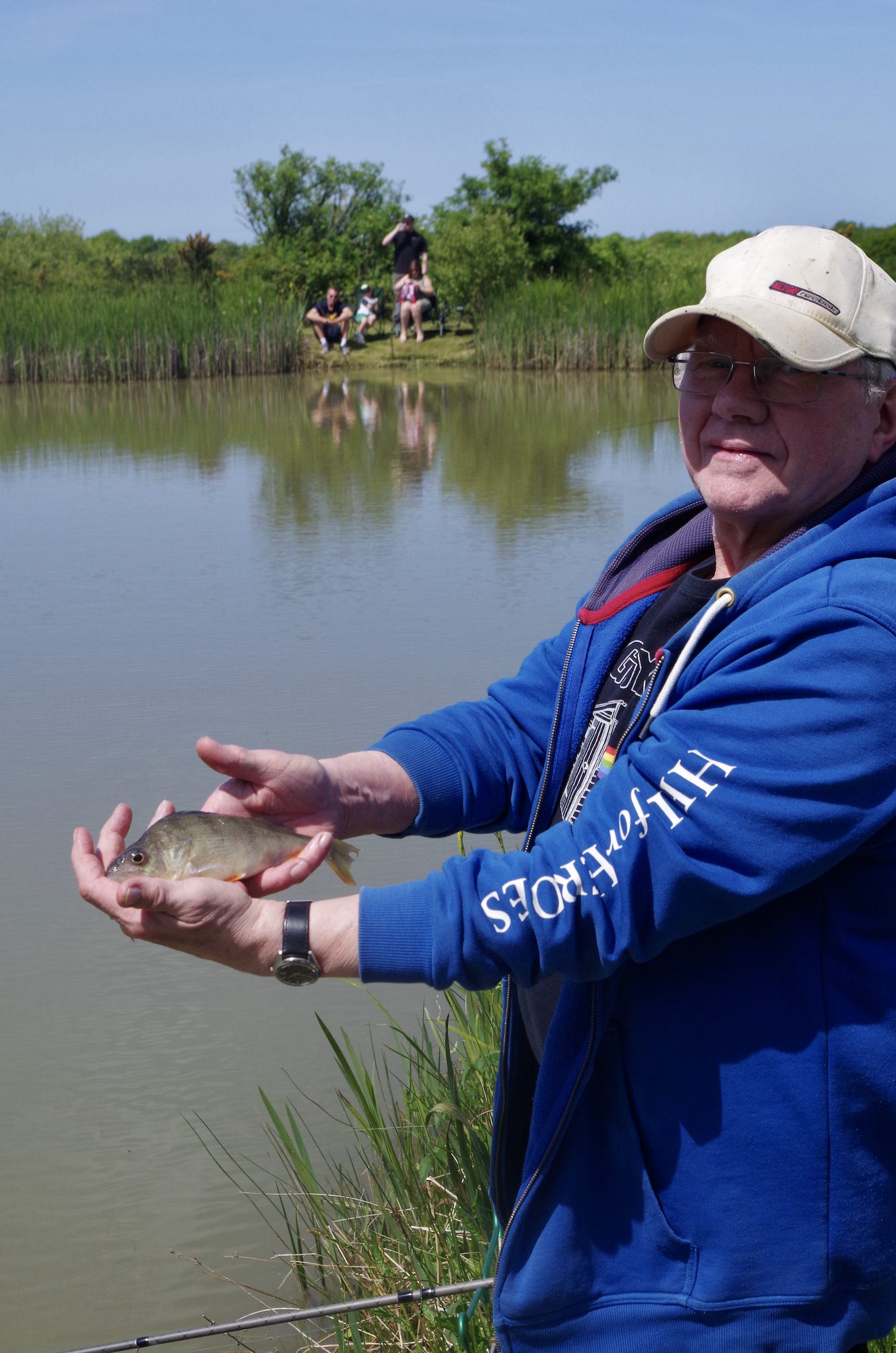
Angling is a passion that can be enjoyed in many different ways. I have commented before how an angling journey can often be plotted with beginners wanting to catch fish, they then wish to catch more fish, bigger fish or maybe more than their fellow angler. At some point they perhaps rediscover the simple of joy of just going fishing.
By the end of the morning session most pupils had caught a fish and hopefully most will want to return to the water’s edge again.
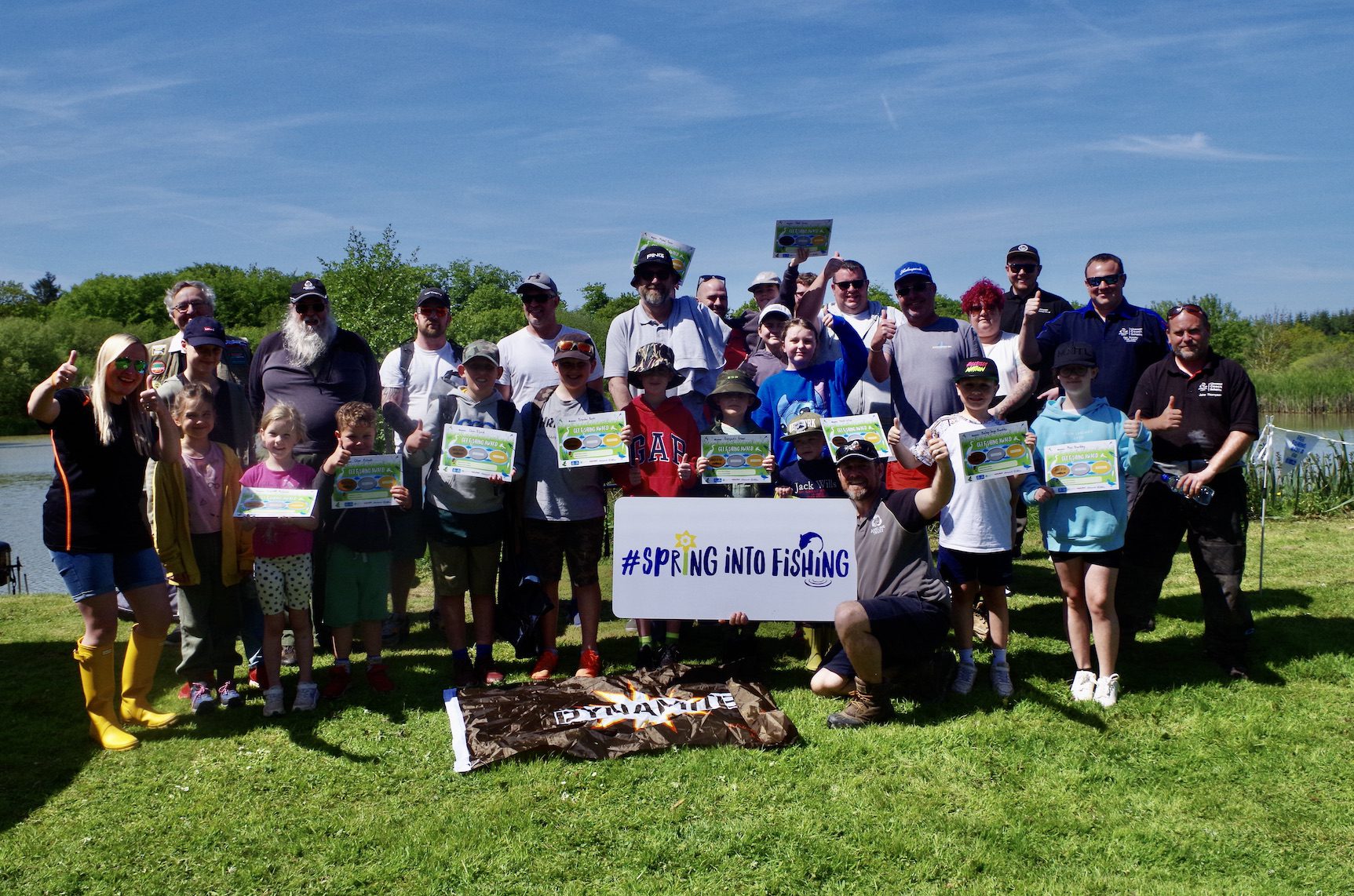
During the short dinner break between the two session’s I chatted with Dean Asplin Angling Development Manager for the Angling Trust. Dean works with the trust and its volunteer coaches to organise these valuable events at participating fisheries across the country.
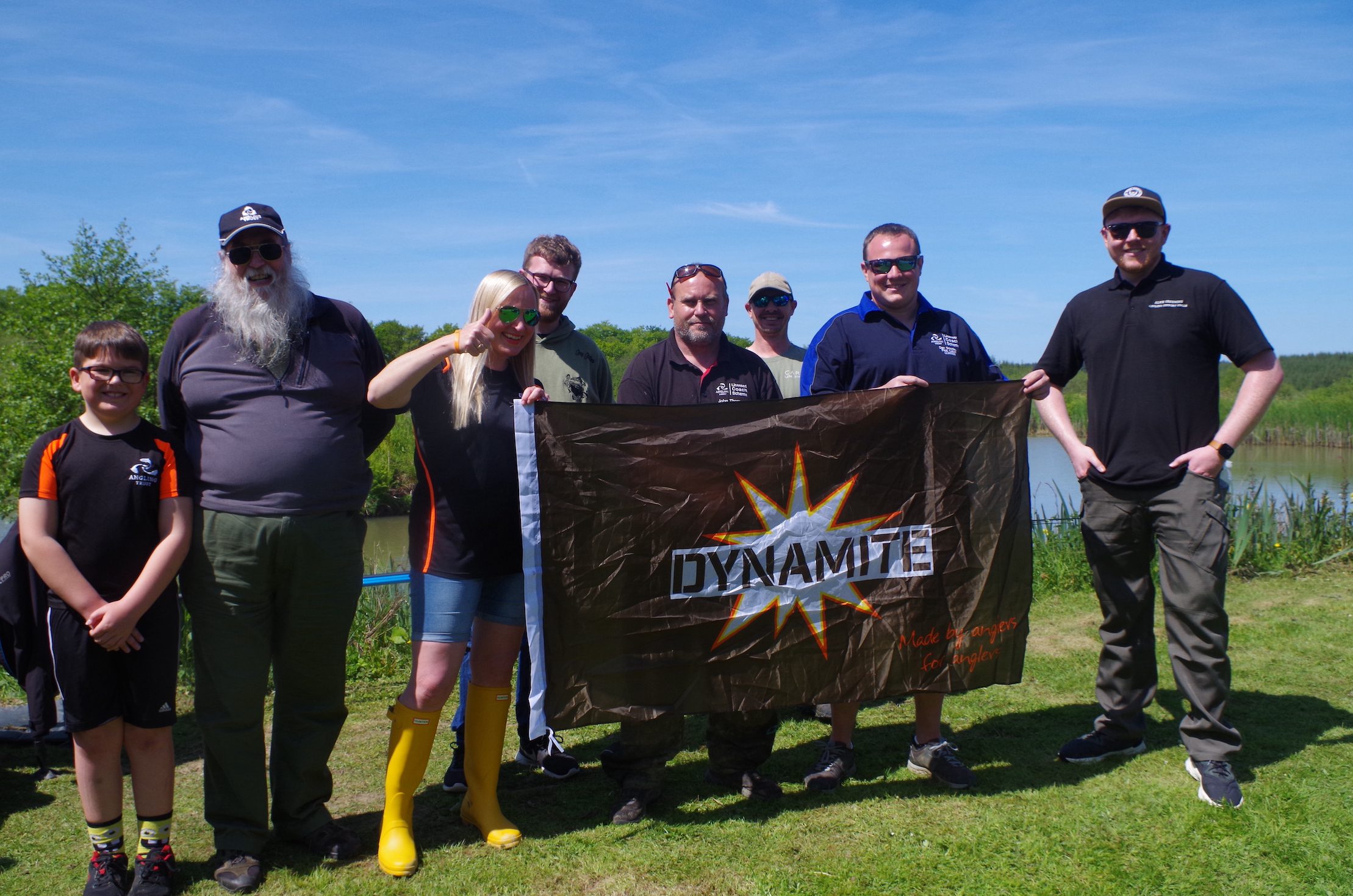
Dean told me that they are very busy at present with many eager to sample fishing. Zenia Gregorek of the Anglers Paradise complex is a passionate supporter of the Angling Trust and thanked Dynamite baits and Shakespeare Tackle for their generous support. Anglers Paradise continues to grow and there are many exciting plans for the future that I will continue to share here on North Devon Angling News
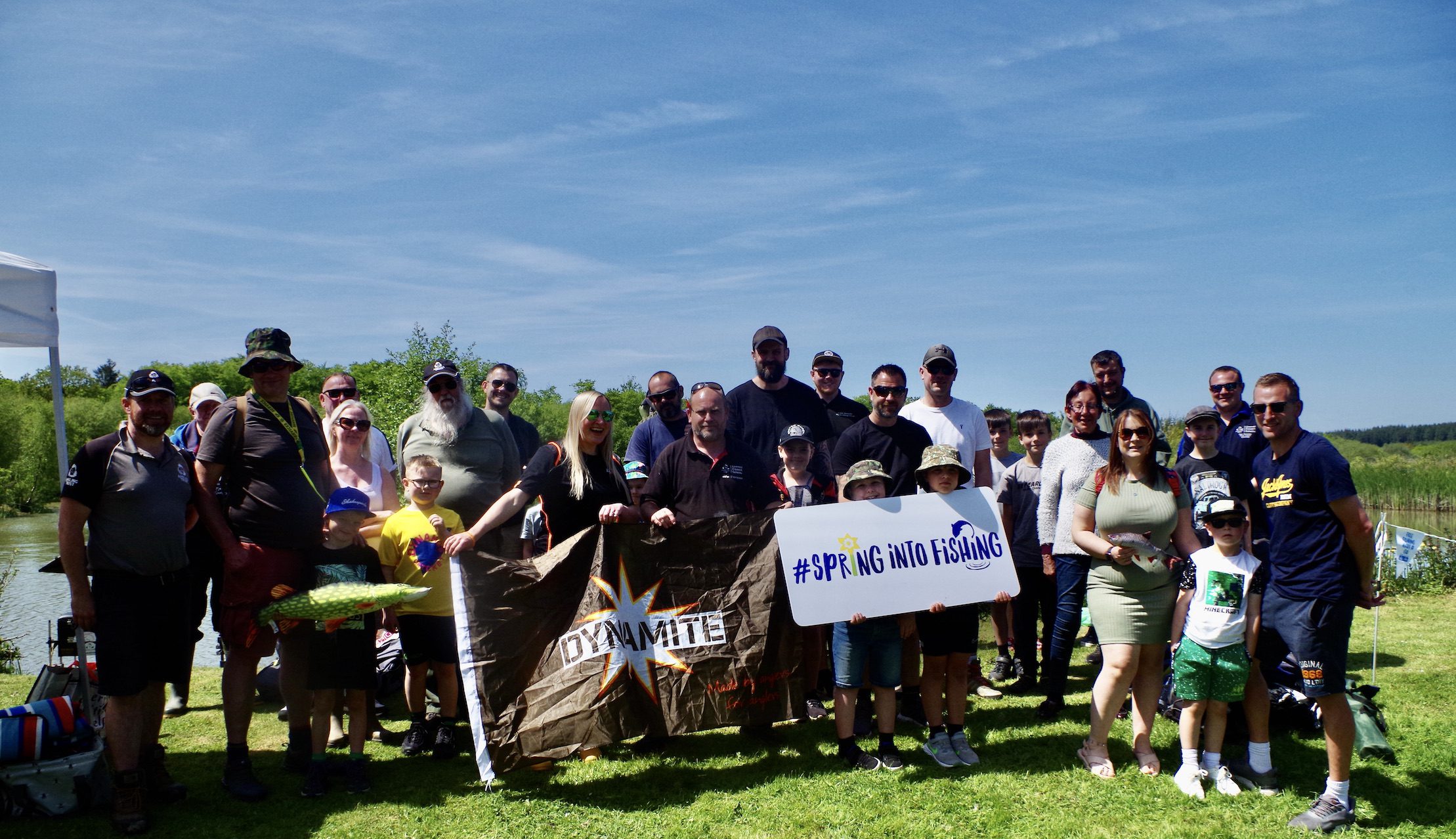
Before the afternoon session commenced I called for a quick group photo as another group of budding anglers converged on the water. After the busy morning the fish seemed less inclined to dine and action was less frantic. With coaches having to explain why it is called fishing and not catching.
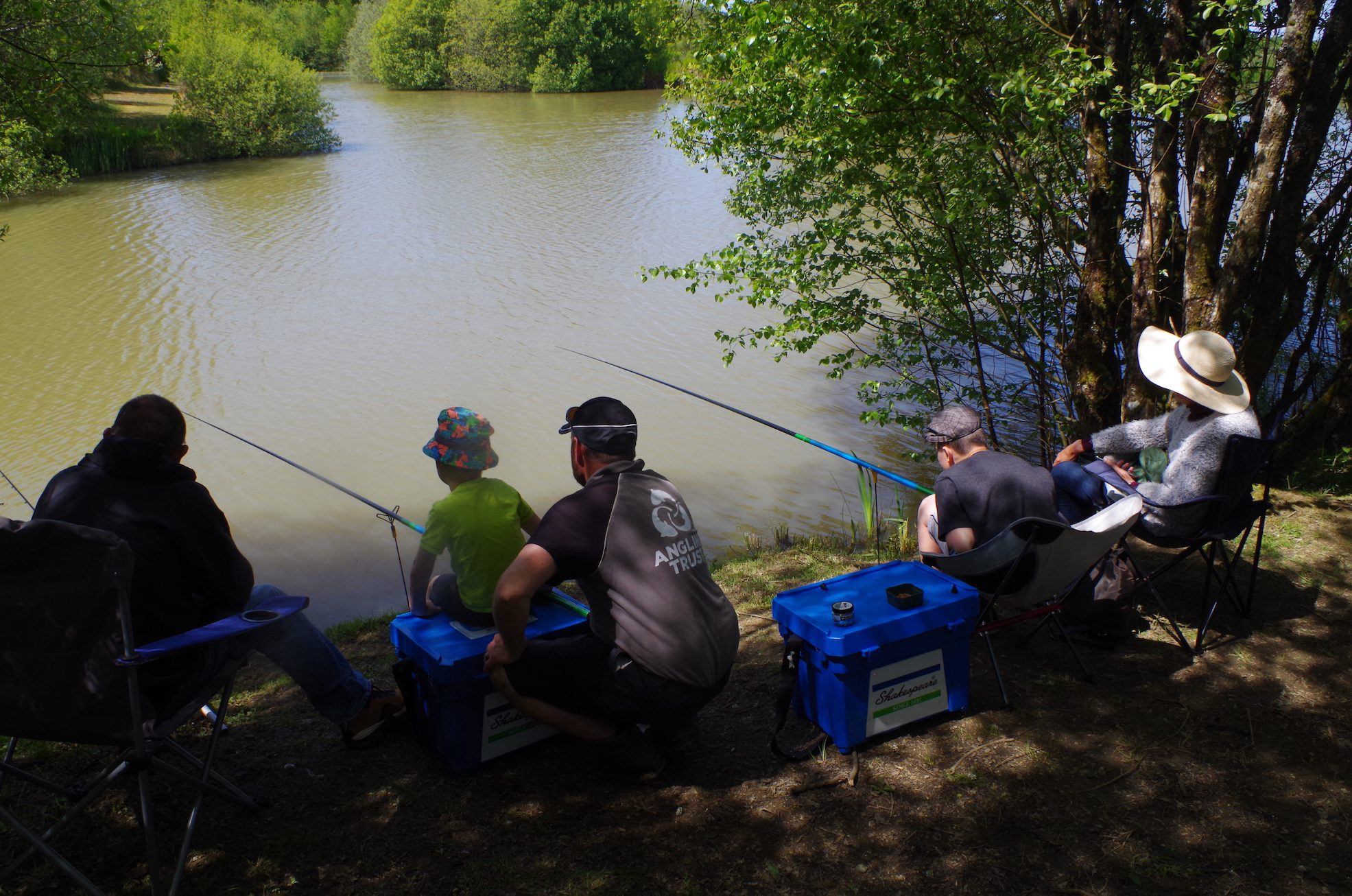
Despite the slower fishing there were plenty of smiling faces as I departed for home with a camera full of the days images.
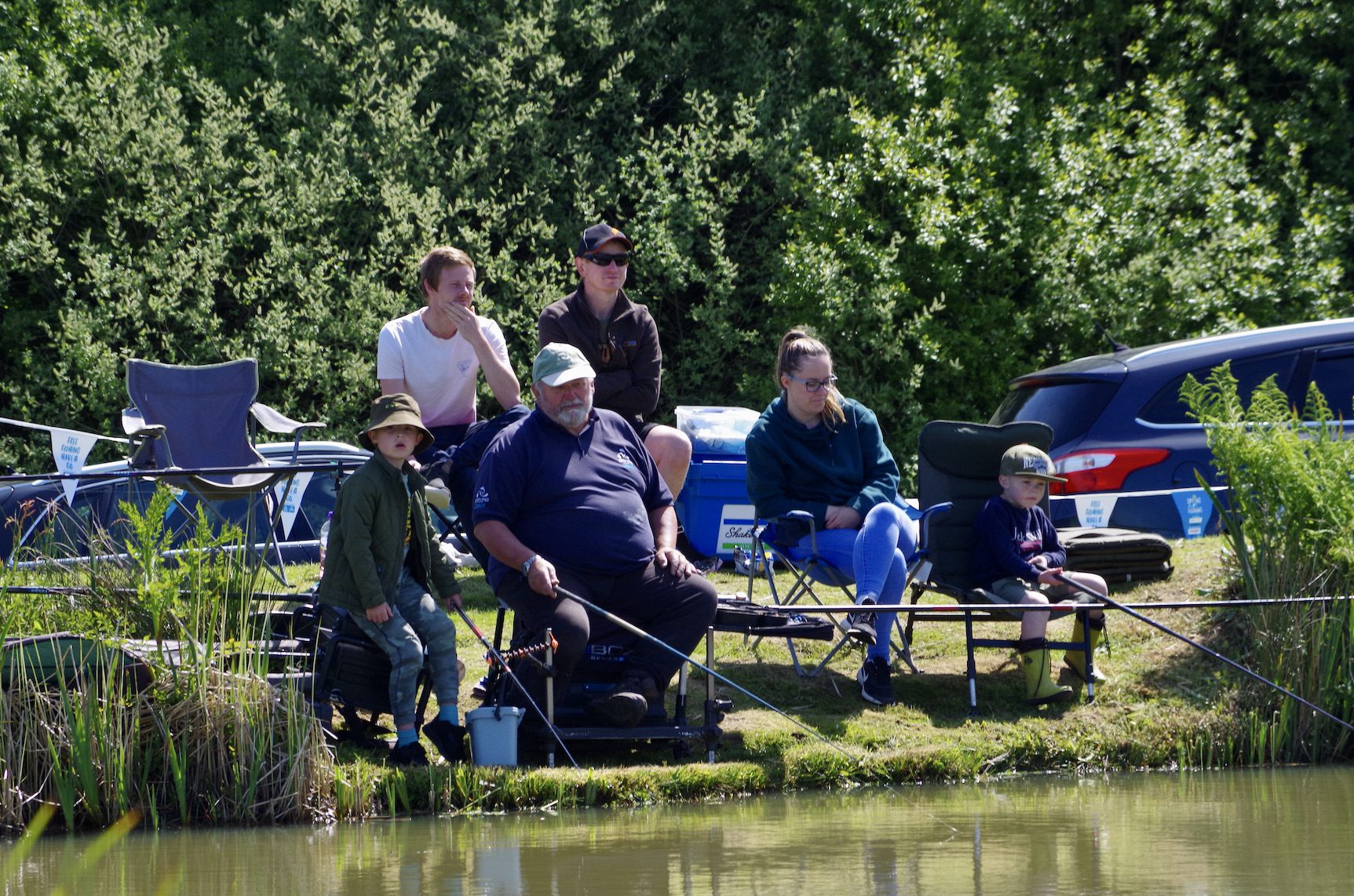
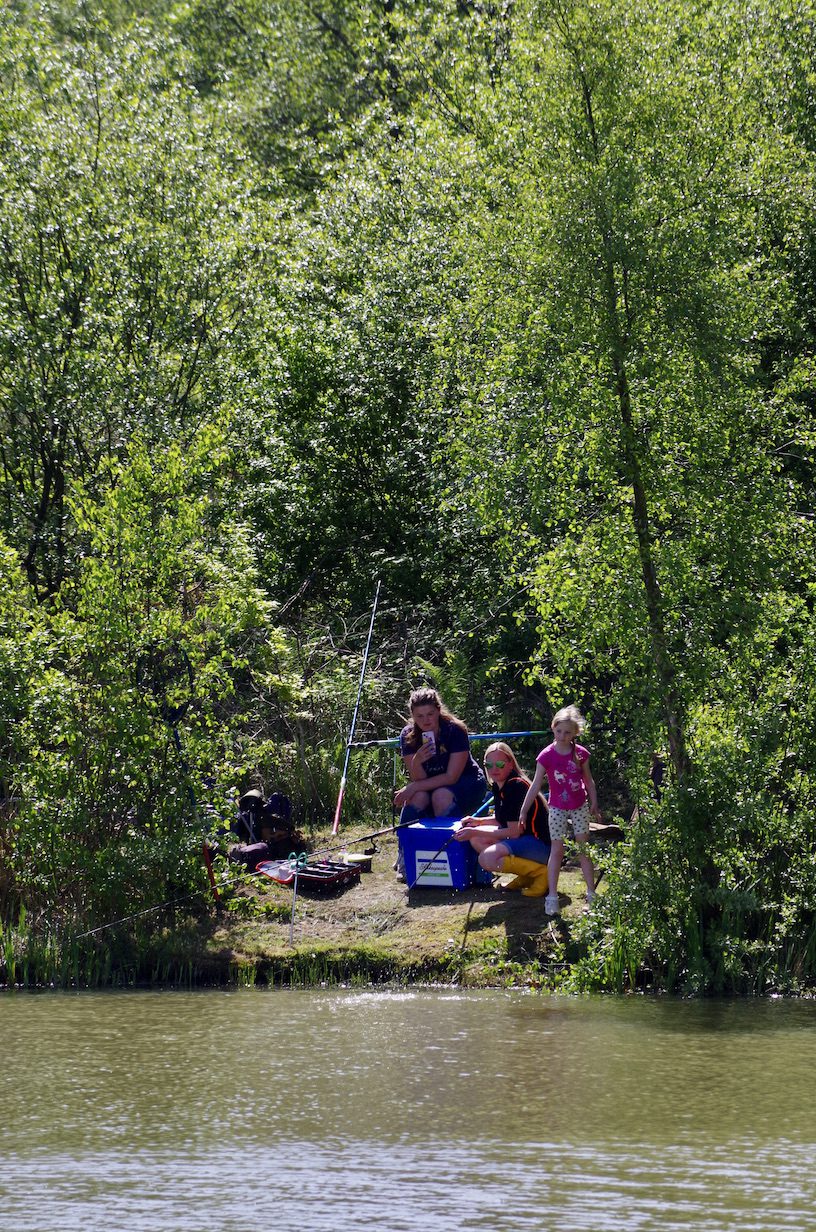
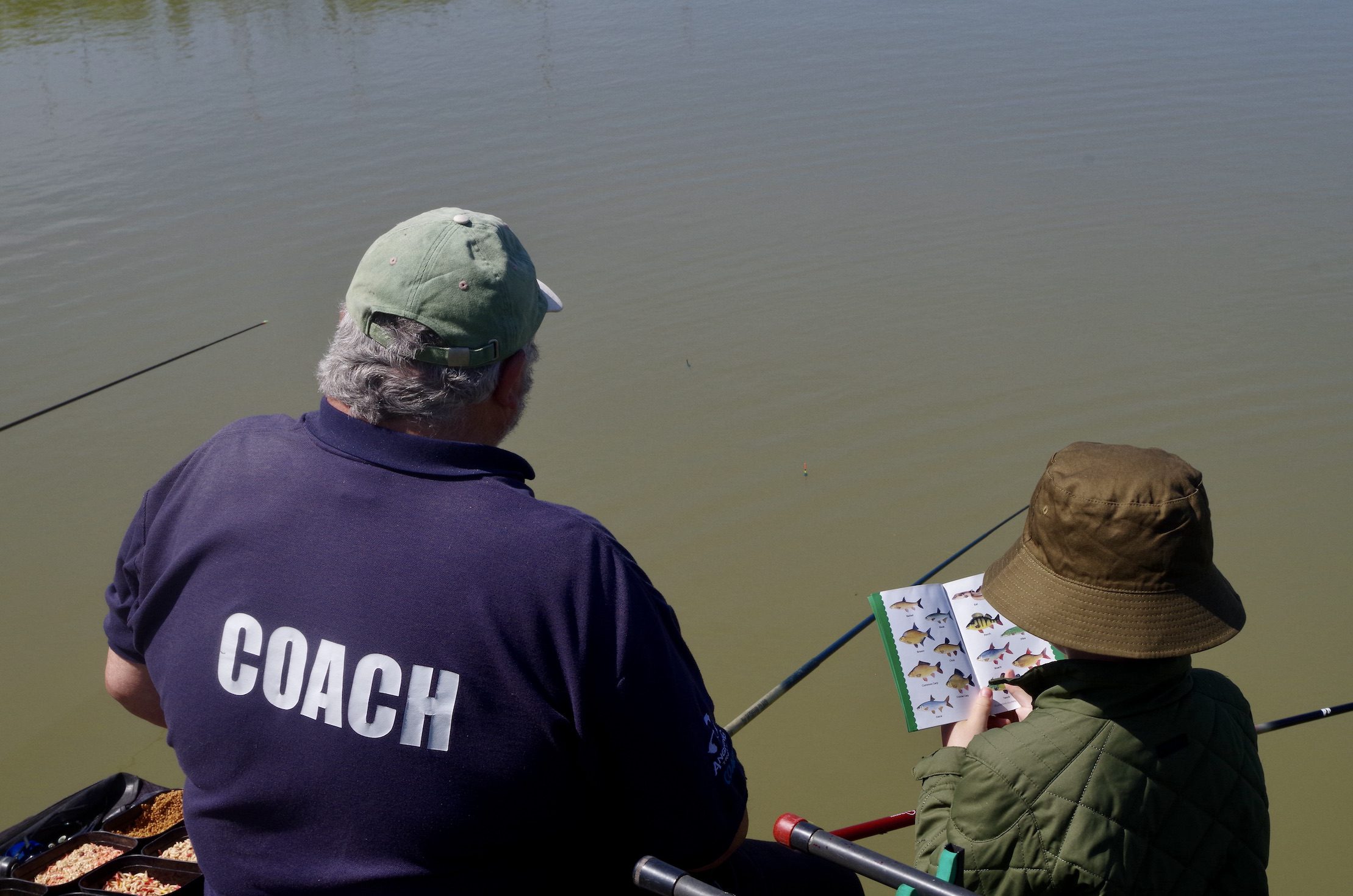
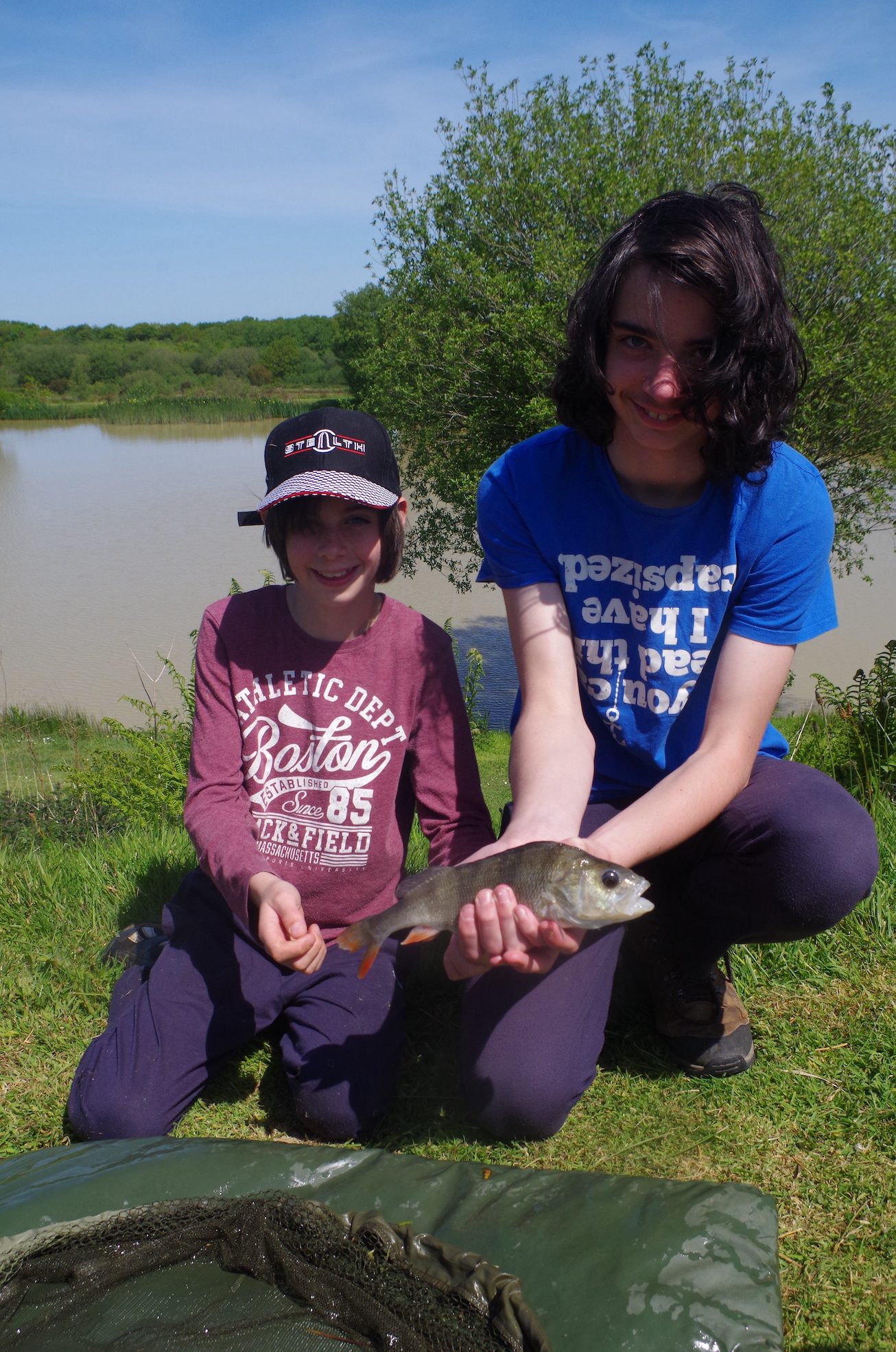
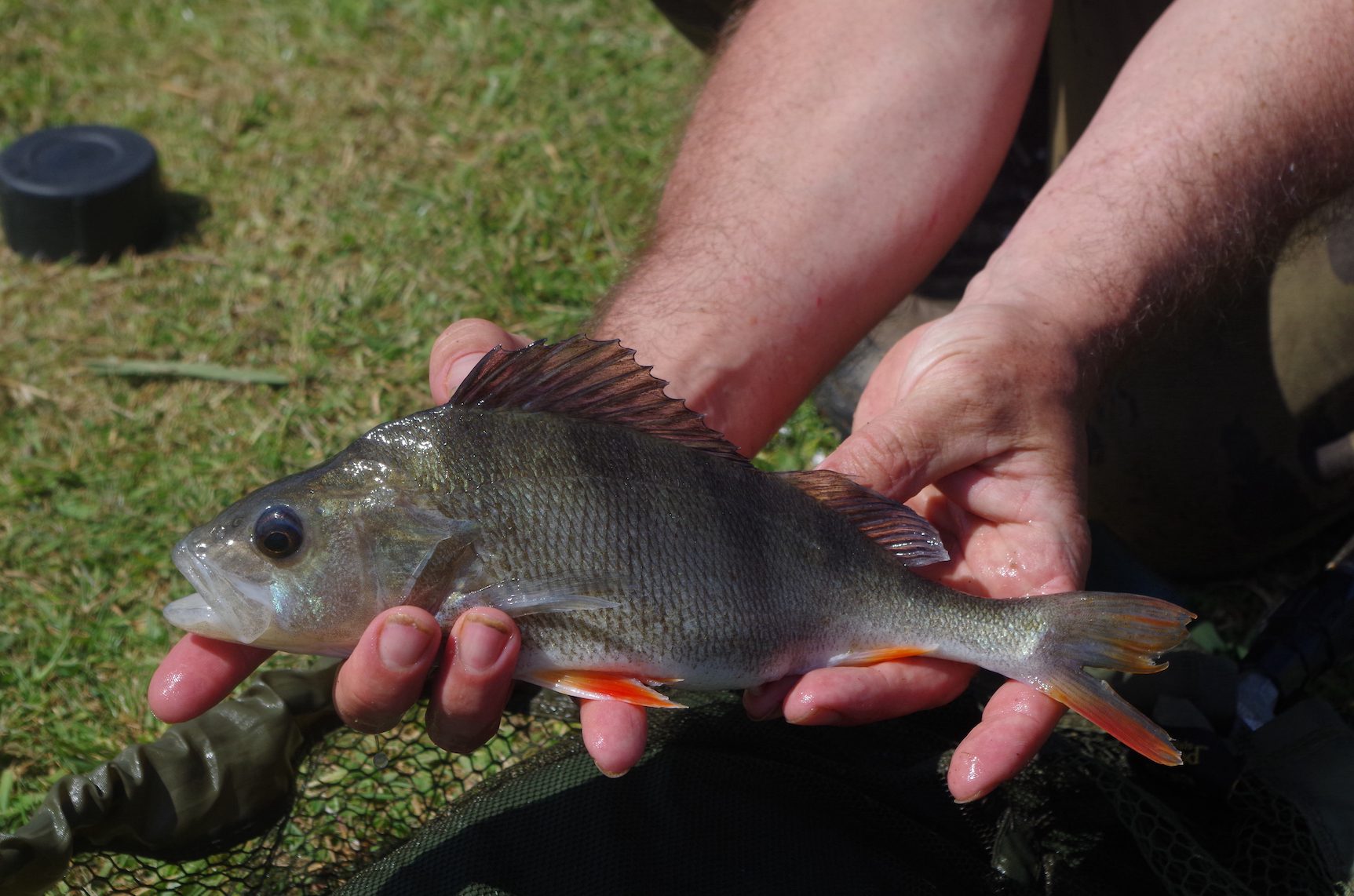
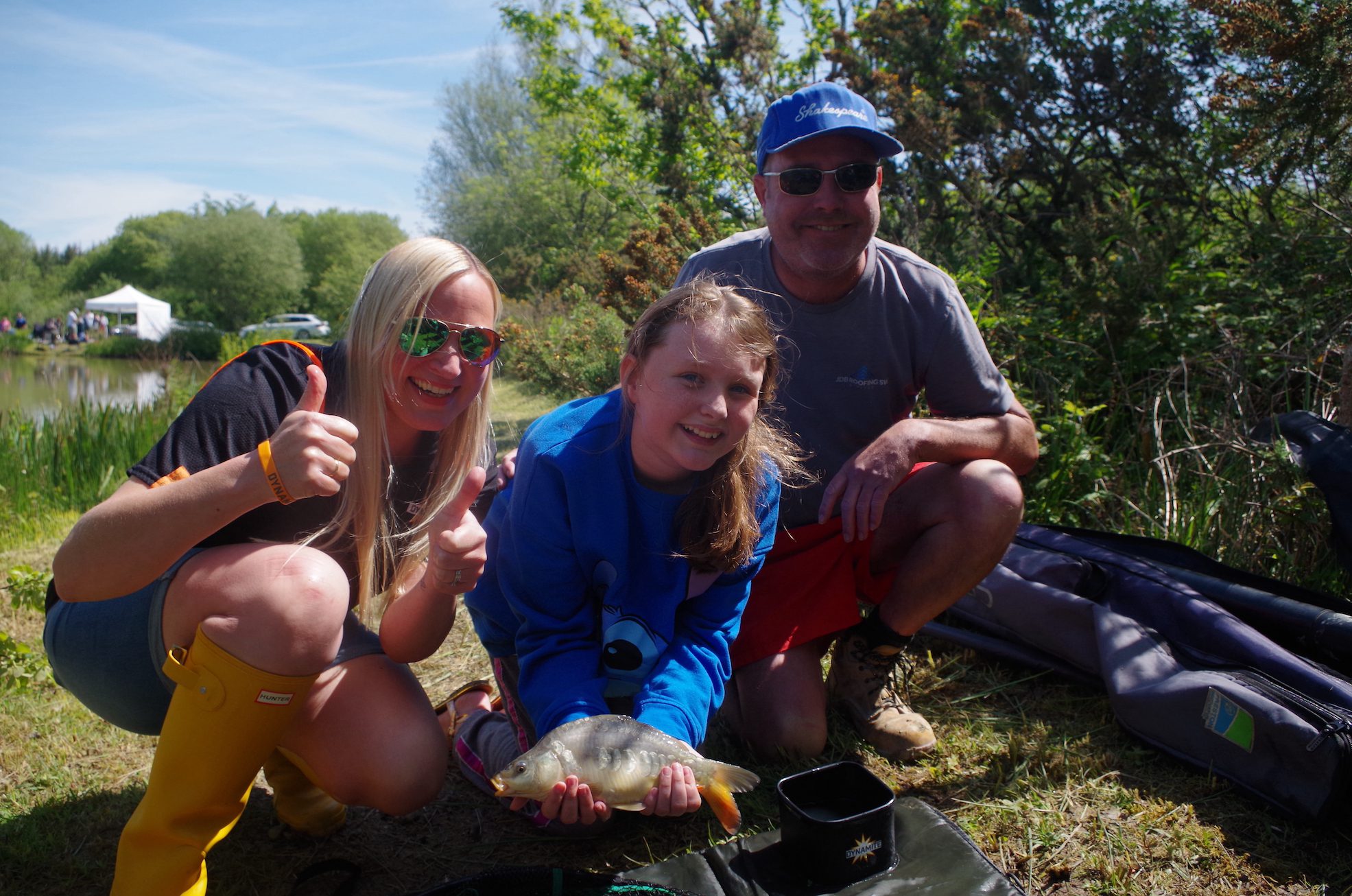
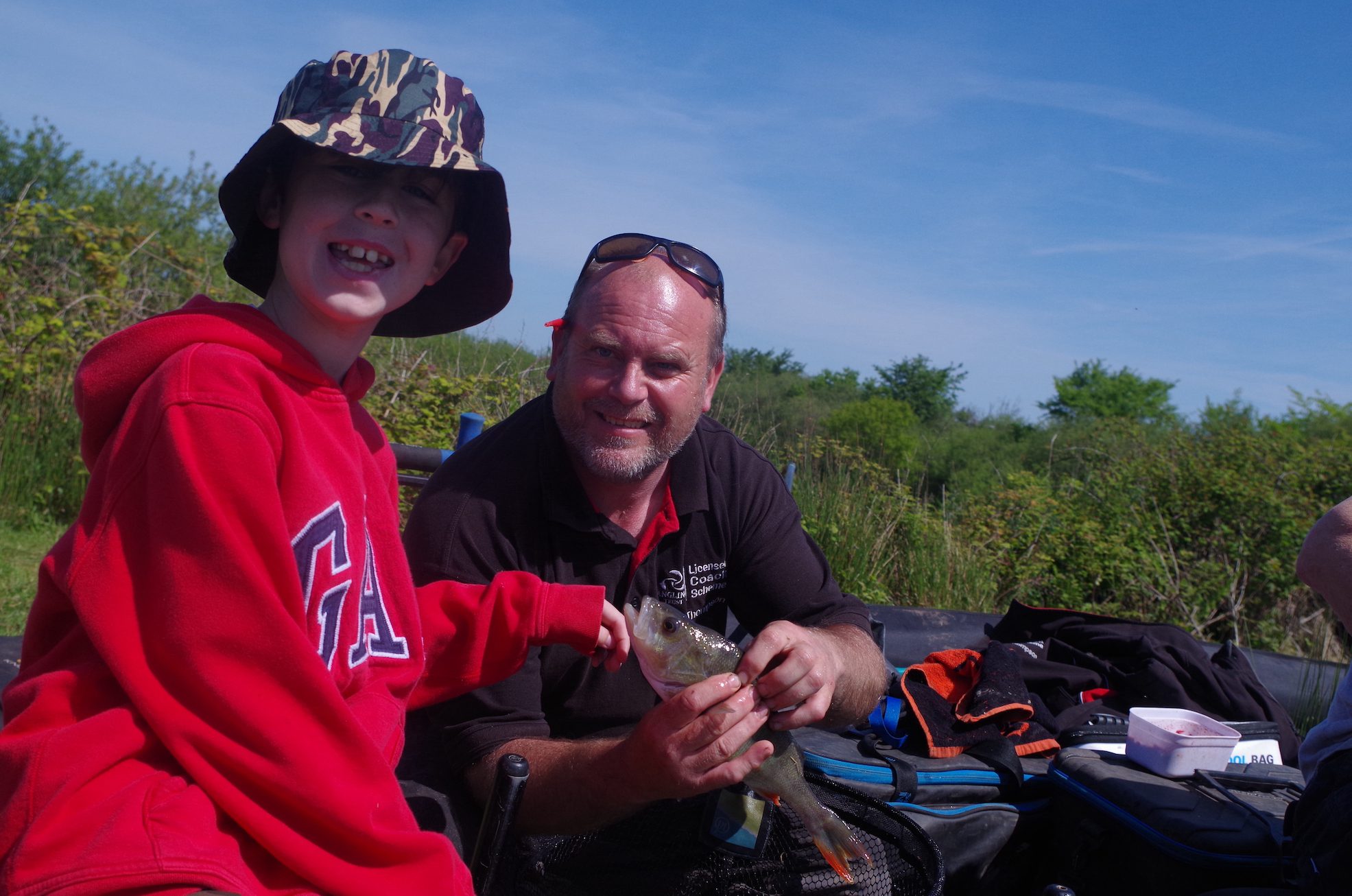
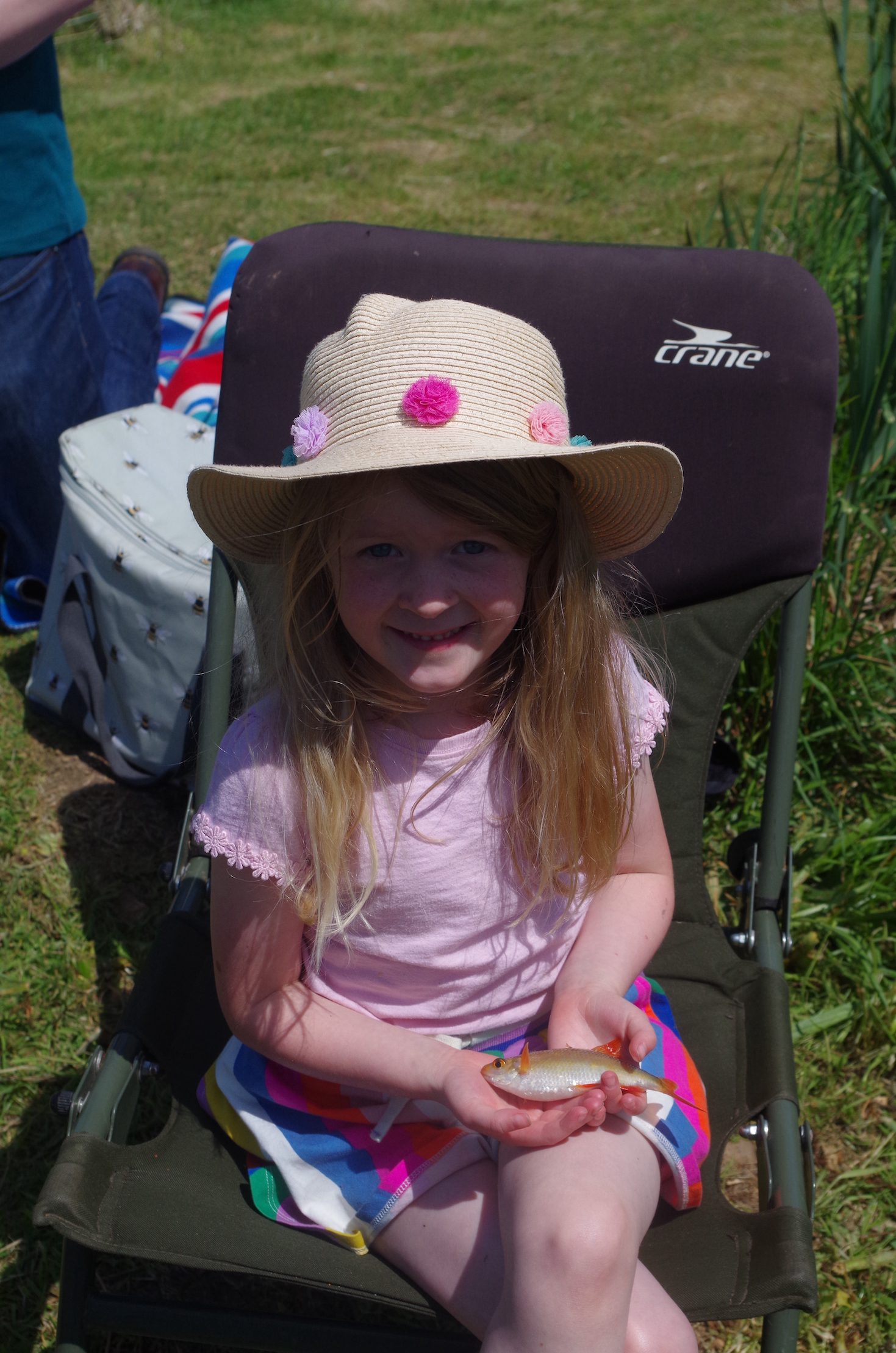
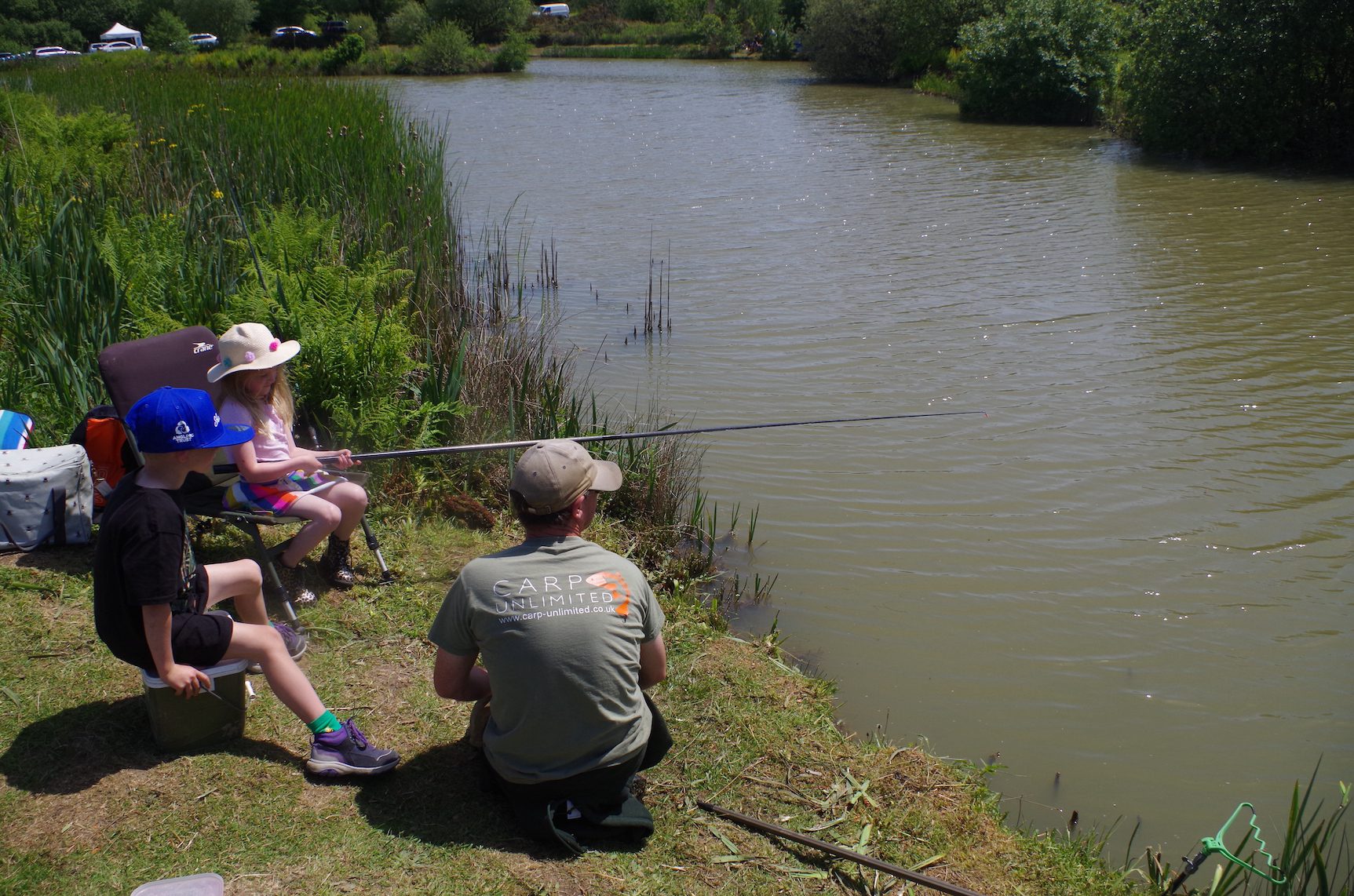
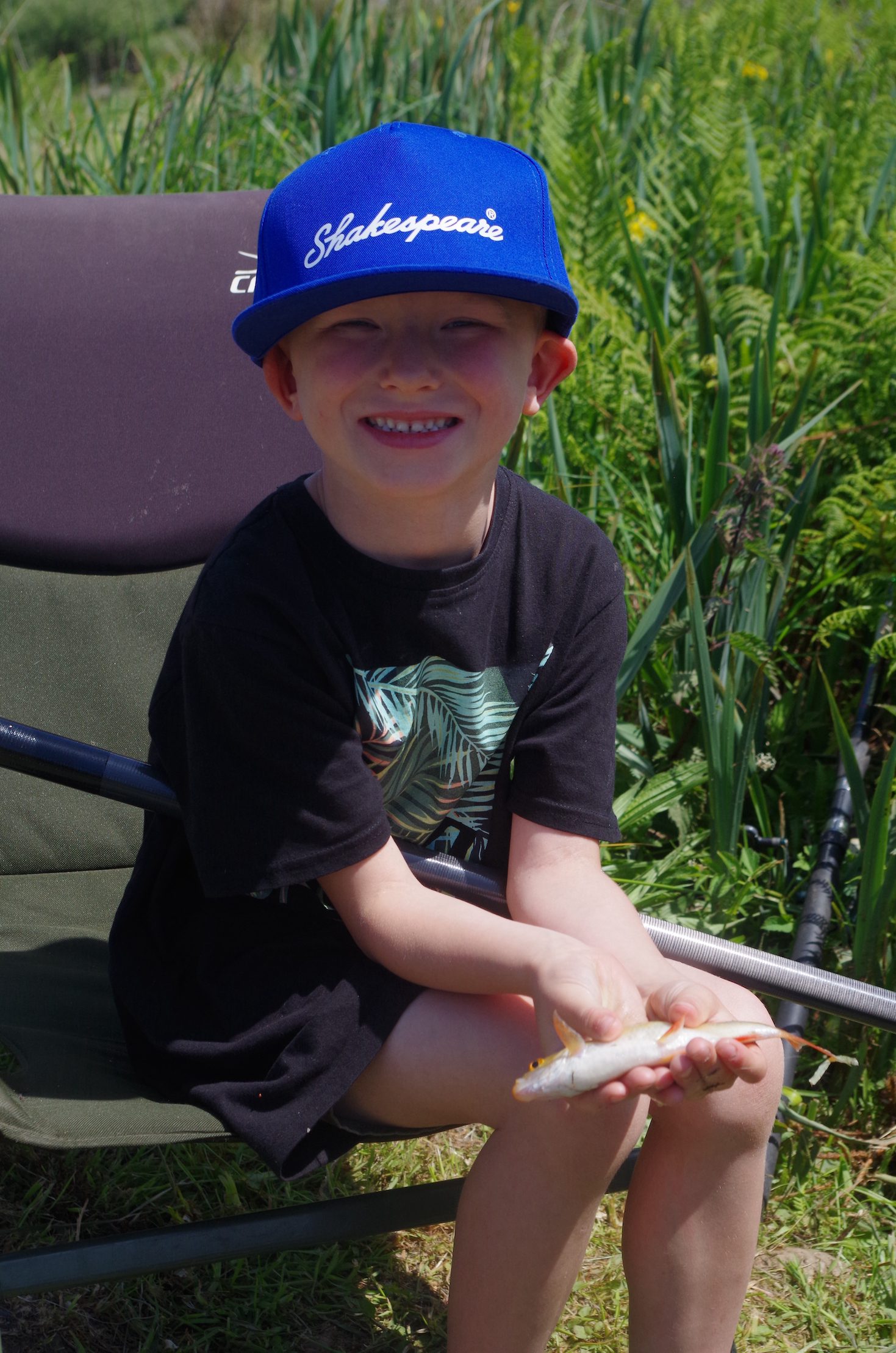
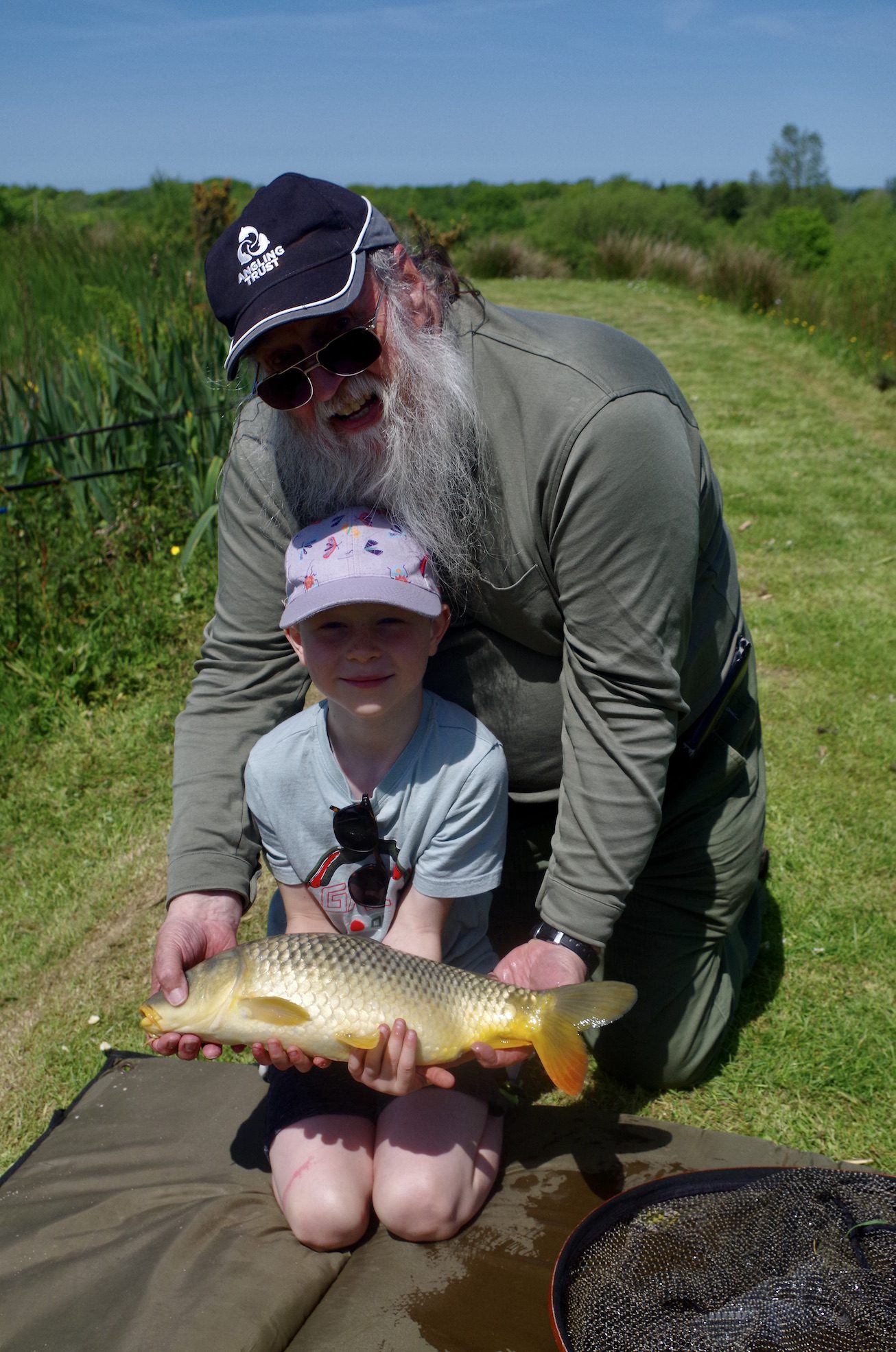
Edward Steward with a fine common carp
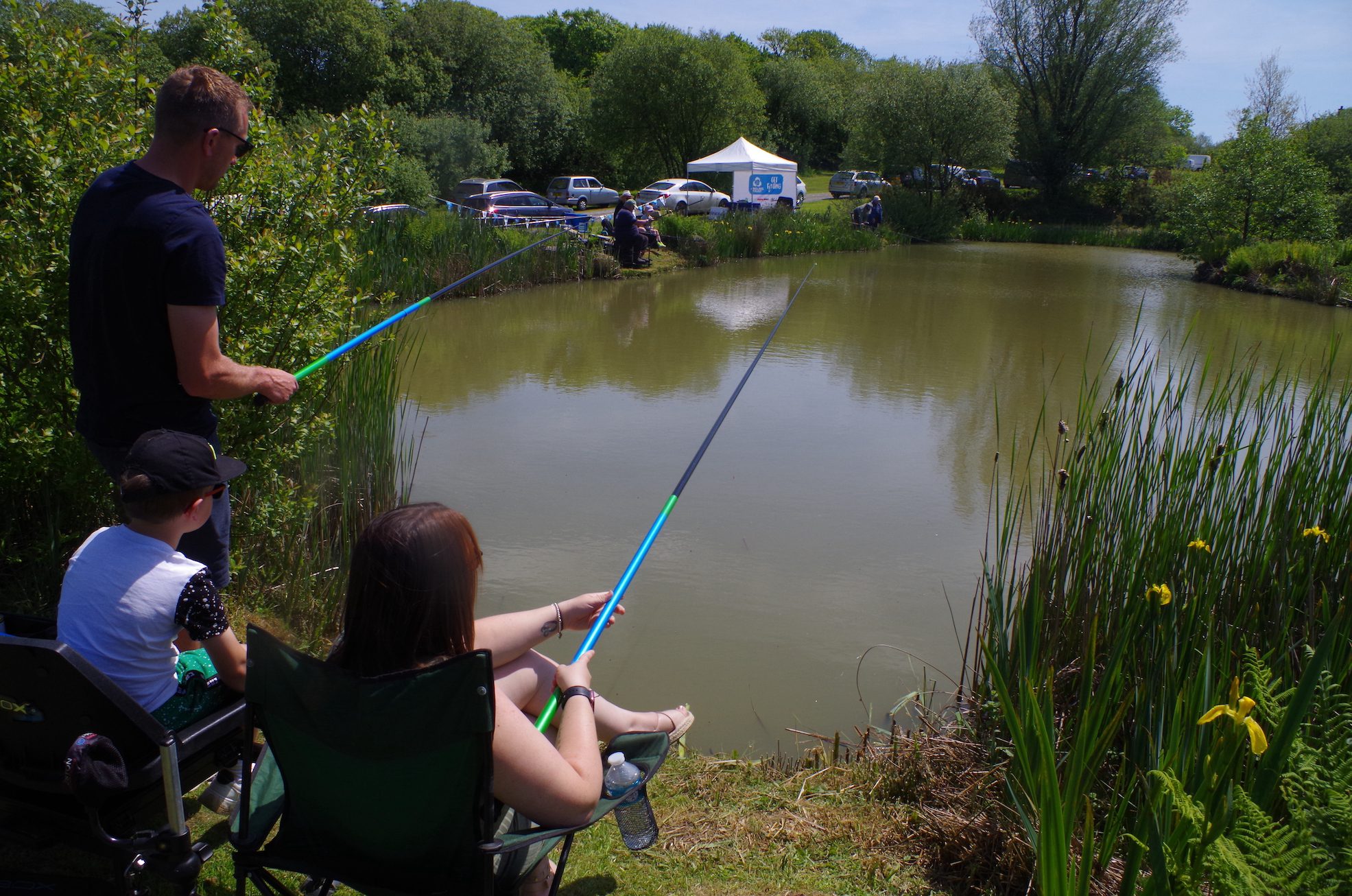
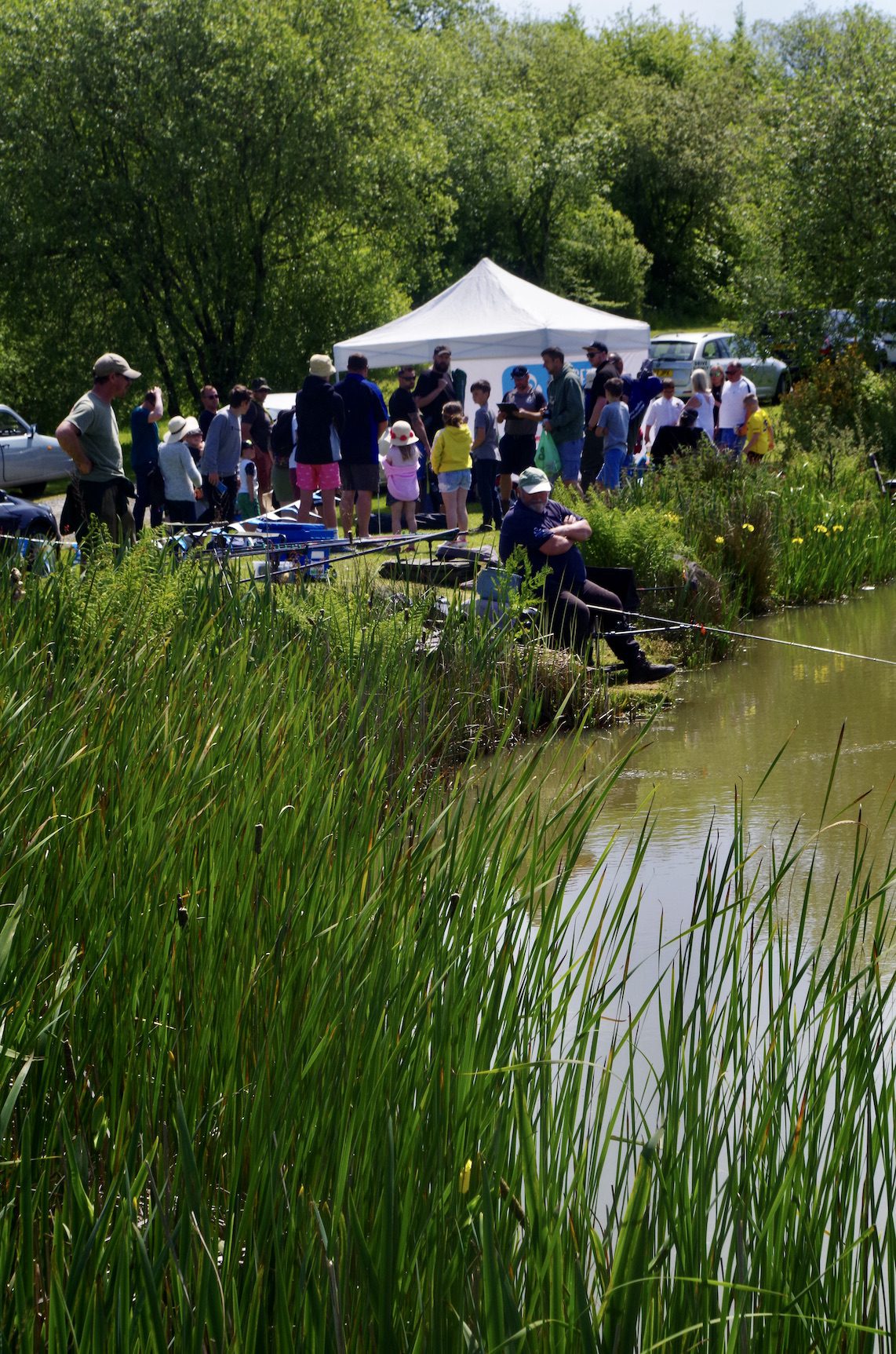
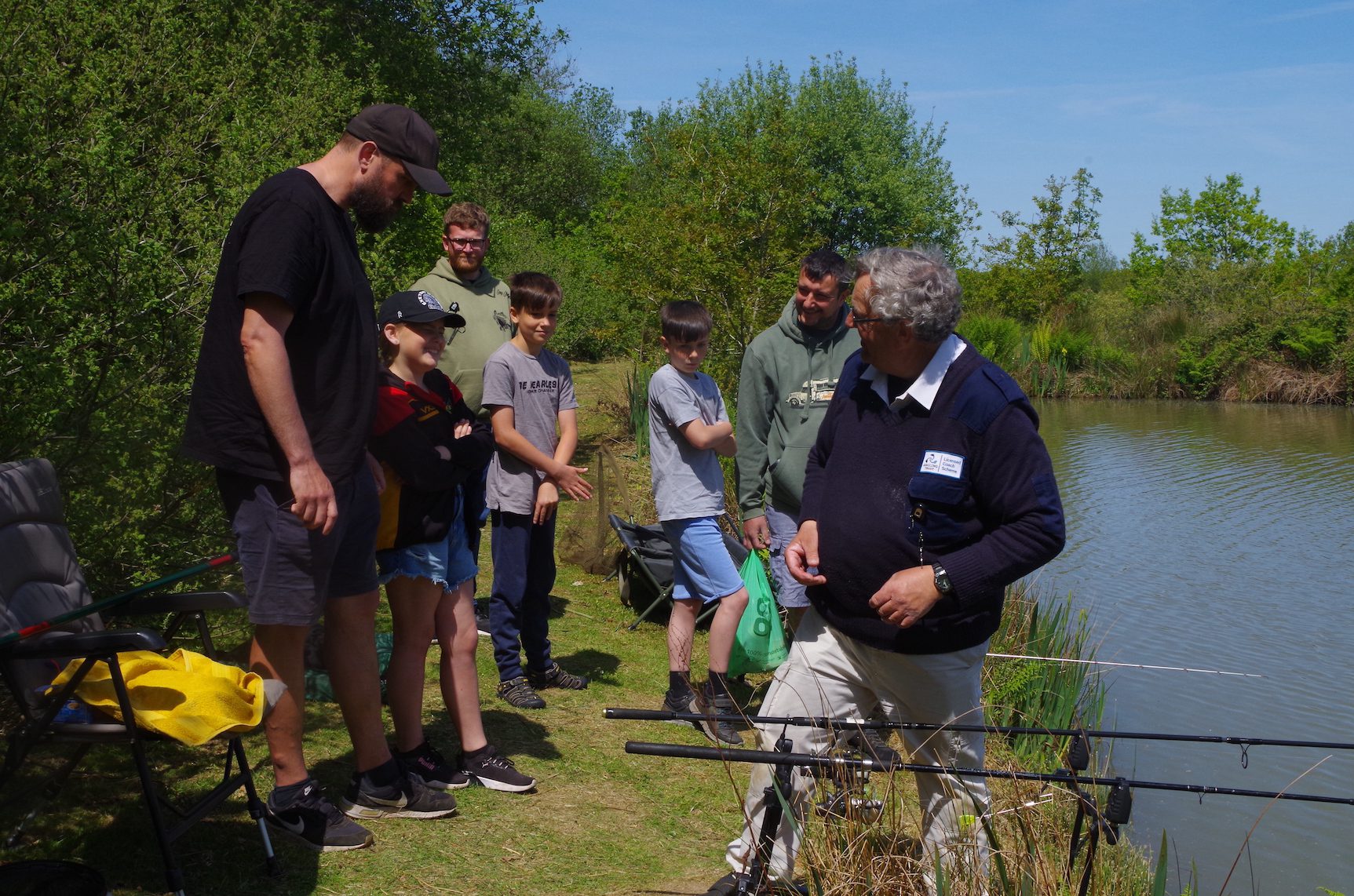
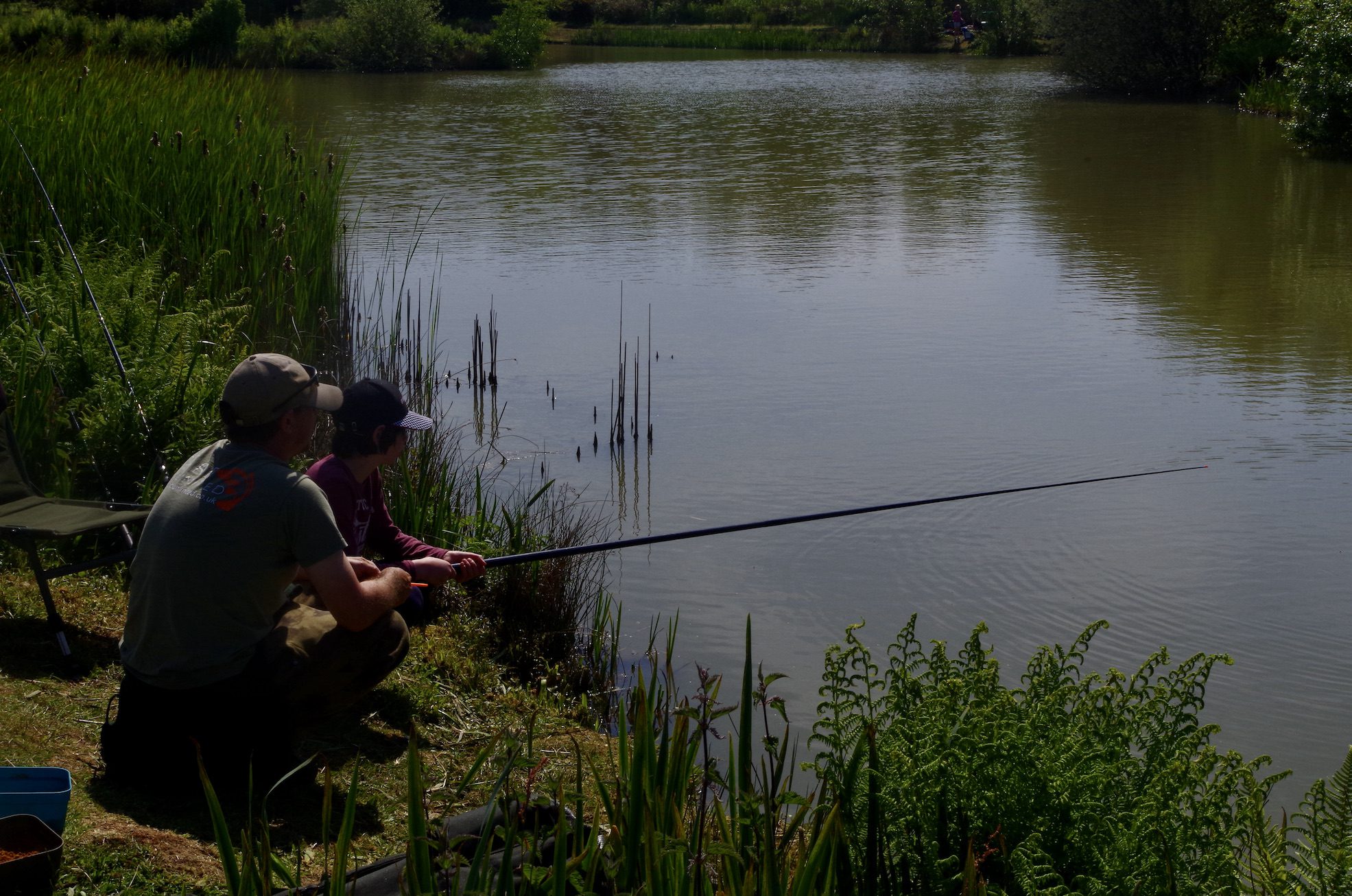
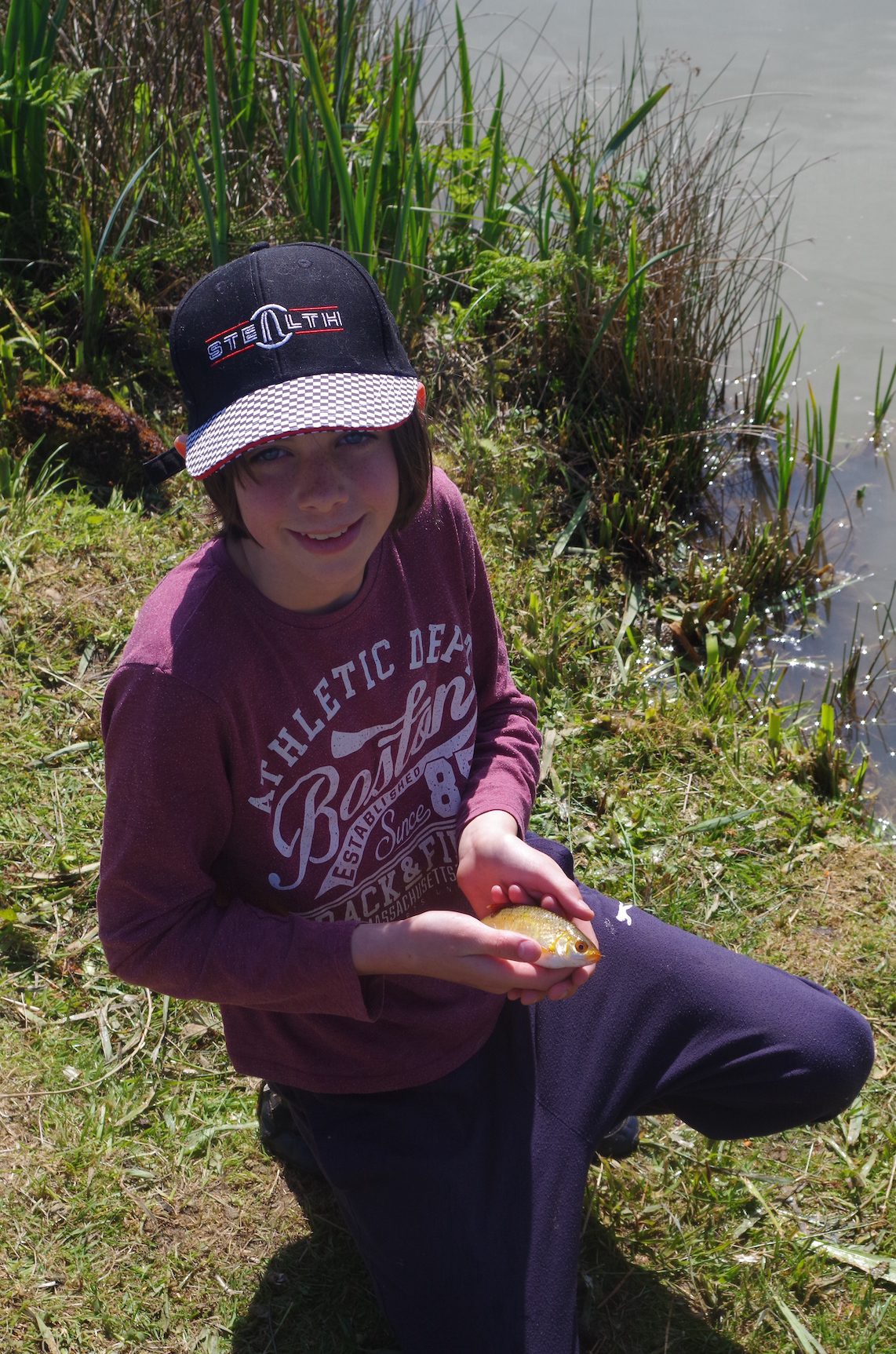
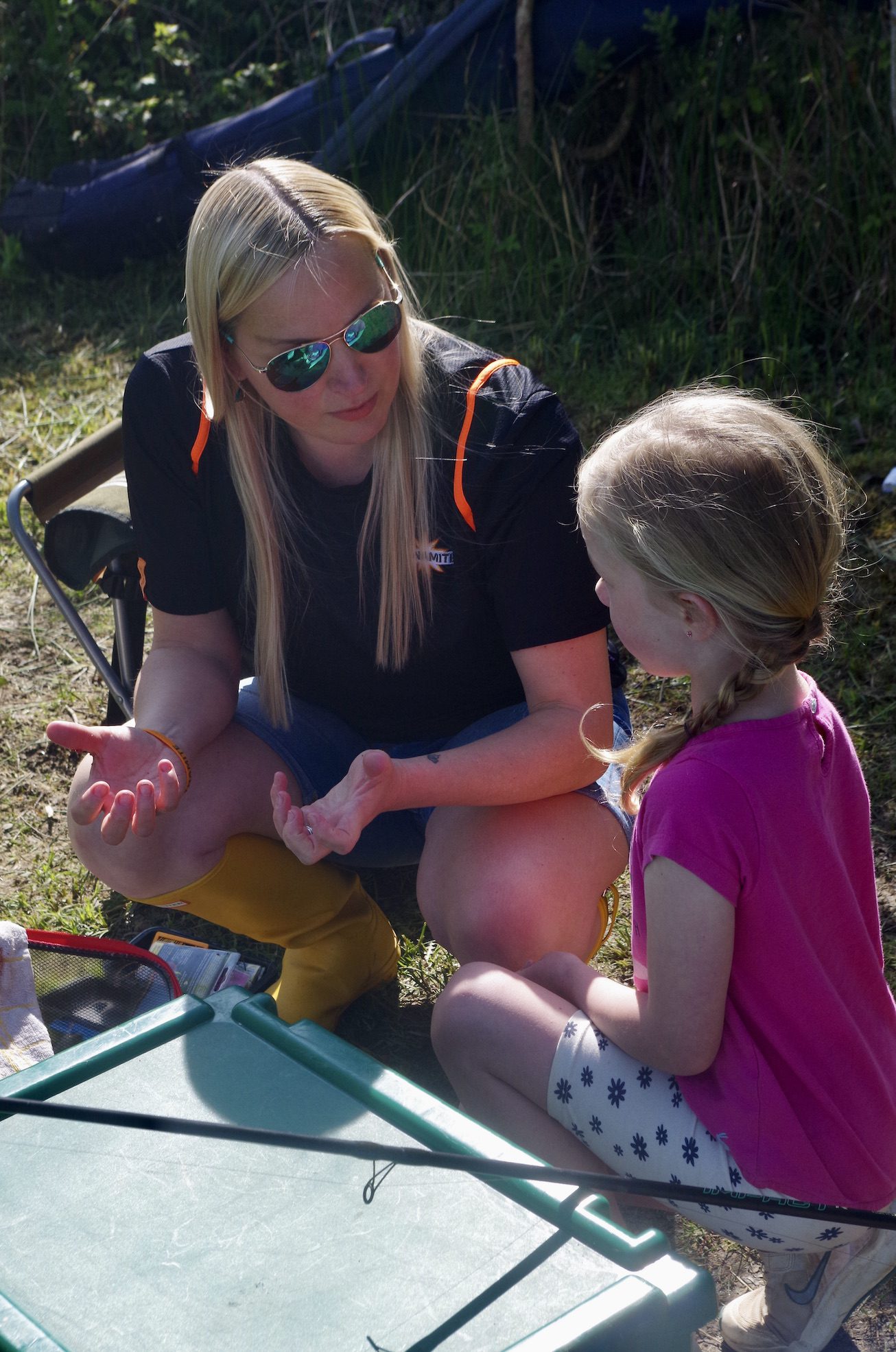
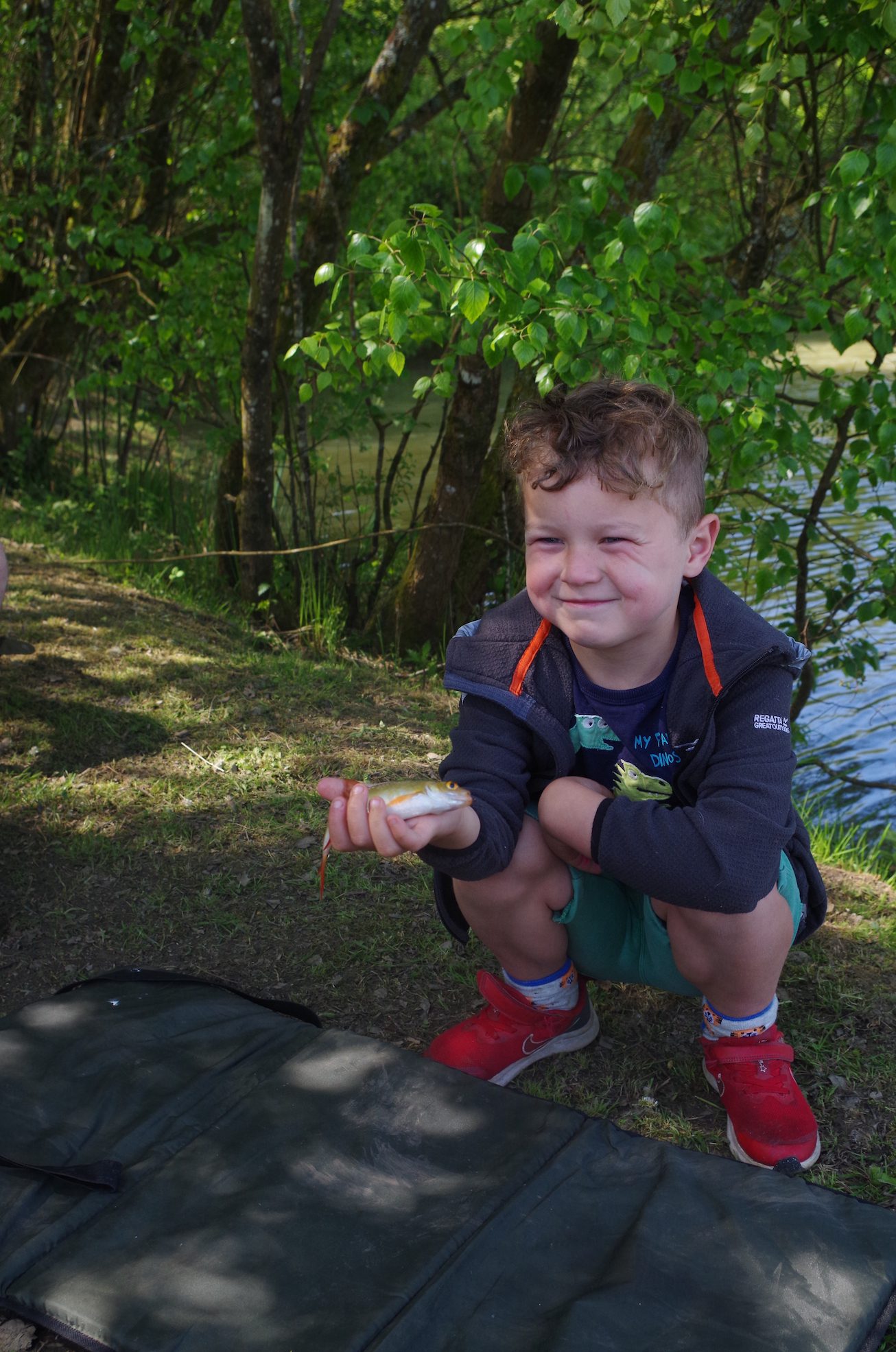
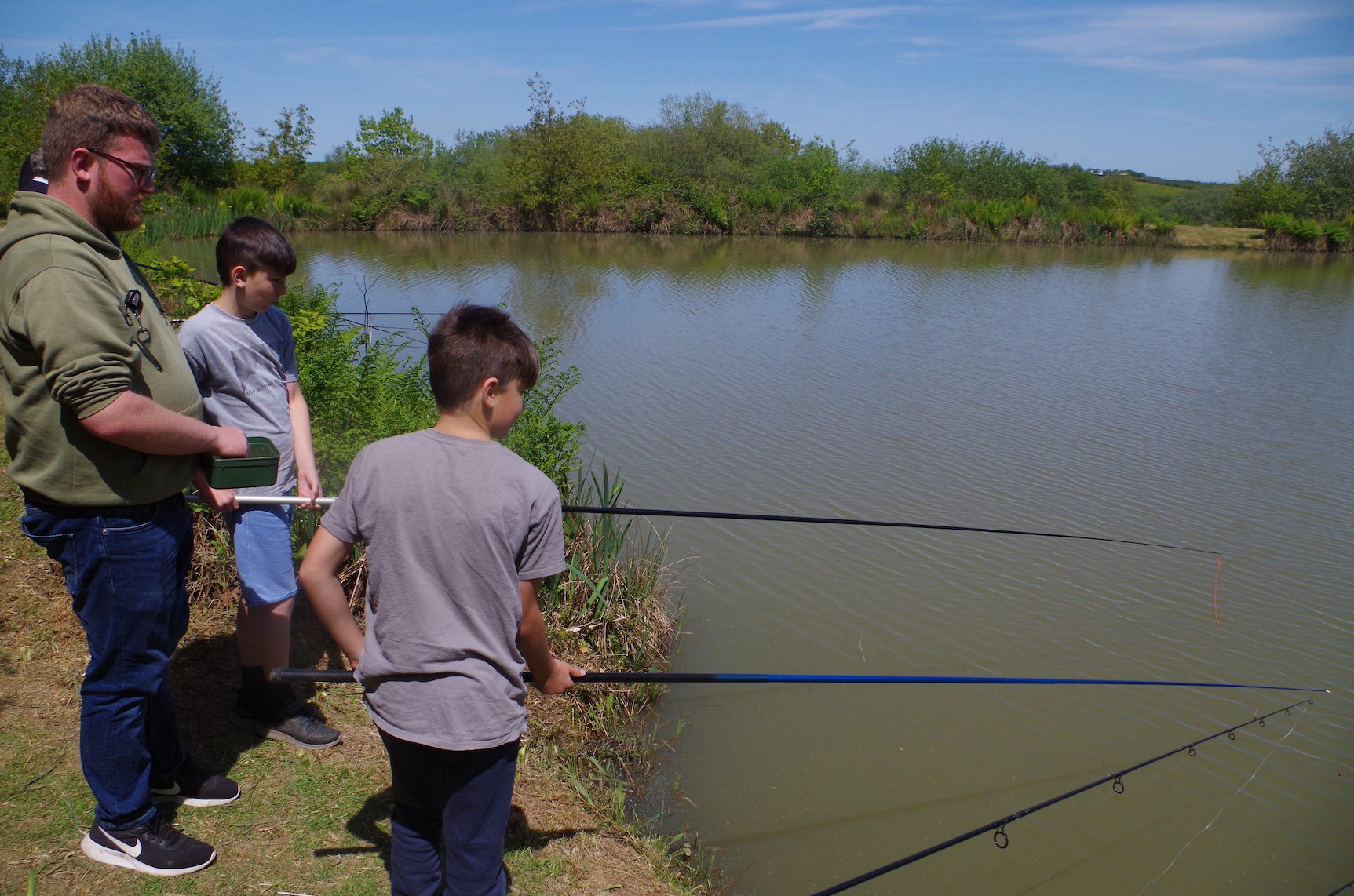
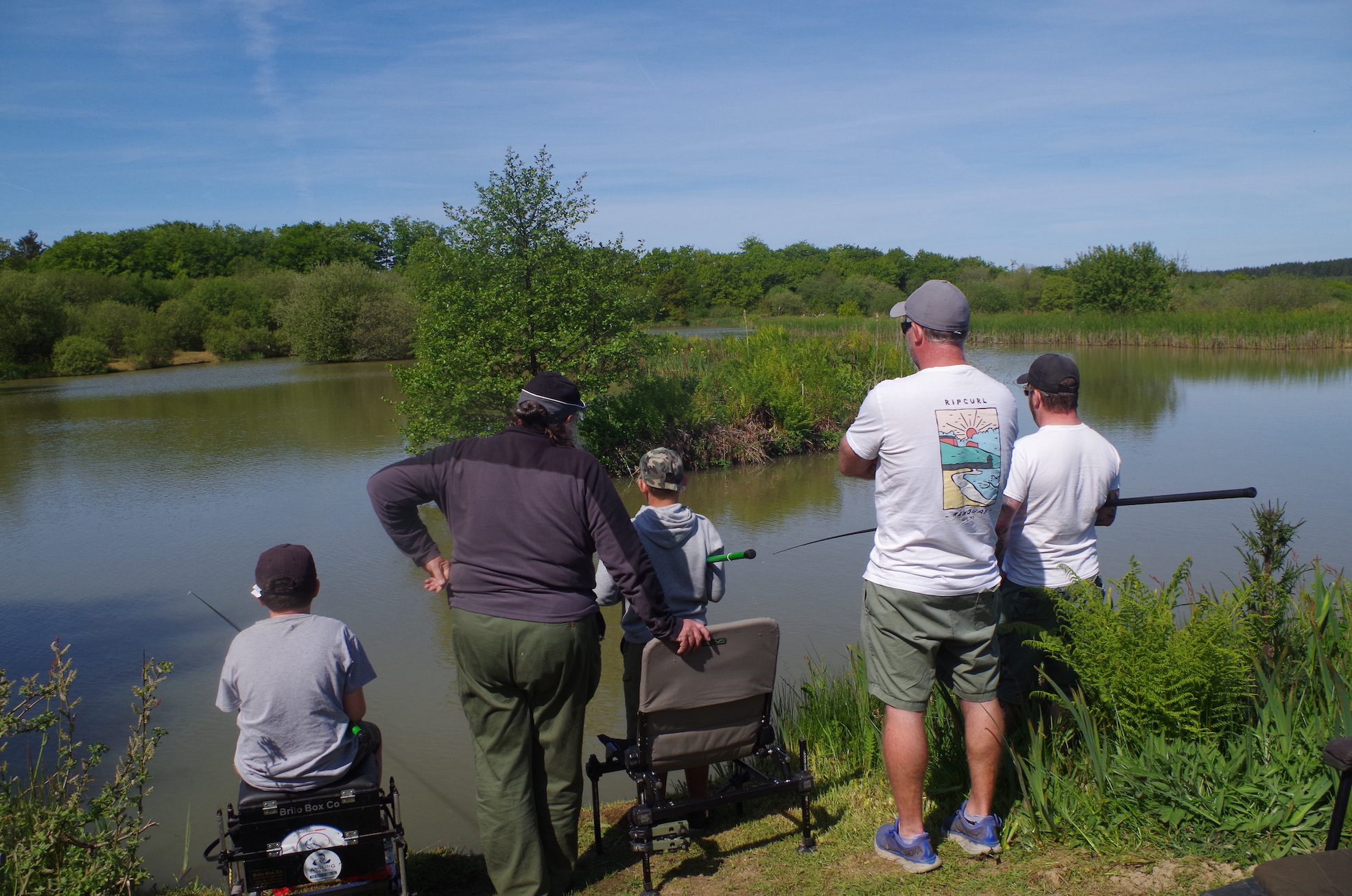
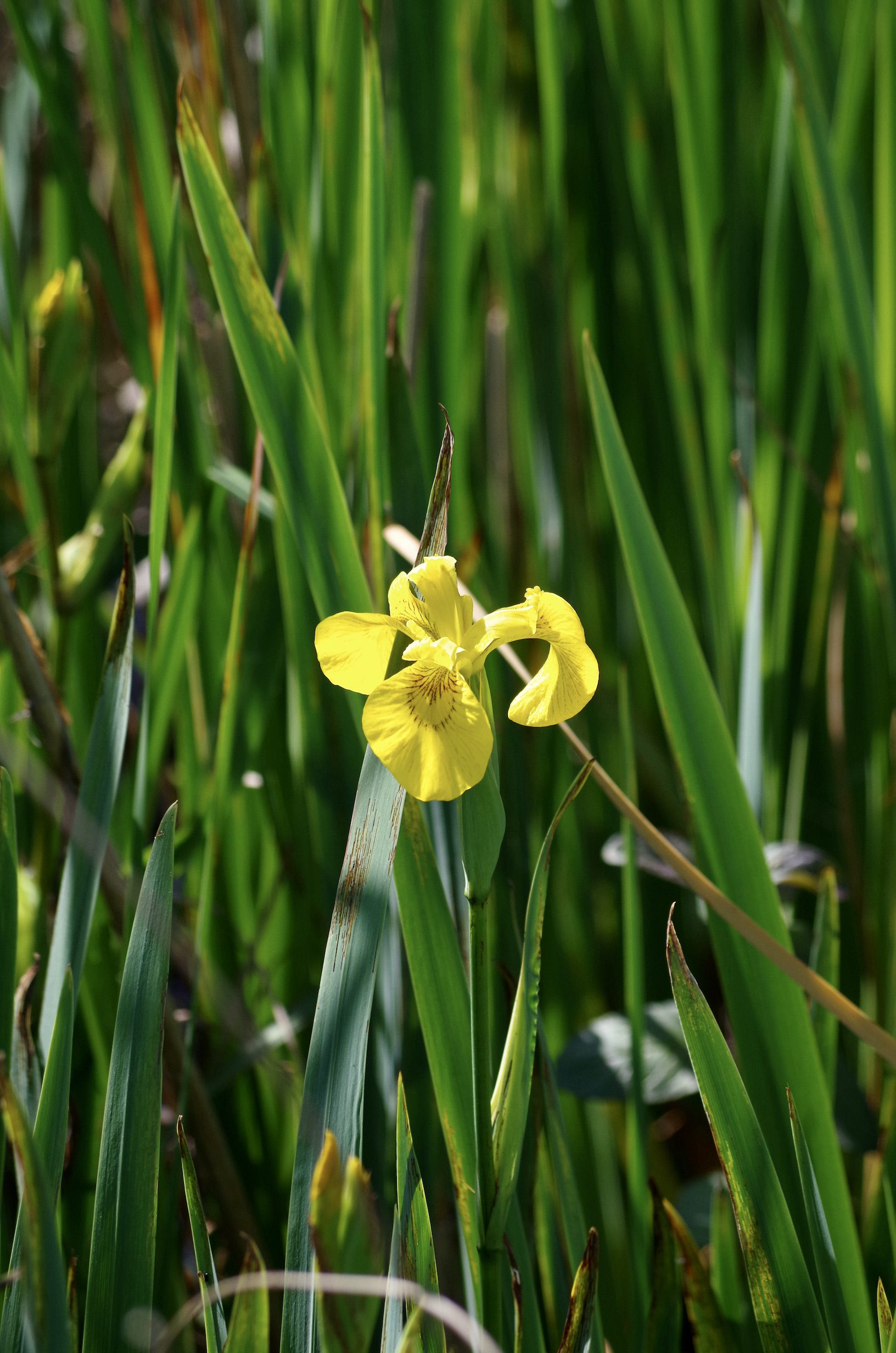

On the 2nd Jan 2022.
The South West’s first major event in 2022 attracted 111 anglers to the South Hams to fish the annual Angling Trust Wyvern Open Festival, with some competitors traveling from South Wales & the Isle of White, the weather conditions on the day saw a strong, west / south westerly wind with occasional heavy showers for the five hour event. Whiting, Dogfish, Pouting, flounder, dab, spotted ray & an excellent Small Eyed Ray were caught during the event, 64 competitors returned to the scales with fish to record. The results were announced within half an hour of the close of scales at the Festival Headquarters at the Stokeley Farm Shop.
The main sponsor was Julian Shambrook of Anyfish Anywhere Ltd, a major fishing tackle manufacturer, based in Torquay. All of the sponsors for the day were thanked for their continuing support each year, also a big thank you to Stokeley for their hospitality & providing an excellent venue.
The worthy winner, was the main sponsor Julian, Julian apart from being our sponsor for the event had fished it for over 30 years but had never won the competition before, he recorded a specimen Whiting of 1.775lb & a L.S.D. of 2.220lb (207.14%),he was presented with the top prize of £200 cash and the Brixham Bowl. The other tackle prizes were valued at over £800 and were awarded down to 12th place, these were announced by the Chairman of the Wyvern Region Alex Parker, and presented by Julian Shambrook.
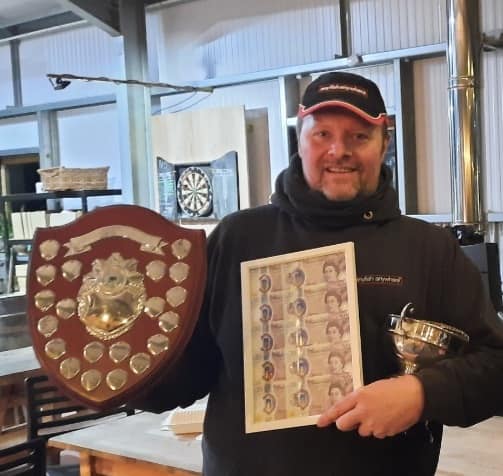
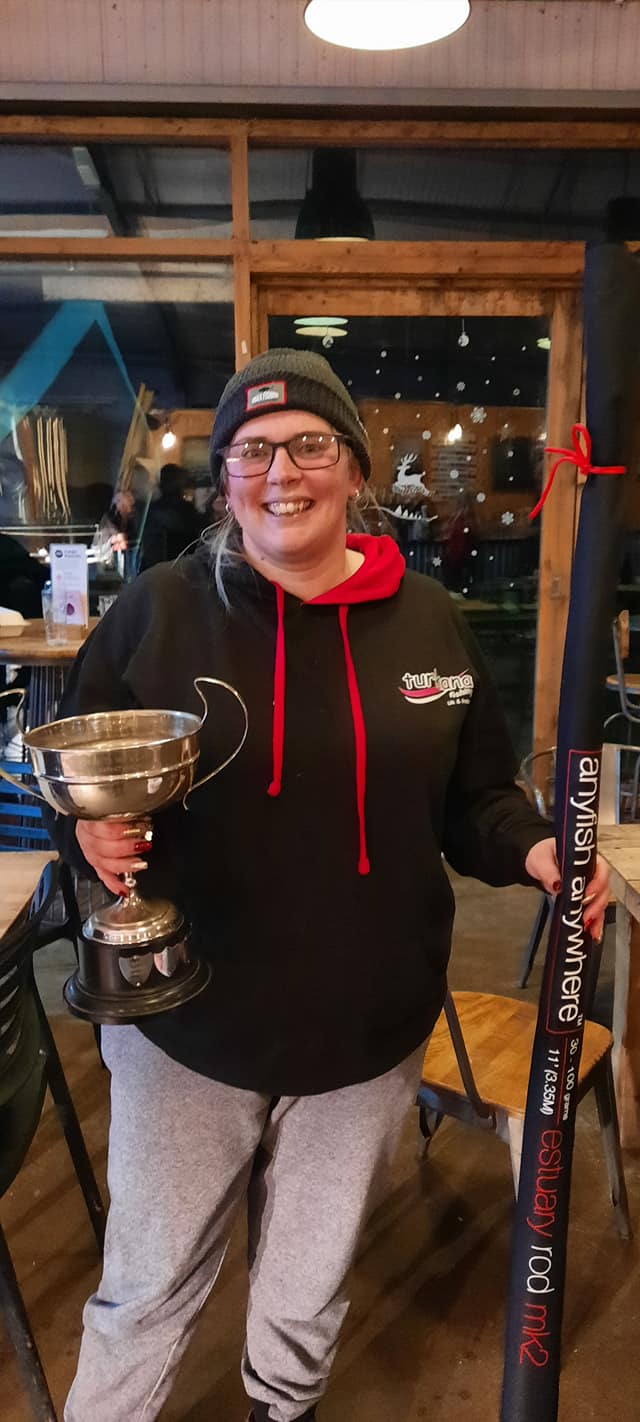
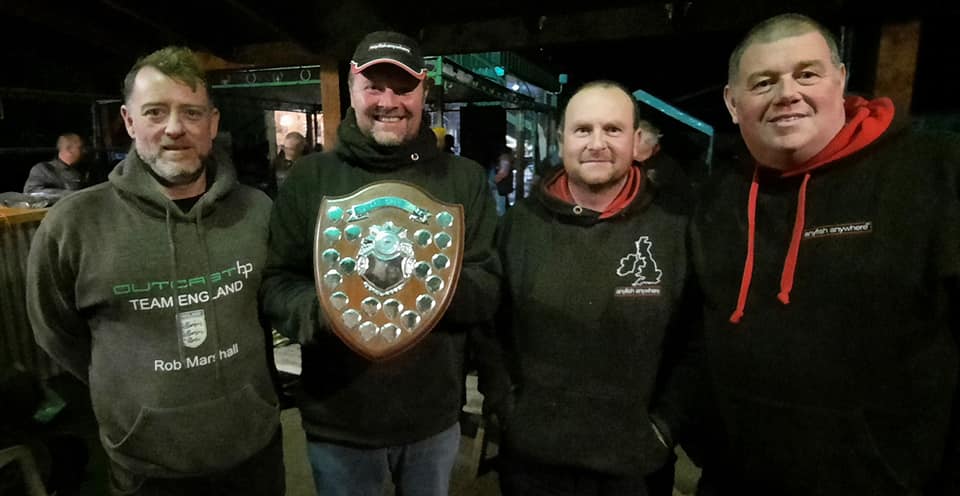
The first Twelve Places are as follows:-
First : £200 Brixham Bowl
Julian Shambrook Torquay Whiting 1.775 lb
L.S.D. 2.220 lb Total: 207.14%
Second Pick of the Prize table & Bideford Cup Cup
Claire Loder Newport S E Ray 11.245 lb
Whiting 0.965 lb“ Total: 204.91%
Third Pick of the Prize table & Appledore Cup
Tony Honeywell L.S.D. 1.605 lb
Whiting 1.96 lb Total: 194.87%
Fourth Pick of the Prize table & Sidmouth Cup
Mike Rose 3 counties Whiting 1.37 lb
L.S.D. 2.415lb Total: 187.94 %
Fifth Pick of the Prize table
Ben Bradstock Honiton S.A.C. Whiting 1.68 lb
L.S.D. 1.85 lb Total: 186.00%
Sixth Pick of the Prize table
Paul Rohrabaugh Sidmouth S.A.C. Whiting 1.705 lb
L.S.D. 1.575lb Total: 176.67%
Seventh Pick of the Prize table
Dave Lane Weymouth AC Whiting 1.485 lb
L.S.D. 1.925lb Total: 176.00%
Eighth Pick of the Prize table
Marcus Ward T&B A.S.A Whiting 1.375 lb
L.S.D. 2.045lb Total: 173.47%
Ninth Pick of the Prize table
Dave Reed S.W.A.F.S.A.C Whiting 1.39 lb
L.S.D. 1.965 lb Total: 171.27%
Tenth Pick of the Prize table
Mark Barnett Kingsbridge S.A.C. Whiting 1.33 lb
L.S.D. 1.965lb Total: 167.27%
Eleventh Pick of the Prize table
Darren Newland Isle of White Whiting 1.505 lb
L.S.D. 1.67 lb Total: 167.14%
Twelfth Pick of the Prize table
Nick Snow Whiting 1.535 lb
L.S.D. 1.60 lb Total: 166.34%
Best Team Team Shield: ( Team of four anglers, Best fish by each angler)
Team: Anyfish Anywhere
Rob Marshall
Julian Shambrook
Marcus Ward
Ben Bradstock
Total 394.01%.
Pool (best individual species)
1/ 50% Claire Loder 140.57% Newport
2/ 30% Tony Honeywell 130.67%
3/ 20% Julian Shambrook 118.34% Torquay

Thanks to extensive efforts by the Angling Trust angling can continue throughout lock-down as an outdoor recreational activity providing anglers only meet up with one other person. This is a common sense approach as individual angling is COVID safe and is recognized as having valuable benefits for participants mental well being. Individual fisheries will continue to implement all relevant guidelines to ensure anglers safety. Match Fishing is unfortunately the inevitable casualty of lockdown but hopefully this can resume next month enabling a little festive cheer.
For full details please visit the Angling Trust Website:- https://anglingtrust.net/covid-19/
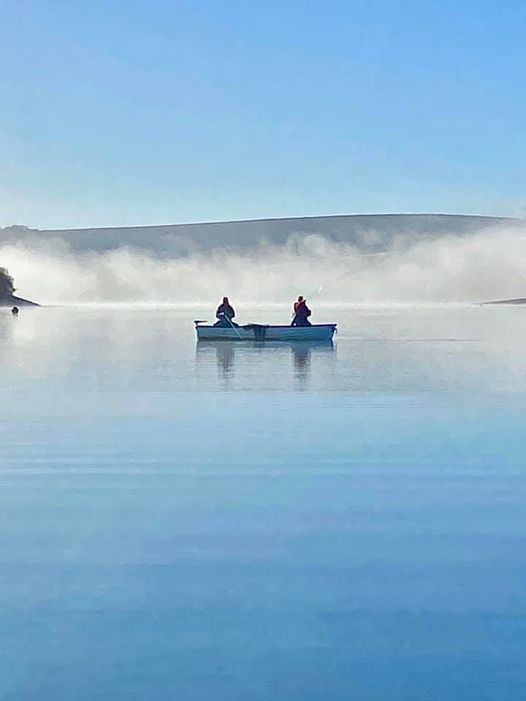
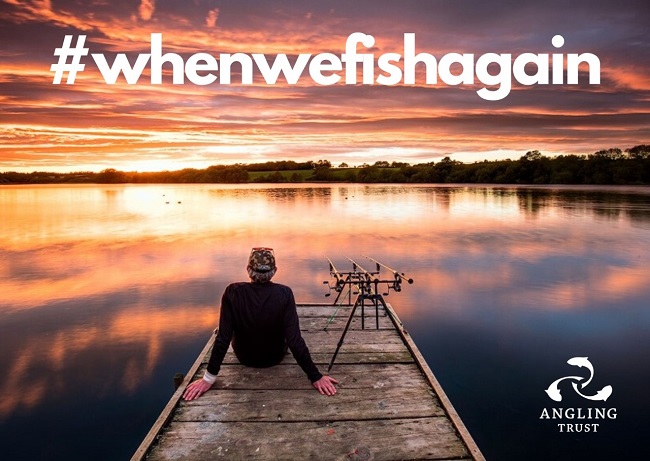
|
The Angling Trust has given a warm welcome to the announcement today (May 10th) by Prime Minster Boris Johnson that recreational fishing looks set to resume in England on Wednesday, May 13th. The Prime Minister announced the resumption of ‘unlimited outdoor sports’ from Wednesday providing they are conducted alone or with members of the same household and that social distancing rules are followed at all times. A government source confirmed that “outdoor exercise includes angling, golf, water sports and tennis providing social distanced from Wednesday.” The decision to include outdoor activities such as angling in the first wave of newly permitted activities followed weeks of intense advocacy and lobbying by the Angling Trust which unified the angling community like never before and saw over 8,000 individual emails sent to MPs and dozens of articles in the regional and national press in support of a safe return for angling. The Prime Minister is making a full statement to the House of Commons tomorrow and the Angling Trust will be seeking clarification about the reopening of tackle shops and confirmation of any restrictions on how angling should be practised during the next phase. Culture Secretary Oliver Dowden MP tweeted: “In the least risky outdoor environments we can imminently allow sports like golf, basketball, tennis and fishing.” Last month, a report from the Angling Trust entitled ‘When We Fish Again’ was submitted to Cabinet Office Minister Michael Gove and the Fisheries and Sports Ministers arguing for recreational fishing to be designated as one of the first permitted outdoor sports when ministers begin to relax the coronavirus lockdown restrictions. It was backed by national angling and fisheries groups including the Canal & River Trust, Salmon & Trout Conservation, the Institute of Fisheries Management and representatives of the angling trade which is estimated to be worth a total of £4bn to the UK economy. The report recommended a phased resumption in line with the government’s own criteria and identified a number of good reasons why angling should be an early candidate for consideration including: |
|
|
The Angling Trust’s proposal attracted the support of MPs of all parties and from prominent figures within the angling community. Reacting to the news, Angling Trust CEO Jamie Cook said: “I couldn’t be more pleased to see the hard work of the Angling Trust and our supporters delivering such an outstanding result for everyone who loves to go fishing. We have demonstrated to the satisfaction of government that angling can be permitted as a safe, healthy, beneficial outdoor activity and why it can take its rightful position at the front of the queue as restrictions are relaxed. “Our effective and professional campaign was in support of a carefully thought through set of phased guidelines under which angling could be safely permitted without increasing the risk of COVID-19 transmissions. Without these guidelines we would have got nowhere and it is now incumbent upon every angler to respect them and demonstrate that we are still playing our part in the nationwide battle against the coronavirus.” Angling Trust Policy Chief Martin Salter said: “There is still work to do to get the tackle shops open and to provide good advice to fisheries, angling guides and coaches but it looks like we are there and it’s no longer a question of When We Fish Again but ‘where are we going fishing on Wednesday?’ We have run a fabulous campaign but we couldn’t have done it without the support of thousands of anglers who wrote to their MPs and of some of the top names in our sport who gave us their time and expertise.” Korda and Guru Marketing boss Ali Hamidi added: “This is incredible news for Angling. Fishing can commence from Wednesday. The excellent work of the Angling Trust has made a distant dream a reality. I’m going to name my next 100 carp after Martin Salter and Jamie Cook.” The Angling Trust has today published further Phase One Guidelines for clubs and fisheries to help them prepare for the resumption of angling on their waters on May 13th. Jamie Cook and Martin Salter will be answering anglers questions on a Facebook Live session tomorrow (Monday, May 11th) at 6pm. Details to follow on the Angling Trust Facebook page. |
On a stormy winter day small still-waters can offer the chance of excellent sport with hard fighting winter rainbows. Jeff Pearce and I met up with Dominic Garnett from the Angling Trust and his father John at Blakewell fishery where we hoped to connect with one of the recently stocked specimen brown trout. Our arrival coinciding with strong winds and heavy showers a full English breakfast in the cafe beside a glowing woodburner was a welcome option and enabled us to chat at length about blogging, photography and the intricacies of fishing. We discussed the most important aspects of a fly. Dominic stressed the importance of a quality hook and its trout attracting features. Whilst I agreed with these vital ingredients I stressed that the most important aspect is that the angler has confidence in the fly or lure. This generally leads to the angler fishing well keeping the fly in the water instead of constantly searching the fly box for inspiration. Dominic had also brought along his angling mascot the General who often features in Dominic’s musings in the acclaimed Fallon’s Angler magazine.
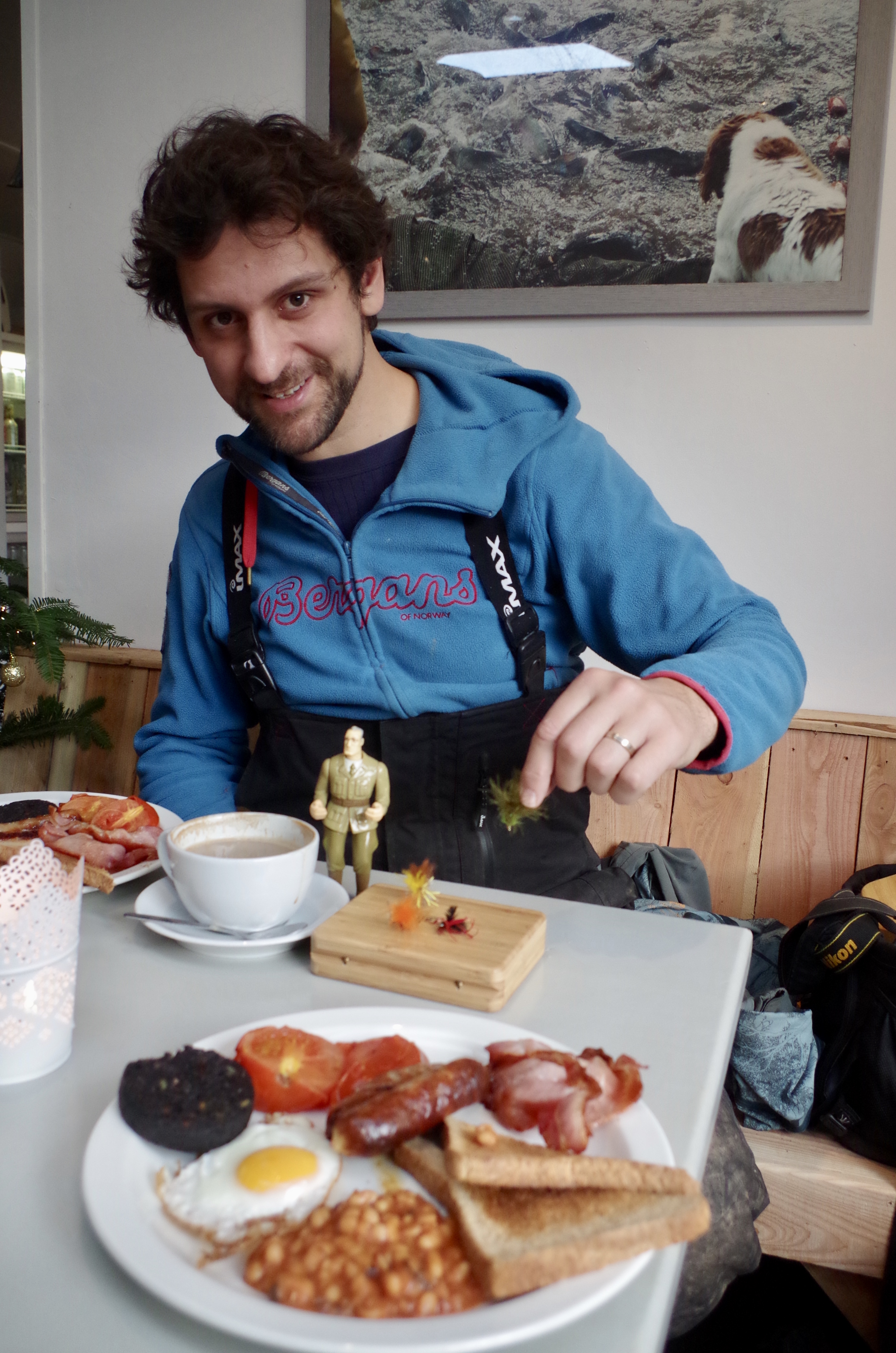
Eventually the call of the great outdoors became too strong and we ventured out to the lake. To our relief the water was still clear and had not been adversely affected by the torrential rain that turned the nearby river into a raging torrent.
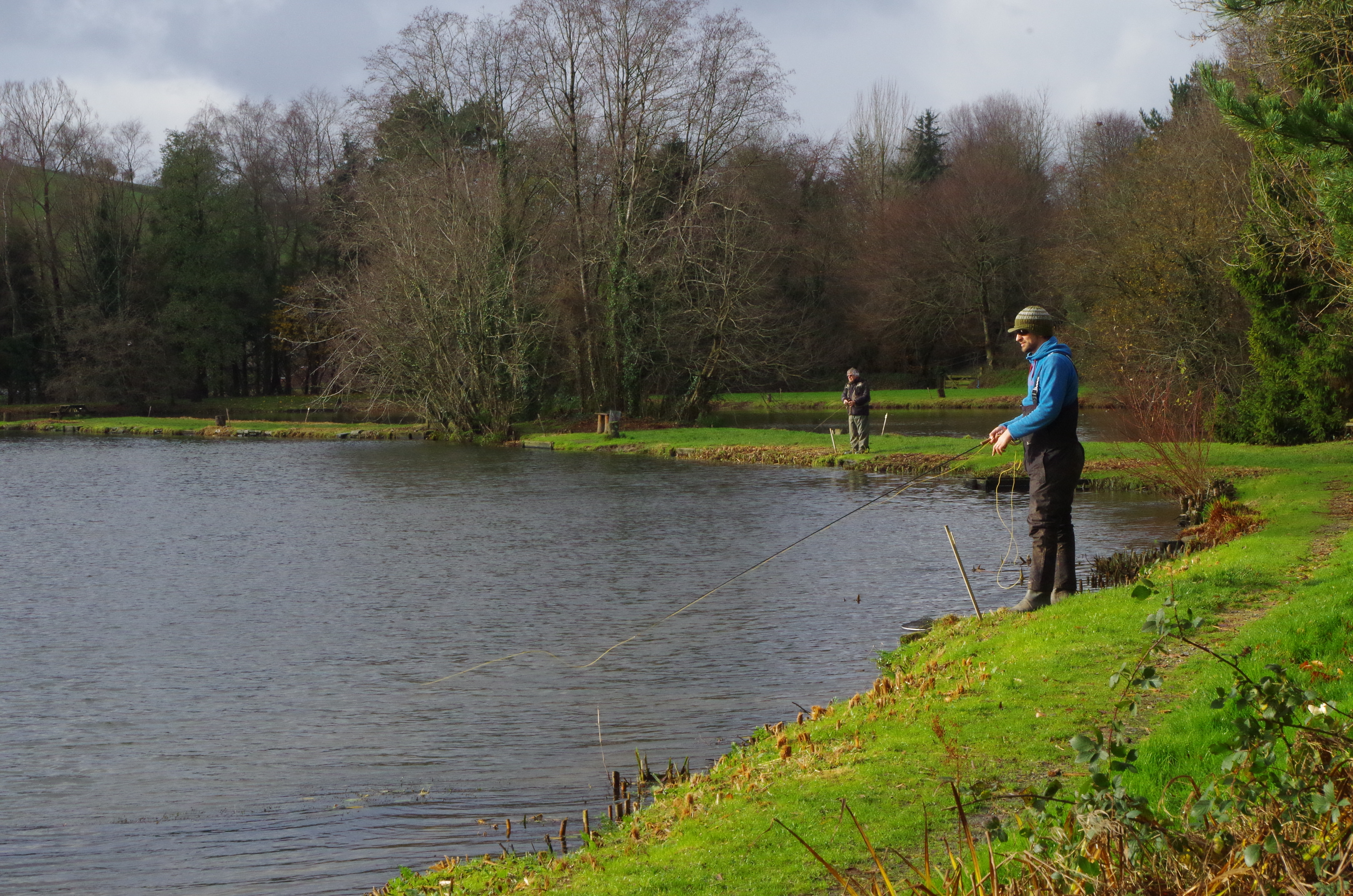
The instant action we had all anticipated did not immediately occur and it was half an hour before Jeff hooked the first trout of the day. A pleasing rainbow a fish that thrives in the cold waters of winter.
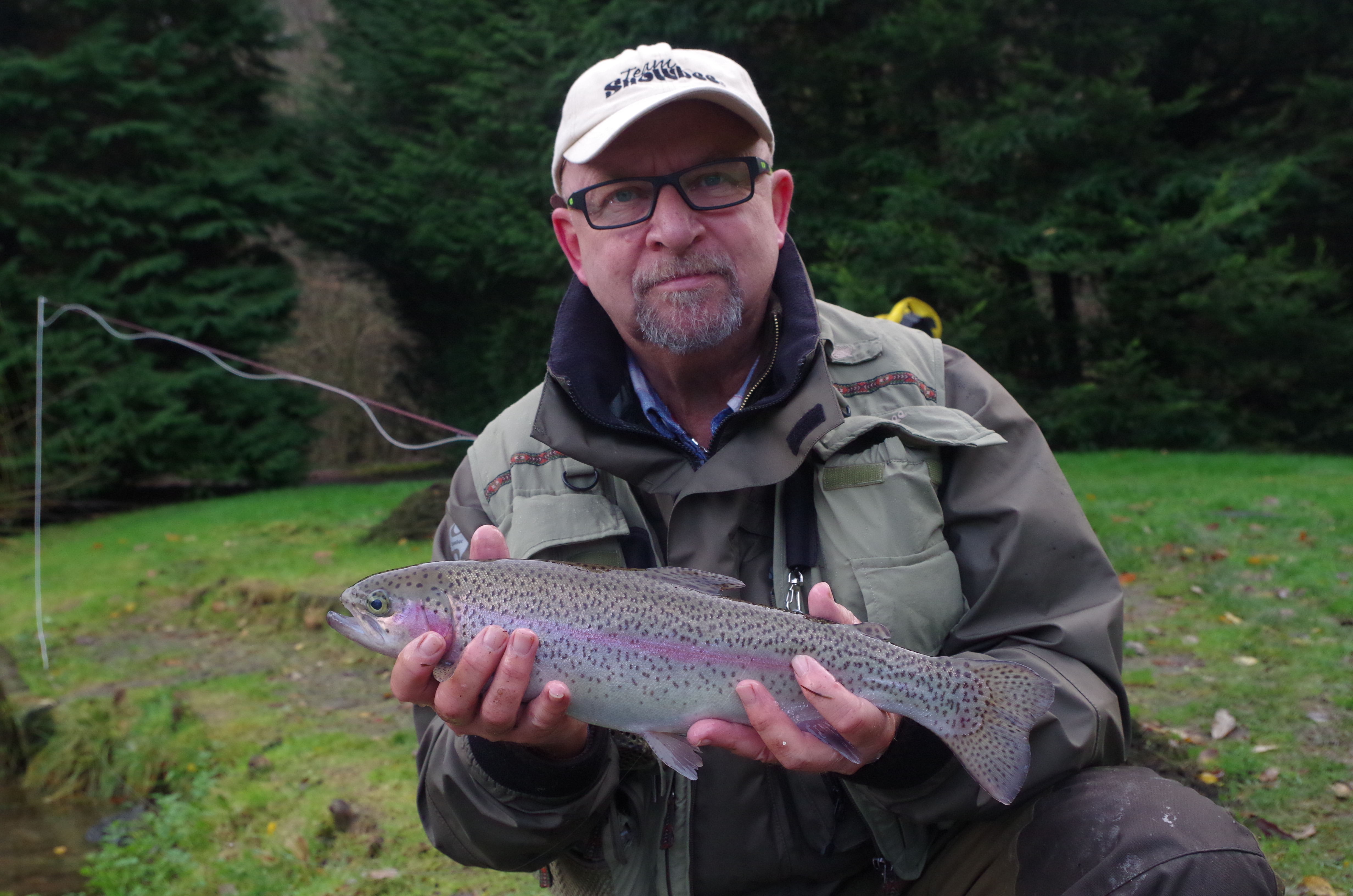
Dominic and I had both expected the trout to respond to larger lures with perhaps a touch of colour. The trout had not read the script however and my first two fish and Jeffs were all tempted on small black flies or buzzers.
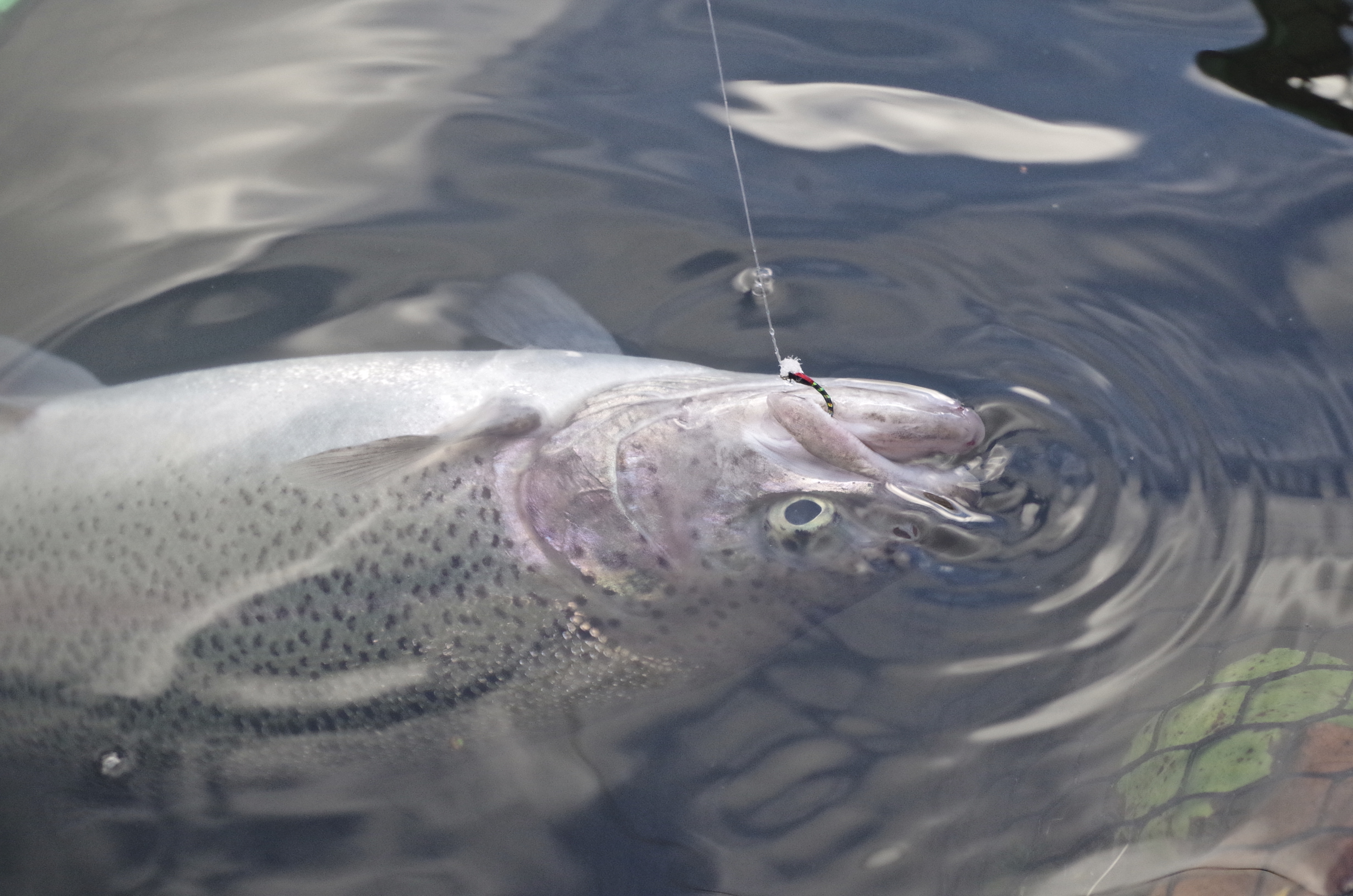
Many consider winter days to be drab and colourless but this is often far from true as winter sunshine and rainbows illuminated our day bringing pleasing winter vistas.
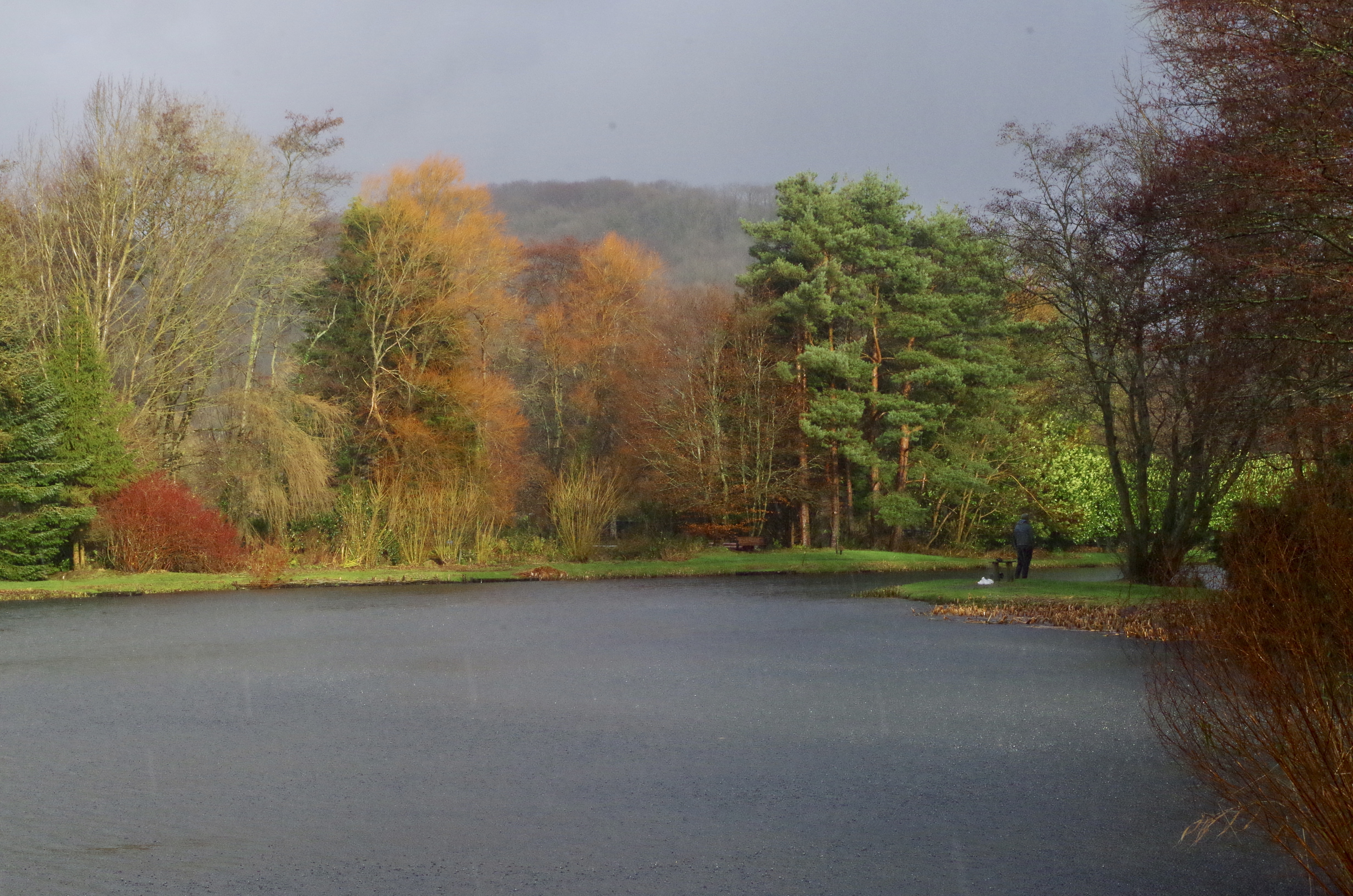
This was not one of those days when the trout attacked our offerings with gusto this was one of those days when persistance was essential. As the hours passed all too quickly the tally of trout slowly grew with the four of us eventually banking a dozen trout to just over 2lb.
